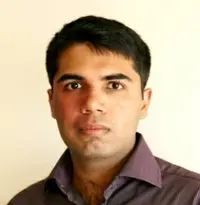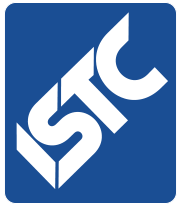*Members-only content, visitors must be logged-in to visit these pages.
TCUK 2022
Presentations are in video format, recorded live during the online conference. Each is accompanied by a presenter’s bio.
Foundations in Technical Communication – Chris Hester
About the presenter
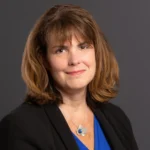
Chris Hester is a senior manager at UL Solutions where she leads a global team of web content designers and publishers and oversees web content strategy and governance. She is an accredited instructor for CPTC Training, a Fellow of the Society for Technical Communication, and has presented at the STC Summit, the TCUK conference and other events.
Confessions: How I Got Addicted to Information Architecture and You Might Too – Lief Erickson
About the presenter

Lief is the co-founder and principal consultant of Intuitive Stack, a content strategy consultancy. He began his career in the content industry as a technical writer and has held positions as an information architect and content strategist. His focus is to reduce or remove friction wherever it is in your tool stack or processes.
He holds a bachelor’s degree with a dual-focus in Technical Writing and German. Lief has an MA in Content Strategy from the University of Applied Sciences, FH Joanneum (Graz, Austria), where he teaches information architecture. He is a contributor to the DITA-OT open source project and presents at conferences on topics ranging from ContentOps to taxonomies and search and more.
Tech writers, chatbots need you! – Maaike Groenewege
About the presenter

Maaike Groenewege is an independent conversation designer at Convocat in Hilversum, the Netherlands.
As a conversation designer, Maaike combines her background in theoretical linguistics, technical communication, and her passion for the human mind. She has developed chatbots and voice assistants for Dutch Chamber of Commerce, ABN Amro bank, Independer and Essent.
Maaike is very active in the conversational community: she founded Convoclub, and online community for designers, linguists and language lovers, and she regularly speaks at conferences and meetups.
Change and Content Practice – Larry Swanson
About the presenter

Larry Swanson is an independent content architect and digital strategist who focuses on enterprise-scale content modelling. He hosts the Content Strategy Insights podcast and organises events like Decoupled Days, the Knowledge Graph Conference, and World Information Architecture Day.
TCUK 2021
Presentations are in video format, recorded live during the online conference. Each is accompanied by a brief overview and presenter’s bio.
Fourth Industrial Revolution and its impact on Techcomms – Ray Gallon
About the presentation
The advent of technologies such as Artificial Intelligence and the Internet of Things ensures that the ways we live and work will change radically in the near future. Indeed, that change has already started. The place of information in this brave new automated world is key, but not obvious. It includes not only major epistemological change, but also ethical questions for which we need to be prepared.
About the presenter
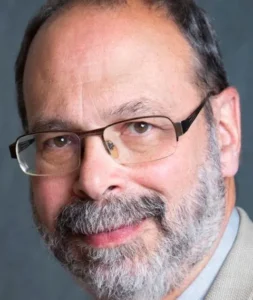
Ray Gallon is president and cofounder of the Transformation Society, which develops strategies for humanist digital transformation and organizational learning, and researches the theory and practice of smart pedagogies. He has over 50 years’ experience as a communicator, including major companies such as IBM, Alcatel, and General Electric Health Care. Ray is a fellow of the Society for Technical Communication (STC), has been a speaker at congresses worldwide, and has authored multiple book chapters and articles. He is the editor of The Language of Technical Communication (XML Press).
Designing content in a time of urgent change – Markland Starkie
About the presentation
Since its launch in 2011, the UK government website, GOV.UK, has put users at the heart of its content. To do this, we ensure that content design forms a central part of the user-centred disciplines that are key to the success of digital products and services. This presentation will cover how we applied these user-centred principles to the public guidance produced as part of the early stages of the coronavirus pandemic and what we learned in doing so.
About the presenter
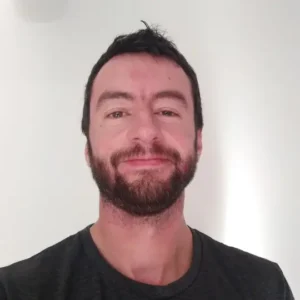
Markland joined the UK Government Digital Service in 2018 as head of content, leading content designers and technical writers in supporting the most used content on GOV.UK. As part of the GOV.UK senior management team, Markland has launched guidance, products and services that help the UK public understand changes resulting from Brexit as well as the government response to the COVID-19 pandemic. Prior to this, Markland spent 10 years in digital for the private and higher education sectors.
Soft skills in the new workplace – CJ Walker
About the presentation
Soft skills aren’t just a nice-to-have anymore – they’re an absolutely essential part of your job skills portfolio in the new workplace. In this short presentation, CJ will discuss soft skills from the point of view of a techcomm recruiter, and tell you what you need to know to put them to work for you.
About the presenter

CJ is a recruiter, trainer, and consultant specialised in digital communications. She has worked in the techcomm, linguistics, and content modelling spaces before founding Firehead Digital Communications in 2007, where she drinks a lot of coffee and helps clients find the right talent. She also helps techcomm professionals train in new skills to progress their careers.
The evolution of technical communication in video games – Maria Loureiro
About the presentation
Technical writing is widely present in video games. However, this usually happens in the source language. To globalize products, video games companies use translation. But are we saying goodbye to this old strategy?
About the presenter
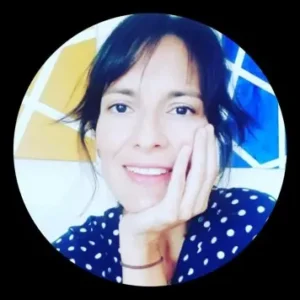
Maria Loureiro is an entrepreneur and independent manager and trainer in the video games localization industry.
She arrived in this industry more than 20 years ago and its excitement and avant-garde captivated her. She has been in charge and collaborated in the localization of some of the most important First Party and Third Party video games. In 2014 she founded KiteTeam, a disruptive solution well-known for its project management, quality assurance processes, and customer experience. Since 2016 she shares her expertise with students and professionals. She firmly believes that these interactions provide her with continuous learning.
TCUK 2020
Presentations are in video format, recorded live during the online conference. Each is accompanied by a brief overview and presenter’s bio.
How to Rapidly Create Documentation Within an Agile Process – Matt Reiner
About the presentation
Many teams and organizations are talking about “being more agile” but it’s hard to know what that actually means. With the many agile framework options available, and the agile manifesto itself saying that agile doesn’t value “lengthy documentation”, it’s hard to understand where documentation fits.
This talk explores how agile teams can rapidly develop and deliver documentation alongside their product.
About the Presenter

Matt was once a customer of – and now a customer advocate with – K15t. Throughout his time as a technical communicator, Matt has branched out to marketing and UX writing projects with multiple teams.
Matt believes users have the best experience when information presented by Sales, Marketing, the product, documentation, and Support uses a unified voice.
Tech Writers Without Borders – Nancy Larbi
About the presentation
Who is Tech Writers Beyond Borders, its passion, and mission? What projects are underway to support the C19 pandemic? What projects have we supported so far? What are volunteers doing? What’s next?
Are you one of those people for whom it’s never been easy to switch perspectives, even though you love doing the research and background? Do you have a hard time looking at things from the cultural point of view? Why volunteering on multicultural projects can teach you the skills you need.
This presentation inspires, and provides practical information.
About the presenter
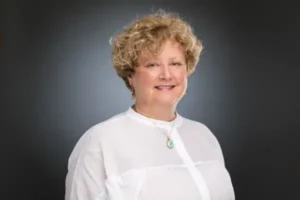
Nancy started out as a French literature scholar, translator, and teacher. She assimilated to French culture through immersion experiences, including a summer camp in Le Drôme, a one-year internship in a private psychiatric clinic in the Loire Valley, teaching French in Aix-en-Provence in an international business program, translating tourism brochures about Senegal, French media articles, French and Italian mathematical reviews, and writing bilingual technical user documentation for the UN.
Nancy was a bilingual writer at UNESCO in Paris for 18 years, formalizing her technical communication skills at American University in Paris. From there she crossed the ocean back to the U.S. and found a perfect fit and transition at SAS as a customer-facing technical communicator on statistical software implementation projects. She has served many challenging roles over the ensuing 20 years at SAS. But to her, everything funnels into sensibility and communication, the bridge to broadening technology’s reach across society. Becoming a co-founder of Tech Writers Without Borders sealed her commitment to global communication. Her most humbling desire is to constantly improve her technical communication skills to exercise them in doing good for others.
TCUK 2019
Presentations are in audio format, recorded live during the conference. Slides are provided in PDF format, where available.
Conference Wednesday opening address – Derek Cooper
No files accompany this recording.
DITA and Markdown – Alexandru Jitianu
About the presentation
DITA is a great choice for writing technical documentation. Ideally, all contributors to a project should use it to provide content. But sometimes, subject matter experts (like developers, engineers) will prefer to give content in another format. We will explore what possibilities arise when this other format is Markdown, a good match for structured authoring cases in which a minimal markup is enough.
We will explore various solutions like:
- getting DITA format directly from the developers
- getting Markdown format from the developers and integrate it into the DITA pipelines
About the presenter

Alex Jitianu has been working for more than 12 years as a software architect for Syncro Soft Ltd., the producer of the popular Oxygen XML Editor. During this period, his main focus has been in the development of technical documentation tools and DITA specific support.
What’s on Second – Andrea Flolid – No audio
Recording not available.
About the presentation
As a follow-up to last year’s presentation, Who’s on First, I will advance to second base and cover What’s on Second. Once you have completed audience analysis, the next step is to identify what your customers need to know.
I plan to use my increased involvement with our Customer Success team to move from Audience Analysis (who) to Content Development (what). My presentation is outlined below:
• What we did to collate customer feedback.
• What we did with this feedback to create an improvement plan.
• What we did to implement this change.
I will conclude with some specific examples of improved documentation based on customer feedback.
About the presenter

Andrea Flolid is a Staff Information Developer at Arm. She started her career over twenty years ago designing consumer phones and remote keyless entry systems at Motorola. After taking a career break, Andrea switched gears from engineering to technical writing. Since Andrea wrote most of her own technical documentation at Motorola, this wasn’t a very big stretch. However, switching from RF circuitry to semiconductor IP required a steep learning curve. In the end, providing her customers with high quality, technically accurate products has always been at the center of Andrea’s career.
There are ’10’ types of people in this world… – Andrea Szollossi
No files accompany this recording.
About the presentation
GitHub’s 2017 Open Source Survey has shown most respondents find incomplete or confusing documentation a problem in the open source software space. However, more than half of the respondents also admit they rarely or never contribute to documentation.
Based on my experience of writing open-source documentation at the Government Digital Service, my talk will look at ways of getting your tech community involved in producing documentation.
From technical writing workshops to content critiques and from pair writing to skills exchange, I will cover successful approaches to engaging the tech community and the less successful approaches that led me there.
About the presenter
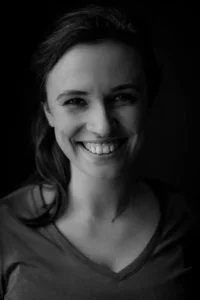
Andrea is a technical writer at the Government Digital Service. Coming from an academic research background, she finds writing for government service teams very rewarding and impactful. Andrea particularly enjoys pair writing and the docs-as-code approach to writing documentation.
Editorial support, a better solution for SMEs than style guides – Ant Davey
About the presentation
We’ve all used style guides as professional writers, but they don’t always work for the amateurs. This session looks at how we used the OPTI competency model to develop an editorial management competence at the Rail Safety and Standards Board. A competence that involves iterative technical editing support from the specification of the project to final delivery. I’ll talk about how we got it included it in project management processes. About how we have started to implement it in some major documentation projects for the rail industry. And about some of the early results we’ve seen.
About the presenter
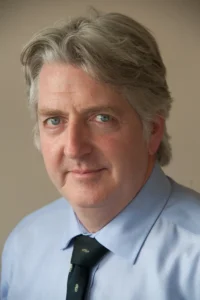
The last 35-plus years have, in some ways taken my career full circle. After graduating I worked as a marketing executive, writing direct mail letters selling customer service consultancy, and developing the training materials. Who knew I was already into a branch of technical writing? An encounter with some career consultants introduced me to the term ‘technical writer’. A what? After five years in technical PR I got my first real TW job, writing software manuals. Finding that six verbs weren’t enough, in 2006 I entered the rail industry. And now life has come full circle, to content marketing.
When correct and complete is not enough – how to give users reassurance (Workshop) – Charlotte Claussen
About the presentation
Even when we deliver correct and complete information, we can still leave our users in a state where they feel insecure and find their tasks difficult.
In this workshop we will discuss what can make users insecure, for example inconsistency, assumptions of what the product is meant to do, or lack of context. We will look at concrete examples to spot potential triggers of insecurity, and we will discuss how we can make changes that can give the users the reassurance they need.
Examples for exercise will be provided, but I also encourage you to send examples of your own. Due to security requirements, digital materials must be sent to TCUK 3 weeks before the conference.
About the presenter
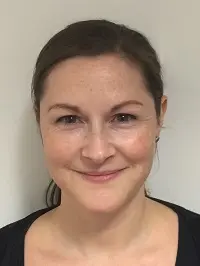
Charlotte is a technical writer with experience from start-up-agency, and corporate environments. She has always been interested in how people know what to do with stuff, and why they sometimes get it wrong. She currently works for Cisco, excited about the enterprise challenge of reducing cognitive load for users while meeting the requests of customers.
What others think we do – why it matters and how to set them straight – Charlotte Claussen
About the presentation
Through my career I have heard many different, often incorrect, statements of what my role should be, and what type of work I should be doing. And I have met many frustrated writers whose colleagues don’t understand or prioritise their work.
In this presentation I will discuss how others’ perceptions of our role affects our work, and what we can do about it. I will share some of my own mistakes and successes, and I will present a few suggestions on how you can make your own small investigations and use the findings to improve your own work conditions.
About the presenter

Charlotte is a technical writer with experience from start-up-agency, and corporate environments. She has always been interested in how people know what to do with stuff, and why they sometimes get it wrong. She currently works for Cisco, excited about the enterprise challenge of reducing cognitive load for users while meeting the requests of customers.
A picture is worth a thousand words – so here’s 10 useful things to know about pictures – Chris Burden
About the presentation
A technical writing skill often overlooked is the skill of creating illustrations. Having a clear, well thought out graphic can have quite an impact on your readers and how they absorb the content you have created.
I am not an artist and have had no formal training in the subject. For this presentation I will share some of my 20 years’ experience in technical writing and creating illustrations. I will cover typical tools available and the pros and cons of using illustrations in technical documentation. I will talk about the different types of illustrations you may be asked to create and how you can go about creating them.
By the end of the presentation you should have at least 10 useful bits of graphics and illustration knowledge.
About the presenter
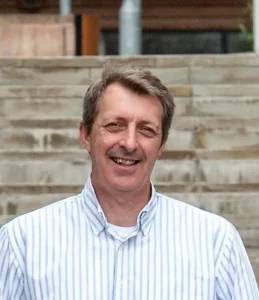
Chris is currently working as a senior technical author at 3di Information Solutions; an industry-leading supplier of out-sourced technical writing services. With over 25 years of technical writing experience, Chris has worked on many different products across many different industries. He started his career as a technical writing at Hewlett Packard in the late 80s. However, as that questionably fashionable era ended, Chris was lucky enough to be able to move on and work on a wide range of hardware, software and service products from industries as diverse as medical, financial, forestry, security, car parking, cash machines, and even military equipment.
An explanation of safety notices and how to build them in Flare – Chris Burden
No files accompany this recording.
About the presentation
Health and safety information in documentation is typically managed and controlled using standards and guidelines.
In this presentation we will review the standards and guidelines that need to be considered when writing documentation for the EU market. Then we will look at how these harmonized standards relate to the federal US system and their documentation requirements.
We will focus on health and safety issues and the use and design of safety notices; what they need to include, what they are used for, and recommended content.
At the end of the session we will share some of the CSS and Flare tricks and tips we have developed at 3di for creating single-sourced safety notices that can be used for multiple outputs, while still complying with standards.
To find out more, click here to read related articles by Chris.
About the presenter

Chris is currently working as a senior technical author at 3di Information Solutions; an industry-leading supplier of out-sourced technical writing services. With over 25 years of technical writing experience, Chris has worked on many different products across many different industries. He started his career as a technical writing at Hewlett Packard in the late 80s. However, as that questionably fashionable era ended, Chris was lucky enough to be able to move on and work on a wide range of hardware, software and service products from industries as diverse as medical, financial, forestry, security, car parking, cash machines, and even military equipment.
Jack Denies, Ten Implies: The Power of Nonverbal Communication (Workshop) – Chris Hester
About the presentation
Nowadays, we are so mindful about the words we speak that we forget what our physical presence is saying. Recognizing our nonverbal communication is particularly important for those of us who participate in video calls. Do our facial expressions and gestures support our words? How can we use others’ nonverbal cues to inform what we need to say or do?
In this workshop, we’ll discuss the rhetoric and types of nonverbal communication, as well as learn techniques for identifying and improving our nonverbal communication skills. Participants will discover how nonverbal communication can facilitate productive conversations and form stronger connections.
About the presenter
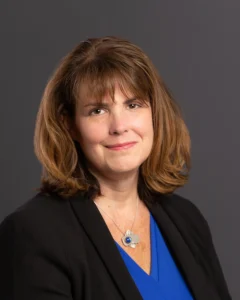
Chris is the Corporate Content Strategy and Operations Manager for UL, an STC Fellow, and a fair-weather cyclist. Prior to joining UL, she worked independently, delivering successful content strategy, taxonomy, and information architecture projects to a variety of clients, including those in the advertising, construction management, entertainment, financial services, and healthcare industries. She has been actively involved in the technical communication community as a volunteer and is a co-organizer of the Chicago Content Strategy Meetup group.
Smitten with Strategy: What we get wrong (and right) about content strategy – Chris Hester
About the presentation
It’s not uncommon in content strategy to focus more on content and less on strategy. Content is concrete: we know what we’re working with. On the other hand, strategy can be ambiguous: is it a plan or process? A set of tools? Project goals? All of the above?
This session introduces the concepts of strategy and provides a foundation for thinking strategically about our content work. As we move from deliverable-focused thinking to a strategic-thinking mindset, we’ll cover the myths and realities of strategic thinking, techniques for strategic thinking, and learning how to view content projects through a strategic lens.
About the presenter

Chris is the Corporate Content Strategy and Operations Manager for UL, an STC Fellow, and a fair-weather cyclist. Prior to joining UL, she worked independently, delivering successful content strategy, taxonomy, and information architecture projects to a variety of clients, including those in the advertising, construction management, entertainment, financial services, and healthcare industries. She has been actively involved in the technical communication community as a volunteer and is a co-organizer of the Chicago Content Strategy Meetup group.
10 To Midnight: Solve the last-minute rush – David Bailey
About the presentation
We always work 10 minutes before the midnight deadline.
It’s a classic release documentation problem: you can’t write content until the software is stable and ready for release. But that’s the worst time to access SMEs, do the research, and write good-quality content. We write in a rush, or we release documentation late. It’s a lose-lose scenario for both writers and readers.
David will describe how he has driven a solution to this problem, and how you can apply a similar solution yourselves, by both turning everyone into writers, and by “shifting left” documentation writing.
About the presenter
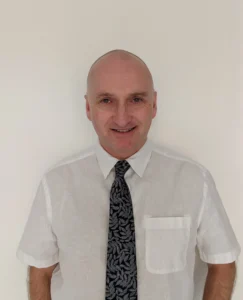
David is the Lead Information Architect at White Clarke Group, managing the Information Architecture team.
David has worked in technical communications for nearly 30 years, including technical writing and content development areas, working on a range of documentation: from product descriptions, to user guides, to detailed technical information. David has worked for multiple companies in the software sector, including ServiceNow and Orbis Technologies.
David has driven improvements in documentation at White Clarke Group, and currently manages transition of White Clarke documentation platform to a hosted help-based system.
Let’s make a Podcast! – Ellis Pratt
About the presentation
We’ll look at the podcasts that can help you in your technical communication career. We’ll also look at how we make the Cherryleaf Podcast, and how you could create a podcast of your own.
Furthermore, we will create an episode for that podcast, asking some of the delegates about their experience at the conference – what they learnt, what they liked, what they will do after the conference.
About the presenter
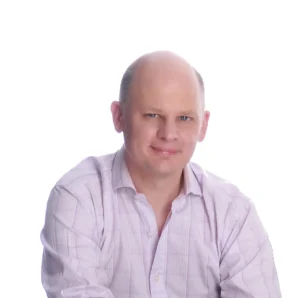
Ellis Pratt is a Consulting Technical Communicator and Director at Cherryleaf, a technical writing services company. He has been working in technical communication since the early 1990s. He has a degree in Business Studies, and is a member of organisations such as the Institute of Scientific and Technical Communicators, the Institution of Engineering and Technology and the ISTC Management Council. Ellis was a contributor to two books: Current Practices and Trends in Technical Communication, and The Language of Technical Communication.
What skills will technical communicators need for the upcoming years? – Ellis Pratt
About the presentation
The ways organisations support end users has changed over time. This is because new technologies emerge, products change, and users become more confident in using technology on a daily basis. We’ll look at how User Assistance is likely to change, and the skills technical communicators may need to have in the near future. We’ll also look at how Designers are facing similar issues, and how they are adapting.
About the presenter

Ellis Pratt is a Consulting Technical Communicator and Director at Cherryleaf, a technical writing services company. He has been working in technical communication since the early 1990s. He has a degree in Business Studies, and is a member of organisations such as the Institute of Scientific and Technical Communicators, the Institution of Engineering and Technology and the ISTC Management Council. Ellis was a contributor to two books: Current Practices and Trends in Technical Communication, and The Language of Technical Communication.
Making the most of challenging situations or How I Learned to Stop Worrying and Love the Challenge – George Bakalios
About the presentation
In the fast pacing world of technology nothing remains the same for a long time. New challenges come up every day and work can become overwhelming very easily. In this presentation I will talk about how one can embrace the challenges, see the positive side of them, and how this can develop the individual’s skills and boost their careers. I will be using my personal journey as an example and how the various challenges I faced over the years proved to be opportunities and equipped me with the skills to progress my career.
About the presenter
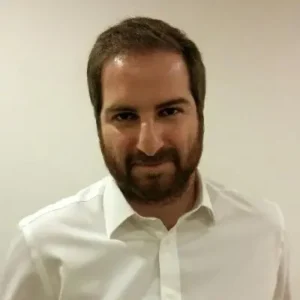
George comes from an Electrical and Computer Engineering background having studied at both the University of Patras and UCL. He started his career in Athens working as a Documentation Specialist for Nokia Siemens Networks before moving to Cambridge to be a Technical Author at Arm. After a few years working on a number of Arm CPU projects, in 2018 George took the role of a Senior Manager in Technical Communications leading a very diverse team of Information Developers spread throughout the globe.
Docs as Code and DITA – George Bina
About the presentation
Treating Documentation as Code and using similar tools as developers is a trend known as “Docs as Code” that gained a lot of adoption in the recent years. “Docs as Code” approach is usually associated with source formats like Markdown, Asciidoc while DITA is associated with a heavy, old, monolithic CMS, as if DITA implies that CMS. In reality, this is not the case, DITA is a perfect fit for “Docs as Code” solutions and it is actually used as such in a number of projects. It provides also many advantages like semantic tagging, built-in reuse functionality, validation frameworks for both structure and business rules and more.
About the presenter
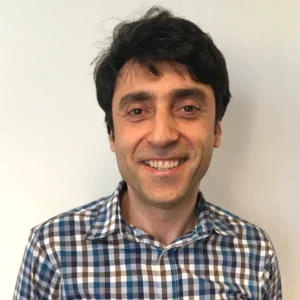
George Bina is one of the founders of Syncro Soft, the company that develops oXygen XML suite of XML editing, authoring, development, publishing and collaboration tools. He has more than 20 years of experience in working with XML and related technologies, bringing many innovative ideas to reality and contributing to XML-related open-source projects.
He presented at many XML, DITA, and technical communication conferences, giving passionate presentations and challenging the technological status quo, trying to get the audience to think outside the box, and re-imagine the future.
Interactive Intelligent Style Guide – George Bina
About the presentation
Style guides started as set of rules written in prose that people had to learn and follow when writing content. Using a style guide is a necessity in order to avoid repeating mistakes. To eliminate the overhead of learning all the rules before starting to write, we need intelligent style guides that enforce their rules automatically, detecting problems and offering possible solutions the writer can choose from. Such style guides are not only possible, but immediately available to you!
About the presenter

George Bina is one of the founders of Syncro Soft, the company that develops oXygen XML suite of XML editing, authoring, development, publishing and collaboration tools. He has more than 20 years of experience in working with XML and related technologies, bringing many innovative ideas to reality and contributing to XML-related open-source projects.
He presented at many XML, DITA, and technical communication conferences, giving passionate presentations and challenging the technological status quo, trying to get the audience to think outside the box, and re-imagine the future.
10 steps to streamlining your localisation – How we halved the production time for a 28-language documentation suite – George Lewis
About the presentation
Producing documentation is a challenge. Producing documentation in 28 languages is tougher. But getting all 28 languages on every single page while halving the time it takes is downright ridiculous …. or is it?
Promethean sells their interactive displays for classrooms in 154 countries. To cater for these countries, the documentation is required in 28 languages.
Due to the cyclical nature of the education business new products must be available in time for the purchasing season; if you miss that window, the product is doomed. So the documentation can’t be late.
In this talk we shall discus the key steps we took to help Promethean halve the production time for their documentation. We shall cover aspects such as why we selected the tools we did, how information design played a key role, and some of the challenges we faced.
To find out more, click here to read related articles by George.
About the presenter
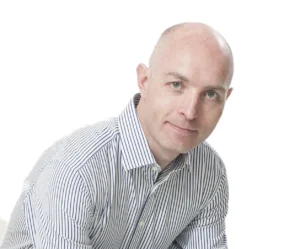
George heads up the Service Delivery team at 3di. Having started his career in tech comm nearly 20 years ago in Germany, George has served his time as a writer of documents as well as a consultant helping organisations automate their documentation workflows.
George is passionate about developing the people and processes necessary to bring tech comms into the 21st century.
How to publish your docs every 10 seconds like Amazon – George Lewis
About the presentation
The traditional documentation approval and release cycle doesn’t fit with products that use continuous integration. I mean, Amazon updates their products every 10 seconds (ok 11.7s)!! How can they possibly have time to compile HTML in a desktop publishing tool and then publish?
“Docs as code” arose out of the need to align documentation processes with code development processes. So the approach has been driven by developers and DevOps teams to use the tools they already have such as simple text-based authoring with Markdown or ASCIi doc combined with static site generators.
But this was not enough, so now we have developer portals tools such as Readme.io and APIary. Does this mean there is no place for the powerful DTP tools we are comfortable with such as MadCap Flare or FrameMaker?
In this presentation we will look at the docs as code workflows and tools, and see how a feature-rich DTP package like MadCap Flare can be used.
To find out more, click here to read related articles by George.
About the presenter

George heads up the Service Delivery team at 3di. Having started his career in tech comm nearly 20 years ago in Germany, George has served his time as a writer of documents as well as a consultant helping organisations automate their documentation workflows.
George is passionate about developing the people and processes necessary to bring tech comms into the 21st century.
10 commandments of technical writing – are they still relevant? – Jean Rollinson
About the presentation
What are the ten commandments of technical writing? Many versions have done the rounds on social media, but in this presentation, I will look at the list that appeals most to me and consider whether they are true and whether they work for all situations. I will then move on to consider whether, with the changes and developments in technical writing, they are still relevant. For example, with the rise of content on demand and users only reading bits of text relevant to their situation at the moment, we can’t always know the context or what the user has already read.
About the presenter
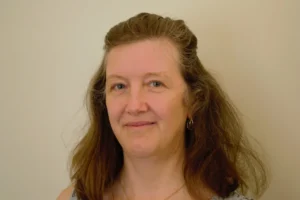
I have been a technical author and editor since 1994 and have worked mostly in the software industry. I am happiest playing with MadCap Flare, but I also try to help other people use Word efficiently. I spent nearly 13 years as a freelance technical author and editor while my children were growing up, but I prefer the stability of permanent work.
Ones and zeros: An introduction to managing documentation like code – Jen Lambourn
No files accompany this recording.
About the presentation
To treat documentation in the same way developers treat code requires more than a new set of tools. ‘Docs as code’ can fundamentally changed documentation culture, transforming how subject matter experts and writers create and iterate content together.
Based on our experience introducing docs as code for all technical documentation at the Government Digital Service, this talk will explore:
- what docs as code looks like in theory and practice
- how to map workflows to the docs as code approach
- what tools, design, and skills you’ll need
- the benefits and limitations
- how it can transform relationships with experts and users alike
About the presenter
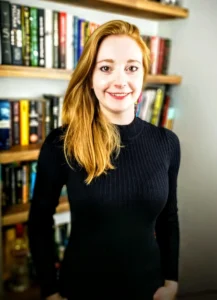
Jen is a writer who loves a gnarly content problem. As Head of Technical Writing at the Government Digital Service (GDS), Jen leads a team of writers producing technical documentation and guidance to help people build, buy and reuse technology across the UK government. She likes using developer tools to manage docs, redefining how writers work with engineers, and creating inclusive, user-centred content that helps others.
There are 10 kinds of people in the world: Developers and Users – Jen Phillips
About the presentation
It can seem like developers and users are not even the same species, so getting them to work collaboratively can be quite the challenge.
I’ve seen rigid structures that prevented developers and users from ever speaking directly. I’ve also seen developers making changes at direct user request with little strategic oversight. I firmly believe there is a happy compromise to be found and I’m dedicated to building it.
I will talk about some of the processes and techniques I’ve tried, making the changes in ways that work for everyone, and some of the mistakes I’ve made along the way.
About the presenter
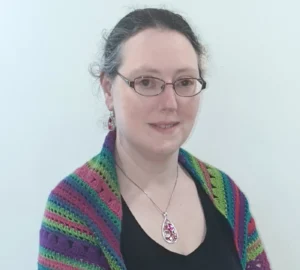
Jen is a word nerd who generalises in anything techcomm-related that needs doing, including software testing and documentation. She has made a career out of getting into other people’s business and helping them out, turning this to all aspects of the software lifecycle and broadening her skills considerably along the way. She aims for improving quality in all aspects of the products, services and corporate culture she can reach, with everything from designing better processes to running regular wellbeing workshops.
Inspire with Comics (Workshop) – Joaquim Baptista
About the presentation
Successful software products accumulate features over time, becoming more complex and harder to explain.
When complex products are combined with staff turnover, knowledge of product features erodes over time, and the software products are used below their potential.
Comics can teach staff how to recognize the situations that products solve, as a starting point for further exploration of documentation and user interfaces.
After the workshop, the participants should be able to:
- Identify good comics.
- Identify people stories behind product features.
- Craft insightful comics to explain product features.
- Explain products with coordinated sets of comics.
About the presenter

Currently working at Farfetch, Joaquim has documented large and evolving software products that require industrial writing processes instead of just writing craftsmanship, since 1997.
In 2014, Joaquim adopted comics as a way to quickly introduce product features to new users, or to add insight to training lessons. Later, Joaquim adopted comics to show how users experience a product, and to explain the many problems solved by a larger company.
Before tackling documentation, Joaquim worked as trainer, programmer, system administrator, and academic researcher.
Taking the Jump from 00 to 10. Building HTML-Based Documentation from an infrastructure of PDF Help Files – Ken Davies
About the presentation
Developing online help when all other content is written in PDF format is much more than converting text to an HTML format. Creating HTML content requires a different type of writing, user experience understanding, and work methodologies. This means that much of your content needs to be created again. So how does the author make it happen while development moves on?
Creating online help is possible with a range of modern techniques, such as topic-based authoring, Kanban methodologies, and CSS. As a result, you can deliver new content on the latest product features and minimise the documentation backlog.
About the presenter
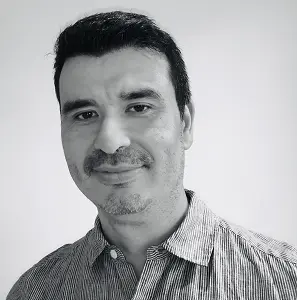
Ken entered technical communications by accident while traveling. In Taiwan, he wrote marketing copy for a mini motherboard that spurred a trend in small PCs. He also worked at anti-virus giants Trend Micro.
Continuing his exploration in technology back in the UK, he worked at map specialists 1Spatial and at Venda, pioneers in e-Commerce software.
He loves seeing the ways in which writing can help the user and immerses himself in blogging and attending meetups.
Currently at Microdec (part of the Access group), he has spent the last 3 ½ years designing their online help as the sole technical author.
Sign says 10 miles to Bognor Regis – signposting your help content – Liz Gregory
About the presentation
Signposting gives us information. Go this way, stop here, expect deer on the road. This is as important in help content as it is on our roads. All users start somewhere, need to know where they are, and have a destination in mind. Are they in the right place? Where else should they be?
If you’re a newbie, or more used to printed manuals, this presentation will help you signpost your help content. This paragraph is a navigational aid – it tells you whether you’re looking at the right presentation for your needs. Would it have been more useful at the top? Let’s find out!
About the presenter
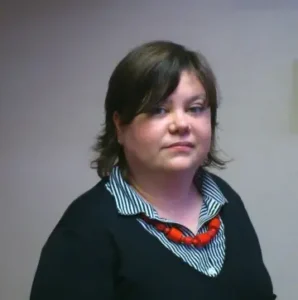
Liz Gregory MISTC is the sole technical author at tvONE and writes about commercial AV hardware and software. She has a background in chemistry and education and is a champion of user-first content. Liz’s current big project is raising a wonderful daughter while continuing to be the sole author supporting 500 products. She’s learned a lot about juggling deadlines, priorities, and being organised: plan, plan, plan, and always carry a contingency nappy. She is a dedicated member of the Thames Valley ISTC group, and enjoys knitting, web comics, and ball pits.
Ten hundred topics? Try planning with mind maps – Liz Gregory
About the presentation
Topic-based authoring is like managing your life on post-it notes. They’re small, there can be hundreds of them, and sometimes you walk off with one stuck to your shoe. It’s hard to work small but see the big picture.
A visual person, I found my solution in mind maps. I use structure, colours, and icons to plan and manage my project, topic types, effort, progress, and issues within our agile framework.
This presentation will outline the techniques I use in Mindjet MindManager. Mind maps aren’t for everyone, but if you like your information visual, maybe they’re for you!
You can download a trial version of Mindjet MindManager and have a go yourself.
About the presenter

Liz Gregory MISTC is the sole technical author at tvONE and writes about commercial AV hardware and software. She has a background in chemistry and education and is a champion of user-first content. Liz’s current big project is raising a wonderful daughter while continuing to be the sole author supporting 500 products. She’s learned a lot about juggling deadlines, priorities, and being organised: plan, plan, plan, and always carry a contingency nappy. She is a dedicated member of the Thames Valley ISTC group, and enjoys knitting, web comics, and ball pits.
10 most baffling experiences in my nearly 3 x 10 years career as a content creator – Margaretha Hopman
No files accompany this recording.
About the presentation
My career as a self-employed content creator started in February 1991 and I have worked for over 80 companies since then. Most jobs I do not even remember, but some jobs, some co-workers, some bosses left me speechless. In this session, I will share 10 (maybe more) experiences that some of you may recognize, others (I expect) will be as baffling to you as they were for me. Of course, I will also share what I learned from these experiences.
About the presenter
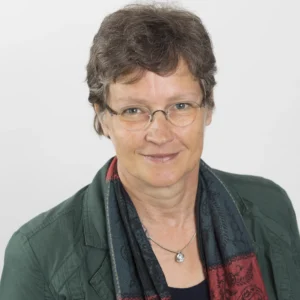
Margaretha Hopman has been a self-employed content creator since 1991, working mainly as a technical writer, occasionally as a trainer and sporadically as an instructional designer. She has worked with various authoring tools, but MadCap Flare has been her tool of choice for the past 8 years. She loves designing documentation structures that work and that are future-proof.
In summer, Margaretha spends a lot of time in her garden to grow her own fruits and vegetables. In the winter months, she attempts to master the art of watercolour painting, and she goes ice skating as often as possible.
ISO 20607… just another standard that tells you how to do your job? – Margaretha Hopman
About the presentation
ISO 20607 “Safety of machinery – Instruction handbook – General drafting principles” is a new standard that will be on the list of harmonized standards for the Machinery Directive. Standards are usually rather boring documents, but this very practical type-B standard might help you in creating the right content for instructions for use with machines.
After a brief recap of what the Machinery Directive (2005/42/EG) says about instructions for use, I will explain the main points of ISO 20607. I’ll suggest an approach for an updated workflow and there will be a checklist to help you get started.
About the presenter

Margaretha Hopman has been a self-employed content creator since 1991, working mainly as a technical writer, occasionally as a trainer and sporadically as an instructional designer. She has worked with various authoring tools, but MadCap Flare has been her tool of choice for the past 8 years. She loves designing documentation structures that work and that are future-proof.
In summer, Margaretha spends a lot of time in her garden to grow her own fruits and vegetables. In the winter months, she attempts to master the art of watercolour painting, and she goes ice skating as often as possible.
It started at 10 – how technical communication guides us through life – Mark Monaghan
No files accompany this recording.
About the presentation
Technical communication sets up our expectations for learning from a young age. This session highlights some of the familiar and some unexpected places one person experienced the fruits of our profession, and suggests how the lessons from these early encounters can continue to inform the documentation process throughout a career.
About the presenter

After a meandering career including TEFL, mechanics, and coaching, Mark completed a degree in Astrophysics at Maynooth University. It was here that he wrote his first technical document, after getting frustrated with verbally explaining to each individual in the class how to fix a particular bug in the virtual machine with the image reduction software. He now works at a fintech company.
Office working: Tips for an easier life – Martin Block
About the presentation
This presentation is a light-hearted (but hopefully helpful!) review of how to make our lives as technical communicators a little bit easier in the office environment. Its aim is to provide those new to the profession with some tips on how to thrive as office-based technical communicators, and to prompt older hands to reflect on their own office survival tactics.
About the presenter
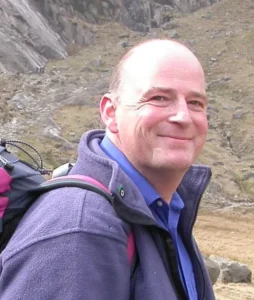
Martin Block FISTC has worked as a technical author in the petrochemical and pharmaceutical industries, and currently writes for Remsdaq Ltd, a technology company based on Deeside near to Chester. He did a doctorate in physical oceanography (studying sand pick-up over ripples) before which he taught secondary school mathematics for a couple of years. Martin is a keen mountaineer and photographer, and has self-published a book – ‘Five Weeks One Summer’ – a diary of his 5-week solo trip to the high Alps back in 2004.
Top Tech Comms Technology Trends from the Past 10 Years – Matthew Ellison
About the presentation
The past decade has seen many technology changes that have significantly impacted our work as Technical Communicators – not least the explosion in use of mobile devices that were almost unheard of 10 years ago. This presentation examines the trends, and picks out some key changes that Technical Communicators should be most aware of. These include responsive Design, micro content, open source development tools, and cloud-based authoring.
About the presenter
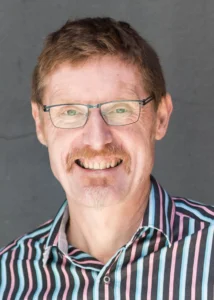
Matthew runs UA Europe, an independent training and consultancy company that specialises in user assistance design and development. He has over 30 years of experience as a user assistance professional, including a period in the US as Director of the WritersUA Conference. Matthew has in-depth knowledge of user assistance technologies including HTML5, CSS, and jQuery, and he has trained hundreds of authors on a wide range of tools including Flare, RoboHelp, and Help+Manual. He is a past winner of the ISTC’s annual Horace Hockley award.
Ten STE Myths Busted – Michael Bergstrom
About the presentation
This presentation draws on some of the material written in Mike’s article “The Great STE Myth”, published in the Winter 2018 edition of Communicator. It tackles the inaccurate hype surrounding Simplified Technical English, exposing ten of the myths that are continually propagated in an attempt to keep this controlled language alive. Mike’s view is that STE is a standard that has failed miserably to find its way out of its aircraft maintenance procedure niche and should be best avoided as far as possible in favour of Plain English. “Writing STE is like writing with a pair of boxing gloves on” he claims. This presentation is bound to create some fireworks and ruffle some feathers of STE proponents, but one of Mike’s self-proclaimed hobbies is ruffling feathers.
About the presenter
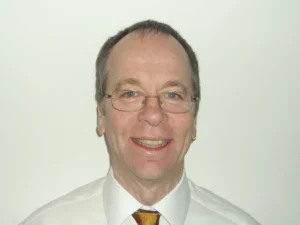
Mike Bergstrom started his career as a graduate Electrical & Electronic engineer in 1983. He has worked in design, development, applications and product management in many electrical/electronic engineering disciplines including IC design, high power analogue design, computer hardware and communications. He has been a technical translator and technical writer for the last 25 years, most of it as a freelance technical author/documentation consultant. When it comes to technical writing, he has seen it all. Mike currently works at Elekta as a technical author team leader. He considers himself an engineer who can write, rather than a writer who can engineer.
Micro Content, Chatbots, and Machine Learning – What Do They Mean for Technical Authoring? – Mike Hamilton
No files accompany this recording.
About the presentation
In our high technology world, the need for quality content is always growing. However, how that content is delivered or received is constantly evolving. In this session, Mike Hamilton will introduce the concepts around “micro content” and how it will impact traditional technical authoring. The session will cover how your content can support your existing publishing requirements (PDF, HTML5, eBook, etc.) and be made compatible with micro content at the same time. Learn how to prepare your content for use as source material for automated chat feeds, bots, and other automated delivery techniques.
About the presenter
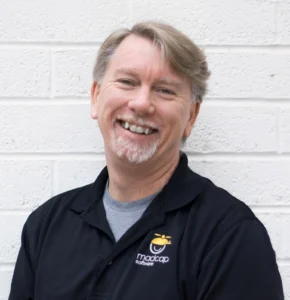
Mike has over thirty years of experience in training, technical communication, multimedia development, and software development at several organizations including Blue Sky Software/eHelp/Macromedia where he ran the RoboHelp program from 1998 to 2005, Cymer, a leading supplier of laser illumination sources to the semiconductor industry, National Steel & Shipbuilding, and the US Navy.
Mike is often a featured speaker at industry events, including the WinWriters Online Help Conferences, STC (the Society for Technical Communication) Annual Summits, TCWorld events, TCUK, SOAP, and many more events. Mike has also appeared at the Microsoft Campus and STC regional conferences and events.
Mike is also frequently quoted in technology articles in various trade publications.
Don’t Panic! Applying 10 Risk Management Principles to Technical Communication – Olly Kirillova
About the presentation
Have you ever felt as if you are on fire because the deadlines shifted again? Although there are some risks that you cannot prepare for, there are many others you can control, predict and plan for.
Technical communicators can apply risk management strategies to prepare for different outcomes. A proper risk management plan is what will keep you sane and in control. In this session, I’ll cover the basics: what constitutes a risk in Technical Communications, how to identify and evaluate risks, and, most importantly, how to set up an effective risk mitigation framework and finally stop panicking.
About the presenter
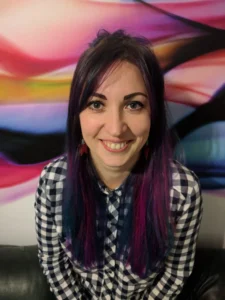
Olly Kirillova, a technical communicator, content developer, and a bit of a control freak. Being a technical communicator for almost ten years, I worked in diverse projects, aimed at skilled IT professionals as well as completely non-technical users. I believe that user needs come first and always advocate for people I write for. My inner perfectionist finds joy when the documentation tasks are on track and risks are well-managed. Besides technical communications, I’m interested in project management, UX, and travelling.
10 Things about SVG and Technical Documentation (Workshop) – Tony Dzumaga – No audio
Recording not available.
About the presentation
This workshop will focus on SVG files to show where to use them in technical documentation; we will look at the anatomy of SVG files and the tools we can use to create them. Finally, we will focus on many examples using the diagramming tool Lucidchart.
You will be able to participate online using examples in Codepen and Lucidchart.
Finished examples will include online help using Flare and RoboHelp, printed output using FrameMaker and Word, Lucidchart schematics and diagrams, plus many more.
We will be firmly in the graphics zone, focusing on icons, infographics, schematics, and flowcharts.
About the presenter
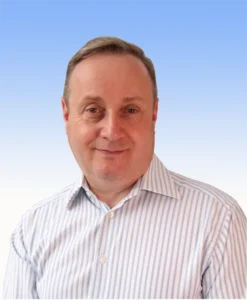
Tony is a Fellow of the ISTC and has worked in technical communications since 1996.
His documentation experience includes being a courseware developer and trainer in the project management sector, creating boat manuals in nine languages for a luxury yacht manufacturer and developing online help for a SCADA suite of software tools in the oil and gas industry.
Tony has experience of multimedia and graphics from being a Sony Centre and Apple Centre manager in the past.
He is currently working to create technical help content for Apteco a digital marketing software company.
10 records – CPD record keeping (Workshop) – Zsuzsa Nagy & Derek Cooper
No files accompany this recording.
About the presentation
We will use example CPD records to improve (or start!) record keeping. We will also explore what else CPD records can be used for – turning a “chore” into a toolkit for on-the-job appraisals or job searches. The workshop is open to everybody. To get most out of the workshop, participants are requested to attend the session with their laptop and do about 1-2 hours of prep work.
About the presenters
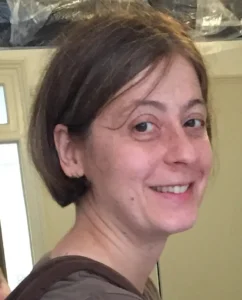
Zsuzsa Nagy has over 15 years of experience in the field of information design and is a Fellow of the ISTC. She has worked on manuals in various industries, including telecomms, microprocessor design, and inkjet print electronics. She has been keeping CPD records since she joined the ISTC in 2010.
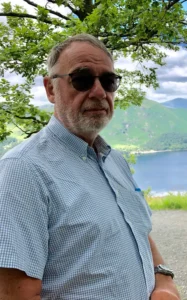
Derek Cooper is a Fellow of the ISTC and has been working in technical communications since 1992. He has written technical, service and user manuals, training courses and software help systems on a wide range of subjects. He has considerable experience with the Information Mapping and DITA topic-based writing methodologies. In his spare time he is active as a STEM Ambassador, discussing careers in engineering, technology and science with students of all ages at schools. As the chair of TCUK, he takes a deep interest in the process of making the conference successful and enjoyable for all attendees.
Conference Thursday closing address – Derek Cooper
No files accompany this recording.
TCUK 2018
Presentations are in audio format, recorded live during the conference. Slides are provided in PDF format, where available.
The Value of the Polymath Communicator – Alisa Bonsignore
About the presentation
Technical communicators were once thought to be single-subject experts. Today, we realize that the most successful among us are truly polymaths, bringing together subject matter expertise with our knowledge of multiple media channels, content strategy, user experience, and of course, writing. Yet for all of the skills that we bring to the workplace, we’re often uncertain about how to best communicate our value to management.
In this talk, we’ll identify some of the roadblocks to our success; how personality and temperament can affect others’ perceptions of us; and how to best advocate for our role in our organization.
About the presenter
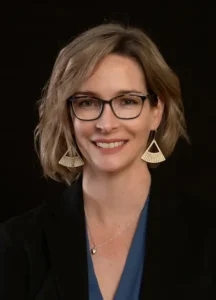
Alisa Bonsignore runs Clarifying Complex Ideas, a strategic communications consultancy in the San Francisco Bay Area. Her mission is to create clarity and build engagement, delivering the right information at the right time.
Alisa helps companies communicate complicated topics, including medical devices and pharmaceuticals/genomics; network security; healthcare IT; and policy development and sustainability communications surrounding companies’ efforts to improve their supply chains and meet the U.N. Sustainable Development Goals (SDG). She is serving her second term on the STC board of directors.
She speaks about professional development topics to technical communicators, medical writers, content strategists, and other creative professionals.
If variety is the spice of life… – Alison Peck
About the presentation
I enjoy a challenge and rarely turn down a professional one– something has to be well outside my comfort zone before I say ‘No’ for lack of enthusiasm. I do consider, though, the financial impact of learning new skills and how useful they are likely to be in the future.
This session looks at some of the ‘nonstandard’ things I have done – the things that some technical communicators may hand over to colleagues who are specialists in that area – and how they have worked out for me and (more importantly) for my employer/clients and the people using what I develop.
About the presenter
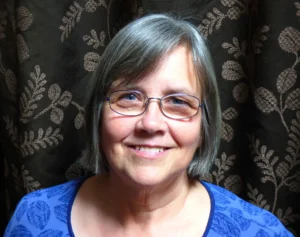
Technical communicator wasn’t on my list of possible jobs when I was at school. Like many, I fell into it. But by then, I’d developed a life-long fascination with language, with learning, and with the visual appearance of information. When I finally found myself working outside the health service, it was with small companies where everyone knew me. I sorted out their Word issues, proofread their marketing materials and even helped them phrase a CV a little better. I loved hearing “Do you think you could…?” because that often led to something I hadn’t tried before. Exciting? Maybe. Different? Definitely.
Who’s on First – Andrea Flolid – No audio
Recording not available.
About the presentation
In my early career, I wrote reports, user guides, and technical submissions where the customer was well known, and the requirements were clearly defined. At Arm, it became very clear to me that I didn’t know who our customers were and what they were looking for in our documentation.
This presentation covers:
- The differences between internal and external customers.
- Techniques used with internal customers:
- Kick-off Presentations
- Communication
- Surveys
- Techniques used with external customers:
- Empathy mapping
- Interviewing customer-facing colleagues
- Participating in customer training session
- Tracking data and using it to improve the documentation.
About the presenter

Andrea Flolid is a Senior Information Developer at Arm working in Austin, TX. Andrea’s early career was spent working at Motorola designing consumer phones and remote keyless entry systems. After taking a career break, Andrea switched gears from engineering to technical writing. Since Andrea did most of her own technical writing at Motorola and assisted with the Marketing documentation, this wasn’t a very big stretch. However, switching from RF circuitry to semiconductor IP required a steep learning curve. In the end, providing her customers with high quality, technically accurate products has always been at the centre of Andrea’s career.
Beyond the Book – Tech Comms for the Digital Generation (and Beyond) – Andrew Mills
About the presentation
As communication delivery methods diversify and constantly move forwards in the digital era, so too must our skills and appreciation for the many different content delivery formats that people now choose to learn with.
This presentation is a look at the new skills I’ve needed to learn as I aim to deliver enriching and memorable content that goes beyond the written word – whilst still accommodating those who prefer a less ‘visually-focused’ approach.
So, join me as I delve into the exciting world of creating educational Augmented Reality, Virtual Reality, and Ultra High Definition content for a digital generation – and beyond.
About the presenter
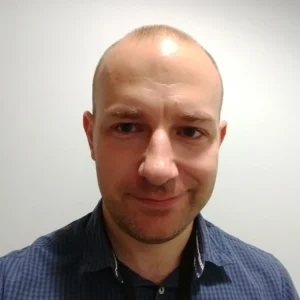
In March 1999, my first video game guide was published in the pages of N64 Magazine. From 2003 onwards, I became the ‘go-to’ video game guide author for most of Future Publishing – Europe’s largest magazine publisher. In turn, creating a portfolio of over 140 printed guides across multiple different gaming publications.
I continued to create and self-publish video game guides for digital platforms, such as iOS applications and e-books, before moving into the role of Technical Author in the business software sector in 2015. Today I continue to grow professionally as a Senior Information Developer for ARM in Cambridge.
I’m just a technical writer. Actually, no. – Ant Davey
No files accompany this recording.
About the presentation
At a conference some years ago, I was listening to an IBM senior staff member, responsible for customer experience, about career progression. There was an audible intake of breath from some of the younger members of the audience when she suggested that technical writers couldn’t, or shouldn’t expect to, be a technical writer for the whole of their career. Coming from marketing and PR, it wasn’t news to me. This short bio-pic covers the activities
I’ve been involved in as a technical communicator that are just some of those that you might be asked to do in future.
Since I started work, I’ve written and managed direct mail campaigns, educational materials, website content, even a book chapter about metal detection in the food processing industry. I have shot and edited photographs and more recently video as well. I developed an information architecture for our in-house media library, trained as a change management specialist, handled customer enquiries, advocated for a move to structured authoring, supported two new website upgrades, created company-specific Facebook pages, and written annual reports. My latest venture is into scripting and producing podcasts. This short bio-pic covers the fields of activity that I’ve been involved in as a technical communicator that are just some of those that you might be asked to do in future.
About the presenter

A writer and editor in marketing and PR for 15 years, before I discovered that there was such a thing as technical writing. That’s when I enrolled on the distance-learning MA in Technical Authorship at Sheffield Hallam University (other courses are still available). I dabbled in writing software user guides for a few years before I was lucky enough to find a job in the rail industry. Now working on matters engineering, operational, physiological and psychological. As well as writing and editing I’m a teacher and mentor, photographer, videographer, video editor, and now podcast script writer and producer.
Temperament-based Strategies for Excelling in the Workplace (Workshop) – Ben Woelk – No audio
Recording not available.
About the presentation
Temperament types have big impacts on work relationships. Today’s workplace presents challenges for both introverted and extraverted team members. Many workplaces are adopting open space layouts that foster teamwork but provide little opportunities for introverts to contribute as individuals. Extraverts may struggle with working with Introverts. Because of Western society’s emphasis on extraversion, many introverts feel unsuited or ill-equipped to thrive in today’s workplace and are not sure how to take that next step to increase influence and improve visibility. All personality types may have issues working with coworkers or management. Is your manager a Guardian, an Idealist, a Rational, or an Artisan? How does that change how you approach them? Suitable for all attendees, you’ll benefit from understanding your temperament and how you interact best with others.
Attendees will
- learn general and specific insights gained from personality and temperament typing
- identify their strengths and weaknesses
- discuss workplace challenges
- learn strategies to mitigate these challenges
- create an action plan to revive and thrive
Attendees will benefit most from the workshop if they know their Myers-Briggs/temperament profile in advance. I recommend taking the tests at humanmetrics.com and keirsey.com before attending.
About the presenter
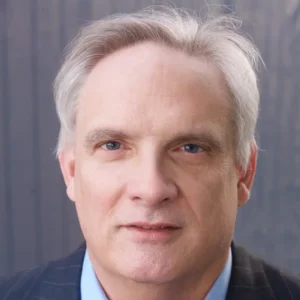
Ben Woelk, CISSP, CPTC, is Vice President and Associate Fellow of the Society for Technical Communication (STC). A frequent conference presenter, Ben has received numerous Society and local awards, including the 2017 STC President’s Award.
Ben’s 20+ years techcomm experience includes management, SW and HW documentation, ISO 9001 documentation, instructor-led and web-based training, end user communications, and policies and procedures.
As Information Security Program Manager at Rochester Institute of Technology (RIT), he’s created a leading security awareness program, and teaches Computing Security and Technical Communication courses at RIT. In the EDUCAUSE Higher Education Information Security Council Awareness and Training Working Group, Ben works to develop cyber security awareness programs.
Ben guest edited STC’s February 2017 Intercom, “Personality, Temperament, and Technical Communication,” and authored Shock Proofing Your Use of Social Media (Kindle). Ben manages a virtual Introverted Leadership community, and mentors and advocates for aspiring introverted leaders.
Ben holds degrees from the University of Florida (BA), Trinity International University (MA), University of Rochester (MA, PhD Candidate), and RIT (Advanced Certificate in Technical Information Design).
Find Ben on his website, Benwoelk.com, or on Twitter as @benwoelk.
Lesson’s Learned on an Introvert’s Journey to Leadership (Keynote) – Ben Woelk
About the presentation
Many of us might agree that Western society lauds extroverted leaders and their accomplishments. However, introverts make great contributions and can be effective leaders too. As technical communication professionals, many of you are introverts, and you certainly work with a lot of introverts. Those of us who are introverts may not believe or recognize that we have strong leadership skills, and we certainly don’t seem like the extroverted leaders that are the norm in Western society.
My introversion informs my approach to leadership, and I’ve found that self-understanding has helped me learn how to harness my strengths as an introvert to become an influential leader and to achieve great results.
Join me as I share personal insights and experiences from my leadership journey from shy team member to recognized leader. I’ll also identify the key steps I took that helped me become a successful leader and discuss how you can apply these steps to become a leader and influencer.
About the presenter

Ben Woelk, CISSP, CPTC, is Vice President and Associate Fellow of the Society for Technical Communication (STC). A frequent conference presenter, Ben has received numerous Society and local awards, including the 2017 STC President’s Award.
Ben’s 20+ years techcomm experience includes management, SW and HW documentation, ISO 9001 documentation, instructor-led and web-based training, end user communications, and policies and procedures.
As Information Security Program Manager at Rochester Institute of Technology (RIT), he’s created a leading security awareness program, and teaches Computing Security and Technical Communication courses at RIT. In the EDUCAUSE Higher Education Information Security Council Awareness and Training Working Group, Ben works to develop cyber security awareness programs.
Ben guest edited STC’s February 2017 Intercom, “Personality, Temperament, and Technical Communication,” and authored Shock Proofing Your Use of Social Media (Kindle). Ben manages a virtual Introverted Leadership community, and mentors and advocates for aspiring introverted leaders.
Ben holds degrees from the University of Florida (BA), Trinity International University (MA), University of Rochester (MA, PhD Candidate), and RIT (Advanced Certificate in Technical Information Design).
Find Ben on his website, Benwoelk.com, or on Twitter as @benwoelk.
Digital Self Defense – Tips, Tools, and Best Practices to Stay Safe Online – Ben Woelk
About the presentation
Do you know what it takes to stay safe online? Do you know how to protect yourself and others? Are you worried about your online privacy? Did you know your smartphone can be attacked?
Cybercriminals continue to devise new ways to attack us both at work and at home. In order to meet those threats, we need to understand how to defend against them.
Join Ben for a discussion of tips, tools, and best practices that will help you enjoy the Internet more safely, whether you’re using a personal computer, smartphone, or tablet.
About the presenter

Ben Woelk, CISSP, CPTC, is Vice President and Associate Fellow of the Society for Technical Communication (STC). A frequent conference presenter, Ben has received numerous Society and local awards, including the 2017 STC President’s Award.
Ben’s 20+ years techcomm experience includes management, SW and HW documentation, ISO 9001 documentation, instructor-led and web-based training, end user communications, and policies and procedures.
As Information Security Program Manager at Rochester Institute of Technology (RIT), he’s created a leading security awareness program, and teaches Computing Security and Technical Communication courses at RIT. In the EDUCAUSE Higher Education Information Security Council Awareness and Training Working Group, Ben works to develop cyber security awareness programs.
Ben guest edited STC’s February 2017 Intercom, “Personality, Temperament, and Technical Communication,” and authored Shock Proofing Your Use of Social Media (Kindle). Ben manages a virtual Introverted Leadership community, and mentors and advocates for aspiring introverted leaders.
Ben holds degrees from the University of Florida (BA), Trinity International University (MA), University of Rochester (MA, PhD Candidate), and RIT (Advanced Certificate in Technical Information Design).
Find Ben on his website, Benwoelk.com, or on Twitter as @benwoelk.
Cybersecurity and documentation security considerations for authors – Bridget Khursheed
About the presentation
When APIs make documentation synonymous with the product, what security considerations should authors be aware of? In a PSD2 world where cybersecurity is key what vulnerabilities might documents expose to an attacker? This talk explores how you can maximise security in API and other documentation and learn a defensive mindset to promote and protect company information through security best practice.
About the presenter
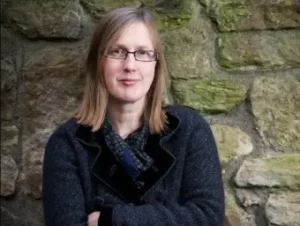
Bridget Khursheed is a poet and geek from the Scottish Borders. She works at KAL, a fintech company based in Edinburgh as Global Documentation Manager and is currently studying for an MSc in Advanced Security and Digital Forensics.
How to win followers & influence people: Tech comm lessons from writing about novels – Cecily Roberts
About the presentation
- Do you create content for corporate social media?
- Are you writing stealth marketing for a web audience?
- Are you frustrated by colleagues saying “It’s all just writing”?
I will explain what I’ve learned about creating engaging web content for a diverse and unexpected audience.
- How a personal reading log evolved into 700 reviews, pastiches, and essays, with thousands of active followers.
- How I’ve selectively grown my audience and encouraged participation.
- How technical and non-technical writing help each other.
How to reach the right people, in the right way – and enjoy it.
It’s not “all just writing”. Context is all.
About the presenter
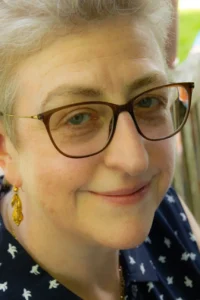
In real life, Cecily is a child of bibliophiles who has raised another.
She fell into technical communication, but has happily stayed for more than 25 years. She writes software user guides and help, but is increasingly involved with online content.
In virtual life, Cecily writes about books. In ten years, she’s published over 700 articles and discussed them with thousands. Her motives, audience, subjects, and style have evolved. She’s also written her first short story since school, which won the ISTC 2018 competition.
Her literary writing is very different from her work-related writing, but she’s increasingly conscious of symbiosis.
The Successful Fraud – Chris Hester
About the presentation
Have you ever avoided applying for a job because you didn’t feel qualified? Or submitted a project while sure the feedback would be horrible? Imposter syndrome is typically defined as feelings of fraud and self-doubt, and most of us have experienced it at some point.
In this session, we’ll look at types and examples of imposter syndrome, how it hinders and helps us, and techniques for managing it. By understanding how imposter syndrome works against us and learning how to make it work for us, we can deal with these feelings, be more productive, and feel confident in our
accomplishments.
About the presenter

Chris is the founder of Red Desk Studio, an STC Fellow, and a fair-weather cyclist. She has delivered successful content strategy, training, and knowledge management projects to a variety of clients, including those in the advertising, construction management, entertainment, and healthcare industries. She has been actively involved in the technical communication community as a volunteer and academic mentor, and has presented at events such as the STC Summit, the TCUK conference, and LavaCon.
The Build-a-Workshop Workshop – Chris Hester – No audio
Recording not available.
About the presentation
Have you ever been asked to develop a training class? Or asked to lead a requirements-gathering sessions or design meeting? Perhaps you considered submitting a proposal to conduct a workshop at a conference, but didn’t know where to start.
Attend this workshop and learn how to plan and run effective workshops. We’ll start with a discussion of the differences between workshops and training, characteristics of successful workshops, and strategies for activity and workshop development. Then, we will break into small groups to work through the steps of building a workshop.
You’ll leave this session with the experience of having developed a workshop, as well as a workbook, templates, and techniques you can use the next time a manager or client asks you to build a workshop.
About the presenter

Chris is the founder of Red Desk Studio, an STC Fellow, and a fair-weather cyclist. She has delivered successful content strategy, training, and knowledge management projects to a variety of clients, including those in the advertising, construction management, entertainment, and healthcare industries. She has been actively involved in the technical communication community as a volunteer and academic mentor, and has presented at events such as the STC Summit, the TCUK conference, and LavaCon.
Creating great customer experiences (Keynote) – Ciaran Dunne
About the presentation
As the technical support, content and training provider to Arm’s customer and developer base their Partner Enablement Group needs to be customer focused and deliver a high quality experience. In this presentation Ciaran Dunne will share his experiences of leading a modern technical support organisation and provide an overview of the activities and changes they have made over the last few years to ensure the team is 100% committed to supporting our customer base and how we have brought the wide range of services we provide together to build a cohesive and engaging customer experience.
About the presenter
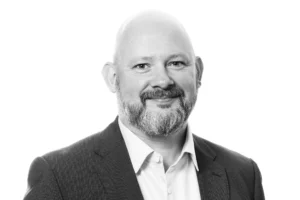
Ciaran Dunne started his career in the electronics and technology industry over 20 years ago having been drawn into the world of engineering from University. He’s held a number of different roles that have shaped his knowledge of the industry, spanning engineering, project management, and operations management. He freely admits that when he joined the Partner Enablement Group (PEG) at Arm he knew next to nothing about technical writing, he now claims to know ‘a little bit more’ having immersed himself in the discipline by getting to know the 70+ Information Developers in PEG, and leading them through a significant change programme. He took up the position of General Manager of PEG three years ago and it’s allowed him to fulfil his passion for creating outstanding customer experiences, and establishing a ‘people first’ culture in the organisation.
Away from work Ciaran spends as much time as he can with his family and slightly bonkers border terrier.
Four functions in the structure of technical documentation (and why they matter) – Daniele Procida
About the presentation
Despite the effort that gets put into it, not all technical documentation is successful. It’s often not very helpful for the users who need to rely on it, and it’s a burden and a chore for the authors who have to maintain it. Many of these issues can be traced back to problems in the documentation’s structure. There are four key functions in technical documentation. Structuring documentation according to its four distinct functions helps ensure that each of them is adequately served. It also makes it far easier to write and maintain. Using real-life examples I’ll draw out the key functions of documentation, and how they map onto different ways of writing it. Putting this into practice is simple when armed with some basic guidelines. The benefits are enormous, and available with a minimum of effort.
About the presenter
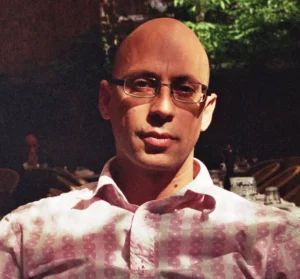
I am a Python/Django programmer with a particular interest in documentation. I live in Cardiff, Wales, and work at Divio, a Swiss software company. I have contributed to or guided the documentation of a number of different software projects. I’m very involved in international open-source software communities and their activities, especially in the growing pan-African Python programming movement.
Engineering high quality content through technical mentoring – David McCormick
About the presentation
In today’s fast paced technological and scientific world, the technical author is constantly challenged to provide high quality technical documentation within ever decreasing timescales. This presentation aims to show how using technical mentoring can lead to better improvements in both documentation quality and production time. It discusses the merits of technical mentoring and the relationship between acquiring subject knowledge and quality writing. It also covers the areas of improving and measuring technical product knowledge, confidence building, and learning styles. Finally, it gives some hints and tips on how you can develop and lead technical mentoring sessions.
About the presenter
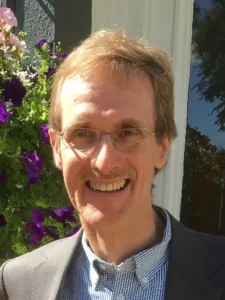
Currently a Staff Information Developer at Arm, David moved across into technical authoring from a 14- year background in microprocessor technical support and training.
When investigating a career change, I looked at what I seem to do a lot of which was writing. Whether it was drawing up plans for boarding a loft or writing instructions for re-adjusting my bicycle, it was all a form of technical communication. Since moving into my first authoring job at Arm, six years ago, I have helped new starters from all backgrounds improve and acquire technical knowledge through technical mentoring sessions.
The content alchemist: how to turn technical information into marketing gold (Workshop) – David McGuire
About the presentation
Here’s something marketers won’t tell you: the future belongs to great technical communicators. People don’t want to be sold to anymore. They want to feel in control of their choices, and to do their own research.
Suddenly, marketers have realised that a gift for explaining technical details clearly is a rare and valuable thing.
Since the advent of inbound marketing, B2B technology copywriter David McGuire has spent his days in the increasingly blurred space between technical content, and content marketing.
In this frank and practical workshop, David will reveal:
- his secret ingredients for turning technical detail into content marketing assets
- the importance of technical experts in producing authoritative B2B copy
- five questions that reveal whether a piece of content will work in marketing copy
About the presenter
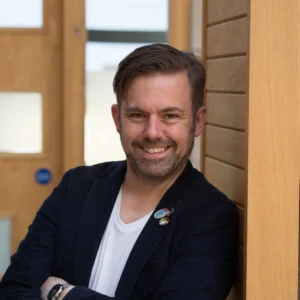
Creative Director of Business-to-Business copywriting agency Radix Communications, David makes his living turning dry, dusty and technical subjects into compelling marketing content for the world’s biggest brands.
He’s written white papers about GPS testing, ebooks about pensions, and websites about injection moulding. To some, his electronic controller adverts, air conditioning maintenance case studies and blog posts about data segmentation are the stuff of legend. (Well, almost.)
David is also the host of the UK’s national Copywriting Conference, and co-presents the “Good Copy, Bad Copy” podcast, as well as speaking on copy and content issues for software, technology and marketing groups.
Quiet Leadership – Why it works in proactive organisations – Derek Cooper
About the presentation
Leaders don’t have to be flamboyant, talkative, ‘do what I say’ types. Quiet leaders work with their teams, explaining the team’s objectives, and then engaging and enabling their team’s collective intelligence to develop solutions that fulfil those objectives, often in innovative and unexpected ways. Quiet leadership is about creating a team of motivated, valued and trusted people who are capable of becoming leaders in their own right, rather than forming a group of followers who are fearful of taking initiatives or making mistakes. I invite you to take another look at leadership and to recognise the subtle power of quiet.
About the presenter

Derek is an ISTC Fellow who has worked in technical communication since 1992. Although his background is in marine electronics, his experience includes writing documentation for subjects as diverse as electron and optical microscopy, marine and seismic survey, environmental monitoring, financial services, and veterinary science. Derek has recently taken early retirement from Arm Technical Communications in Cambridge, where for four amazing years he quietly and effectively led a team of extremely talented Information Developers. He has now returned to running his own life as a freelance technical author, mentor, and STEM Ambassador. He is, incidentally, also the Chairman of TCUK.
A STEM Sell – Derek Cooper
About the presentation
Let me sell the case for technical communicators to become involved with STEM – the Science, Technology, Engineering, and Mathematics subjects taught in schools and colleges. We live in a world that is growing increasingly dependent on mastery of these subjects, and our economies depend on maintaining progress in these areas. I am a STEM Ambassador, and have been working with schools to promote the STEM subjects so that students might consider studying them at degree level and engaging in a related career that is exciting, rewarding, and worthwhile. This presentation describes some of the STEM projects I’ve worked on, and how the students (and teachers) responded and reacted.
About the presenter

Derek is an ISTC Fellow who has worked in technical communication since 1992. Although his background is in marine electronics, his experience includes writing documentation for subjects as diverse as electron and optical microscopy, marine and seismic survey, environmental monitoring, financial services, and veterinary science. Derek has recently taken early retirement from Arm Technical Communications in Cambridge, where for four amazing years he quietly and effectively led a team of extremely talented Information Developers. He has now returned to running his own life as a freelance technical author, mentor, and STEM Ambassador. He is, incidentally, also the Chairman of TCUK.
What’s the deal with structured content? – Ellis Pratt
About the presentation
Content can often seem like jelly – messy and hard to manage. In this presentation, we’ll look at whether you can reduce this messiness through structured writing. In this overview of the topic, we’ll explore what is structured writing, the origins of structured writing standards, what it promises to give its adopters, the different standards today, and the challenges that come with using structured writing.
About the presenter

Ellis Pratt, is a Consulting Technical Communicator and Director at Cherryleaf, a technical writing services company. He has been working in technical communication since the early 1990s. He has a degree in Business Studies. He is also:
- Member of the Institute of Scientific and Technical Communicators
- Associate of the Institution of Engineering and Technology
- An ISTC Management Council member
In 2017, he was listed as one of the top 25 Content Experience influencers in the world. Ellis was a contributor to two books: Current Practices and Trends in Technical Communication, and The Language of Technical Communication.
Polymathing 365 – Eran (Yuri) Kolber
About the presentation
Many of us are aware of the benefits (and costs) associated with migrating documentation to the cloud. This session looks at how cloud tools, which are often disregarded by Documentation and IT departments, can dramatically improve Documentation Team productivity, cohesion, and value delivery. We will look at how small and large documentation teams can use Office 365 workloads to better cope with a world where technology, business, and security risks are changing rapidly.
We will examine less-frequently used capabilities, such as SharePoint Online, OneNote, Teams, Forms, Delve, Sway, and Flow – to evaluate what practical benefit can be gained from each.
About the presenter
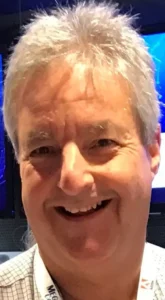
Yuri Kolber is Director of Training and Professional Services for OnTarget Communications. As part of his duties, he assists customers world-wide with Training Needs Analysis, Training Delivery, Content Creation and Management, Migration Project Planning and Execution, Knowledge Transfers, and extracting the maximum business value from technology, in the age of the Cloud and Mobility. Yuri served as a Microsoft Platform Evangelist and Regional Director for many years, and has assisted global consulting organizations, such as Holden International, to plan and roll-out content management and training programs for their customers. He also leads OnTarget’s Internship program, which helps entrants into the industry obtain the required experience.
Using Text, Images and Video in Technical Communication – Ferry Vermeulen
About the presentation
The Company you may want to work for is trying to give its audience the best product experience in the world. As a technical writer, you want to contribute to that effort by creating awesome content for that product. There are many great tools out there that can help you to achieve this. These tools include text editors, and graphic and video tools. But how do you decide when to use text, images, or video for your product assistance? Join this presentation to help guide you make the best choices.
About the presenter
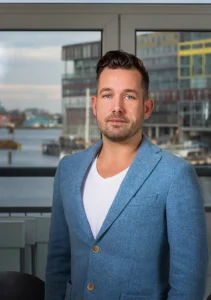
Ferry Vermeulen is director at INSTRKTIV. INSTRKTIV helps brands to create compliant and user-friendly user instructions. Ferry has travelled to over 50 countries. It is his aim to visit all countries, meanwhile sorting out how product safety regulation is organized across the world. Also read his User Manual Template Case Study, about how to create compliant user manuals for the EU.
How to write in Plain Language (Workshop) – Frances Gordon – Description only
About the presentation
This fun and practical workshop will give you a solid grounding in plain language theory and practice. You’ll learn what plain language is (compared to other types of controlled and restricted languages) and how to evaluate whether content is written in plain language.
You’ll do practical exercises that will show you a tried-and-tested process for writing in plain language, right from initial planning through to checking your work at the end.
The purpose of the workshop is not only to show you techniques that you can use right away, but also to give you a process that you’ll find useful to share within your organisation. It’ll also help you to promote plain language at your organisation, even among the most sceptical colleagues. The Simplified plain language framework has been used to train over 8,000 professionals in the UK, Portugal, France, South Africa, Nigeria and Kenya.
About the presenter
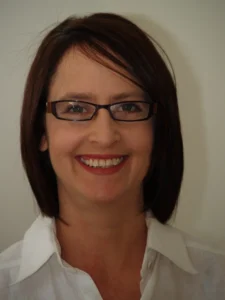
Frances’ career started in rural South Africa where she wrote and designed instructional materials for low literacy adults. During her 20-year career, she has held tenures at Datatec/Logical as communications strategist, at London-based Siegel & Gale as Head of Content (EMEA), and at Barclaycard as VP of Content
Strategy (UK).
In 2004, Frances co-founded Simplified, a plain-language training and consultancy firm. Frances sat on the board of international plain language organisation, PLAIN. She was part of the advisory committee of IC Clear, an EU-funded initiative that developed a post-graduate course in clear communication. In 2017, Simplified licensed its plain language business writing course to France’s University of Strasbourg for its online master’s programme in Technical Communication and Localisation (TCLoc).
Call to Action! How tech writers can improve UX (workshop) – Holli Hamilton – No audio
Recording not available.
About the presentation
As tech writers, we’re often one of the first non-engineers to interact with a new system. We have to find the ins and outs of it, to document those trials for our customers. When those ins and outs become a tangled web of check boxes and pop-ups, then a tech writer has a choice: we can document around the issue or we can put on our designer hats and submit an improvement proposal.
In this workshop, Holli will provide exercises and examples that show how a novice (like her) at User Experience can provide feedback to help improve the customer’s journey and their impression of your company’s products. Delegates coming to this workshop will require a laptop connected to the internet to interact with example sites. The content surrounds software and websites as products but the theories can hopefully be applied to technical writers working in other industries.
About the presenter
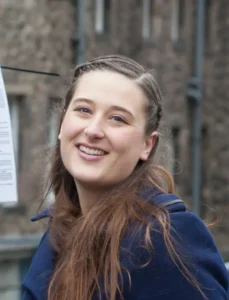
Holli is currently the sole technical writer for Corero Network Security. She has been a technical writer for over 6 years and came into the field from a Fine Art background. While that may seem odd at first glance, she believes that they share the core values of communication, information absorption, and understanding your audience. She loves nothing more than the unity of these disciplines in a perfectly functional diagram.
Outside of work, she is currently renovating her first home and enjoys frustrating her husband with the amount of Pinterest ideas you can cram into a single room.
Working with third-party content. What are the challenges? – Jennifer O Neill – No audio
Recording not available.
About the presentation
Outsourcing is big business and growing. Companies are increasingly outsourcing product development and services to reduce costs and focus on their core business. But when a company outsources the development and manufacturing of a product to another company, what happens to the documentation? How do you ensure that content quality and branding standards are maintained?
This presentation will discuss the impact of product outsourcing on technical communication. It will discuss the challenges technical writers can face when working with content developed by another company. We’ll cover content quality, legal issues, localization, tools, terminology management, as well as working with different companies, in particular Chinese companies.
About the presenter
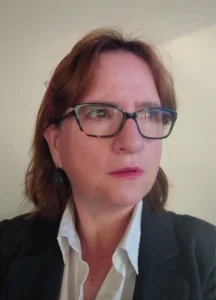
Jennifer works as a technical writer and localization specialist in Brussels, Belgium, for UTC Fire & Security. She is responsible for producing the documentation for video security products. She has over 20 years’ experience in the profession, mainly in the manufacturing sector. She has worked with many OEM (Original Equipment Manufacturer) companies around the world to customize the documentation and firmware of outsourced products for a global market.
No Final Frontier: Unleashing our inner Tech Comms polymath – John Kearney – Description only
About the presentation
At TCUK 2015, I gave a presentation about the “Tech Comms tool box”: the set of skills we each bring from our diverse backgrounds to our professional field. It’s this array of skills that allows us to excel as polymaths, and to move beyond the comfort zone of the traditional Technical Author role.
In this presentation, I’ll be building on this idea, and sharing my experience of using my Tech Comms skills in new areas. I’ll be referring to specific examples of my work as a consultant, in scenarios where no author has ever set foot, making a difference to all stages of the software development lifecycle, from scoping through to delivery.
I also want to continue the discussion about some of the challenges we face as a profession; for example, the perception that we’re “old fashioned”, and how other job titles and disciplines seem to be claiming our territory. I believe that we should be supporting each other in efforts to bring our professional profile up to date. I hope to conclude with the beginnings of a discussion on what we as a community inside and outside of ISTC can do together to make these changes.
About the presenter
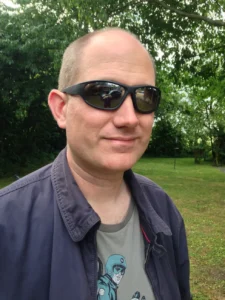
John became a Technical Author when funding for English Literature postgraduate work dried up. 21 years later, he’s still in the same career, which probably means it was the right decision.
He’s worked for many companies across many sectors, both as a sole author and in a team environment, and is currently freelancing. John discovered TCUK in 2009, and has attended all but one of them since. When he’s not doing Tech Comms he can be found reading, shooting with a bow or a camera, volunteering at a Birds of Prey centre, or helping to run Live-Action Roleplaying events.
He can be found on Twitter at @jk1440, and that’s where he takes notes during conferences. Beware: #tcuk18 tweets are coming.
He is not as tall as some people think.
Jack-of-all Trades – John Lee – Description only
About the presentation
In a long and illustrious working life there are many reasons, choices and options for getting to your destination, which I shall call the here-and-now. This is often referred to as a career path. Some are early on this path to the here-and-now, with technical authoring their first career choice. Others, are well down the path, and may have had a number of careers on the way.
This is the tale of one such journey, from schoolboy to senior technical author. Not so much a career path, more of a ramble through life. But at key points on that journey, decisions were made or events happened that influenced the direction and progress of that journey. These so-called crossroads have led me here. And along the way I have gathered a variety of skills and experiences that have moulded me into the individual standing in front of you.
They say “a little knowledge is a dangerous thing”; I have lots and lots of clusters of “a little knowledge”, so how dangerous am I?
About the presenter
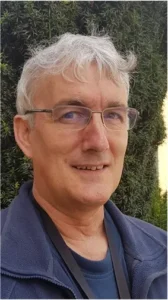
John gained his electronics training in the British Army, rising from apprentice technician through to system engineer in a 23-year career. He used his technical writing experiences within the Army to start a second career as a Technical Author almost 20 years ago.
He spent 9 years at Motorola, before branching out as a contractor. John has worked on a variety of projects, from microelectronics, educational software, military hardware and the financial sector. He currently works for ARM as a permanent colleague in a Staff Information Developer role.
Intelligent Information – iiRDS – a new information exchange standard of Industry 4.0 and Internet of Things – Jörg Plörger
About the presentation
The working group “Information 4.0” of German tekom worked for two years to elaborate concepts and standards for technical communication in the context of “Internet of things” or “Industry 4.0”. The key working result has been the creation of the open source standard iiRDS – intelligent information request and delivery standard – which is currently in evaluation to become part of a German industry standard. In this talk the audience will first get an introduction about purpose, concept and potential benefits of iiRDS. The talk will end with a showcase how robots and content delivery systems for technical communication interact thanks to iiRDS.
About the presenter
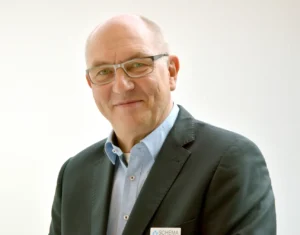
Jörg Plöger studied mathematics. He has worked in technical communication in a wide variety of industries for more than 20 years. As consultant and trainer, he has travelled around Europe many times. Since 2000, Jörg Plöger has been working in the software industry (Translation Memory Systems (TMS) and Content Management Systems (CMS)). He is sales representative of SCHEMA and based in Bremen, Northern Germany.
Using ST4: Easy, Rapid, Success and Triumph! A SCHEMA case study – Jörg Plöger and Phil Lane
About the presentation
To be competitive in the growing global marketplace Triumph initiated in 2013 this project, finding a more cost-efficient way to provide Triumph’s 750 dealers with a faster and more user-friendly service. We will give insight in evaluating and implementing a Component Content Management System (CCMS), best practice in using it and the benefits for Triumph’s motorbike owners, technical authors and dealers’ bike garage.
- Greater Usability and Dramatic Reduction in Costs
- Rapid Implementation
- Delivering Results
- Looking to the Future
Greater Usability and Dramatic Reduction in Costs
In late 2014 Triumph Motorcycles selected the XML based CCMS SCHEMA ST4. The company had several critical objectives it wanted to achieve including:
- Finding a more cost-efficient way to publish and update service manuals and owner handbooks
- Providing Triumph’s 750 dealers with a faster and more user-friendly service
- Ensuring a rapidly expanding / developing product range was efficiently documented / presented
- Making sure Triumph was fully compliant with upcoming EU legislation
Rapid Implementation
Despite the challenge of producing extremely detailed technical information for 24 models in 10 languages and with multiple market-specific variants, it took only two months for the team at Triumph, working in partnership with Imprimatur’s project management, to produce their first document using SCHEMA ST4.
Delivering Results
Since the introduction of SCHEMA ST4, Triumph’s Technical Publications team has secured a series of major financial and wider business benefits.
- Savings of up to 70 % achieved on individual projects
- About £1million cost reduction in 1.5 years
- Savings made to date have enabled the addition on 5 new languages
- Key publications being made available online and with more frequent updates
- Online system allows dealers faster and easier access to key information (… VIN …)
Looking to the Future
The advanced diagnostic tools used by dealers to service and repair is another area where SCHEMA ST4 can support Triumph with even more cost-effective and accurate online documentation.
About the presenters

Jörg Plöger studied mathematics. He has worked in technical communication in a wide variety of industries for more than 20 years. As consultant and trainer, he has travelled around Europe many times. Since 2000, Jörg Plöger has been working in the software industry (Translation Memory Systems (TMS) and Content Management Systems (CMS)). He is sales representative of SCHEMA and based in Bremen, Northern Germany.
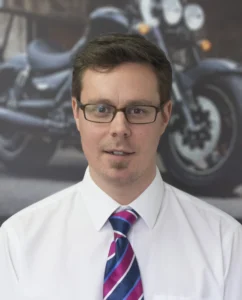
Phil Lane is a Content Strategy Specialist at Imprimatur Limited. He combines his experience in XML with his understanding of documentation processes to develop strategies and implementation plans that deliver improved documentation efficiency. Phil particularly relishes projects in the automotive industry, where finding solutions is often challenging because of the need for simultaneously-available multi-lingual content, the pressures of a strict 12-month product cycle, and the tightly-constrained in-vehicle operating environment. Phil holds a degree in Engineering and has a strong computer systems background reaching back over 14 years.
Increasing User Assistance Visibility – Karla Reis
About the presentation
This presentation is about a project that aimed at making it easier for customers to consume our content; and thus boosting technical writers visibility and standing with internal stakeholders. We wanted a data-driven approach rather than working on assumptions, so we started with customer research, and then piloted our findings.
The results of this project were so impressive that they transformed our stakeholders into advocates for our cause, and who are now willing to voice their belief that good user assistance is beneficial not only to users but to the company as a whole.
About the presenter
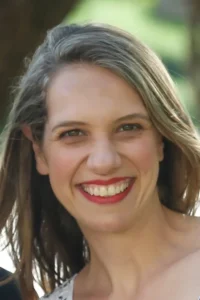
I am a technical writer who lives and works in Brazil. For the last seven years, I have been developing user assistance for Brazil-localized software at SAP. I am passionate about user experience and about using social media to get closer to users.
I graduated in Languages Portuguese/English and worked as a translator for five years, before joining SAP.
Mind the Gap: The Client Need vs. the Client Request (Workshop) – Marilyn Woelk
About the presentation
Have you ever had a client or customer ask for a certain set of requirements, but be unhappy when you delivered what they asked for? Have you ever been a manager or client that assigned a project that when completed didn’t accomplish the business results you hoped for?
In this workshop, we will:
- review how projects get planned and project requirements get set,
- look at a complete project process from the identification of a business need (at the origination of a project), to the delivery of the corresponding solution,
- identify key places within a project timeline where project information gaps can occur, and
- resolve these gaps so that we don’t “miss a step” in the process and can provide true seamless solutions for our customers.
Come to this workshop with a “problem project” in mind. We will discuss it.
About the presenter
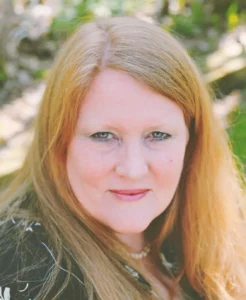
Marilyn is the owner and president of Wingz Creative and Technical Group, Inc. She excels consulting, process improvement, and project management for techcomm marketing, training, and documentation projects. Some of Marilyn’s clients have included Xerox Corporation, Johnson & Johnson, Fujifilm USA, and the US Postal Service. Marilyn is a frequent presenter at technical conferences on subjects related to project process, ROI, personal branding, job growth, and contract development. She is an award-winning writer, and was recognized by MindTouch as one of the Top 200 Content Experience Strategists in 2017. Marilyn was the STC Summit Program Chair in 2018.
Branding Yourself as Indispensable – Marilyn Woelk
About the presentation
The business horizon is constantly changing. It is getting harder for technical communicators to find and keep jobs, and to be recognized for the skills they have. Technical writing is often seen as a commodity and cost centre rather than as a business profit centre.
There are actions you can take to establish your personal brand in order to obtain or retain a job, or advance in your career.
Marilyn will discuss good and bad personal brands she has encountered as a business owner and will show you how to brand yourself effectively.
About the presenter

Marilyn is the owner and president of Wingz Creative and Technical Group, Inc. She excels consulting, process improvement, and project management for techcomm marketing, training, and documentation projects. Some of Marilyn’s clients have included Xerox Corporation, Johnson & Johnson, Fujifilm USA, and the US Postal Service. Marilyn is a frequent presenter at technical conferences on subjects related to project process, ROI, personal branding, job growth, and contract development. She is an award-winning writer, and was recognized by MindTouch as one of the Top 200 Content Experience Strategists in 2017. Marilyn was the STC Summit Program Chair in 2018.
Effective and engaging – The key to making better videos – Matt Pierce
No file accompany this recording.
About the presentation
Video is taking on an important role in technical communication and is becoming a preferred medium for instructions, documentation, and communication. How can we ensure that our informational and instructional content videos will meet our goals, needs, and the expectations of our viewers? TechSmith conducted studies in the US, UK, and Germany with video viewers to shed light on questions like the ideal length of video, the importance of information placement and making content findable. We’ll explore the results from a creators’ point of view, translating data-driven insights into video design principles taking the viewers’ behaviours and expectations into account.
About the presenter
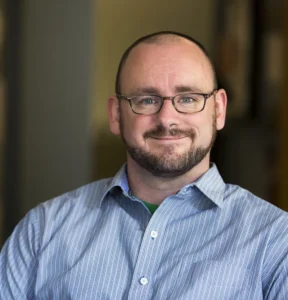
Matthew Pierce, Learning & Video Ambassador from TechSmith Corporation, has created videos for learning and marketing for over a decade. Matthew has been a speaker at multiple learning and development focused and marketing conferences. He is a regular contributor to Training Magazine, and has been author for Content Marketing Institute, ReelSEO, and various other training publications. He currently leads TechSmith’s customer education initiative around video.
To make text as clear as possible, use Simplified Technical English – Mike Unwalla – No audio
Recording not available.
About the presentation
Human failures cause accidents. A typical cause of human failure is unclear instructions. Simplified Technical English (STE) makes text as clear as possible. English can be difficult for people who read English as a second language. Phrasal verbs (multi-word verbs) such as ‘carry out’ and ‘put up with’ are a special problem. STE prevents this problem.
Frequently, instructions must be in the language of the readers. STE decreases the cost of translation.
The implementation of STE is not easy. Possibly, technical communicators will resist the use of STE. Terminology management and help from subject-matter experts are necessary.
About the presenter
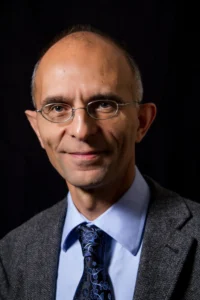
Mike Unwalla is a freelance technical communicator who trades as TechScribe (www.techscribe.co.uk). He helps organizations to supply clear and effective user manuals to their customers. Mike uses controlled language to make his documents as clear as possible. He develops and sells a term checker for the controlled language ASD-STE100.
Information is a gift – Owen Flatau
No files accompany this recording.
About the presentation
Let’s characterize the relationship with our audiences in terms of giving and receiving, and put ourselves in the receiver’s shoes. What do we like? Ideally, a gift should be small, because we like things portable and we don’t want to clutter our homes. It should also be valuable to us, and remind us of the giver. Now, putting ourselves in the giver’s shoes; we cherish our relationship with this person, so we should find or make the best gift possible (within budget). How can we do this? We may have to get creative.
About the presenter
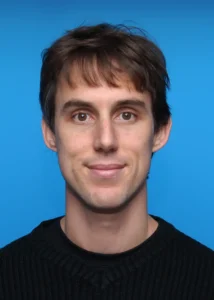
Owen is a “typical” technical communicator; he started as an electrical engineer in South Africa and then moved into writing and illustrating for an electronics company in 2001. He moved to the UK in 2002 and has since worked for small and large organizations, in solo, team, and management roles, gaining communications experience from a wide spectrum of technologies. Nowadays, he works with Cisco Systems, designing and delivering information about network-based video, chat, and meeting tools.
I have to create mobile apps too? – Phil Lane
About the presentation
As technical communicators, one of the many varied skills we require is creating output from our carefully-crafted content. Until now, this meant creating PDF outputs, help files, or HTML packages. Now a new challenger enters the arena – mobile apps.
Compared to traditional output formats, creating a mobile app from your content is a little more complicated. This talk will show you how, using the Apache Cordova Open Source framework, you can RELEASE YOUR CONTENT by creating mobile apps directly from your technical documentation.
About the presenter

Phil Lane is a Content Strategy Specialist at Imprimatur Limited. He combines his experience in XML with his understanding of documentation processes to develop strategies and implementation plans that deliver improved documentation efficiency. Phil particularly relishes projects in the automotive industry, where finding solutions is often challenging because of the need for simultaneously-available multi-lingual content, the pressures of a strict 12-month product cycle, and the tightly-constrained in-vehicle operating environment. Phil holds a degree in Engineering and has a strong computer systems background reaching back over 14 years.
It’s Called Technical Communication for a Reason – Rhyne Armstrong
About the presentation
You are at the point where creating structured content is second nature. You can design a crisp clean UI and conduct textbook usability sessions without breaking a sweat. You can even design a chatbot so users never know they are not typing with a human. Are those skills and that knowledge enough to get you to the next level in your career? Is how to create technical communication more important than why? Is our pursuit of perfectly authored content hurting our audience?
We are technical communicators for a reason, and it is time for us to regain our focus on the technology we support. In this session, we will discuss the importance of technical knowledge, find out how to gain technical knowledge and skills without going back to school, and learn tips you can use to land your next job, without worrying about moving into a new industry.
About the presenter
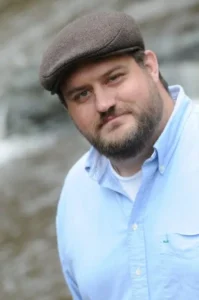
Rhyne Armstrong is the Stealthwatch Documentation Manager for Cisco System, inc. in the Security Business Unit, and an Associate Fellow of the Society for Technical Communication. In his 25 years in the technical communication world, Rhyne has worked as a writer, strategist, and manager, and has held the job titles of Director of Communications, User Experience Manager, and Director of Evangelism. Today, he oversees the creation and delivery of product documentation, and leads a group of engineers tasked with conducting customer site visits.
Rhyne enjoys public speaking, and has presented to conferences and organizations in the United States, Central America, and Europe. He enjoys meeting new people, and helping others get plugged in to the global technical communication professional network. He is a soccer (football) fanatic and is a fan of Arsenal F.C. in the English Premier League, and a founding member of the Atlanta United Football Club in Major League Soccer.
Rhyne lives in Atlanta, Georgia, and works hard to juggle his day job with his other role as a soccer/ ballet/gymnastics/robotics dad. He has four human kids, and five furred ones.
Git(Hub) for Technical Writers From Zero to Published Docs (Workshop) – Robert Kratky – No audio
Recording not available.
About the presentation
Git, repositories, commits, and branches – whether these are new terms for you, or you already know your way around GitHub – come and learn how to use this platform, and what is this approach towards technical authoring.
In this workshop, we will start with an empty folder and end up with a simple system for validating our docs and an automated publishing process to get our edits to a static website. You will learn about Git, version control principles, and basics of continuous integration and delivery.
About the presenter

Robert Kratky is a Principal Technical Writer at Red Hat. He has published dozens of technical and outreach articles in both print and online media, and presented about documentation topics. At Red Hat, Robert specializes on developer docs and improvement of user experience with documentation.
Developing User-centred Content in an Agile World – Sarah Thomson
About the presentation
You might be an expert communicator, but it’s users who have all the answers. Working on GOV.UK services, every word needs to earn its place on the screen and make sense to users. If the language is meaningless, or means something else, people won’t be able to complete tasks and money will be wasted.
This session shares case studies from GOV.UK services. It explains how working in multi-disciplinary teams in an agile environment can help you to focus on the language of users; in turn, helping you to iterate the words you write as new user needs come to light.
About the presenter
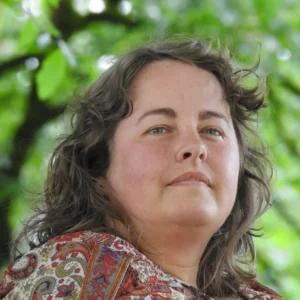
Sarah is a Lead Content Designer on GOV.UK services, where she works in multidisciplinary teams to serve citizens and organisations across England and Wales.
Before working in content design, Sarah worked for more than 10 years in contentrelated roles across the public, private and third sectors. After a successful career improving user experience through language and content design, Sarah now advises businesses on how to improve their services and mentors the next generation of content designers.
You can often find Sarah on Dartmoor, exploring its tors, or on the coast, sitting on rocks fishing for mackerel for dinner.
A Casual Contributor’s Learning Aid for DITA Structuring – Shirley McDonnell
About the presentation
How do you help a busy person maintain the know-how required to perform a short but complex task occasionally – a task vastly different from their day-to-day work?
This question led the technical communications team at Technically Write IT (TWi) to develop a visual aid for SMEs who spend a few days every two to three months updating training material following a software release. We share with you the reference tool that the team developed, which provides casual contributors or novice writers with a systematic method of maintaining a DITA structure when updating or adding content.
About the presenter
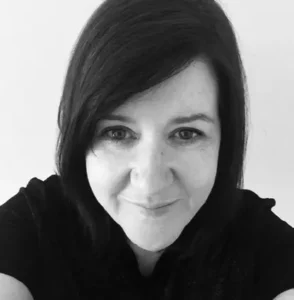
Shirley McDonnell has worked in the technical communication industry for the past twelve years. She has an MSc in software design and development and a Graduate Certificate in technical writing. Shirley works as a senior information developer with Technically Write IT (TWi), an Irish company who provides outsourced technical writing, editing, and documentation solutions.
Shirley has recently worked on an online repository describing the business and scientific processes used by a division of a leading multinational player in the biopharmaceutical industry. She is passionate about software usability and the responsibility of technical writers to develop comprehensive, concise, user-friendly content.
From Docs to Bots: Find Your Passion & Get a Career Makeover (Keynote) – Toni Ressaire
No files accompany this recording.
About the presentation
Career envy. Have you ever experienced it? You think about your dream job and wonder why you didn’t get that opportunity.
But maybe your dream job wouldn’t make you happy. Perhaps, it wouldn’t be the right fit for you.
Stop thinking about yourself in terms of your job, and start thinking about your skills and your passions. You’ll find your true dream job in these two elements.
Toni Ressaire started out as a broadcast journalist, founded a lifestyles magazine, published books, and then became a technical writer. Now, she’s learning about artificial intelligence and designing chatbots and virtual assistants. What do all of these jobs have in common? Toni will share her path from docs to bots and help you discover your path to the career you really want.
About the presenter
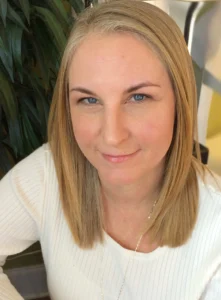
Toni Ressaire is a technical communicator, trainer and consultant. She’s worked with companies in the software development industry on five continents. Toni has some rather non-traditional uses for traditional tech comm tools. She’s currently working with a team developing innovative tools and methodologies to answer the need for information applied to existing and new technologies (VR, AI, chatbots, etc.).
Toni is a founding member of the Information 4.0 Consortium, Tech Writers Without Borders and she’s an Adobe Partner. She is president of the US-based company Route 11 Publications and Info4Design, an information technology company based in France. She is currently living in Southern Italy.
Design and test a chatbot conversation (Workshop) – Toni Ressaire
About the presentation
In this interactive workshop, you’ll design a customer journey, write user scenarios, and design a chatbot conversation. You’ll then have the opportunity to test your conversation in a simulator.
To make this session more interesting, I ask you to prepare by bringing an idea for a real non-profit organization. You’ll work with a group to develop a chatbot conversation. We will have a competition, and the winner will have the opportunity to turn the conversation into a published chatbot for the organization. (The organization must have an existing website.)
We’ll also talk about various chatbot platforms and how you can publish your own chatbot.
For this workshop you will need pen and paper or mind-mapping software and a computer with Internet connection. We’ll provide Internet access.
No lurkers! Come to this workshop prepared to participate!
About the presenter

Toni Ressaire is a technical communicator, trainer and consultant. She’s worked with companies in the software development industry on five continents. Toni has some rather non-traditional uses for traditional tech comm tools. She’s currently working with a team developing innovative tools and methodologies to answer the need for information applied to existing and new technologies (VR, AI, chatbots, etc.).
Toni is a founding member of the Information 4.0 Consortium, Tech Writers Without Borders and she’s an Adobe Partner. She is president of the US-based company Route 11 Publications and Info4Design, an information technology company based in France. She is currently living in Southern Italy.
TCUK 2017
Recordings are not available. Slides are provided in PDF format where available.
There must be a better way – Alison Peck
About the presentation
When the authoring tools and processes are making keeping up with product changes nigh on impossible, something has to change.
- Client A uses Word to produce PDF manuals … but their applications are web-based, and they now sometimes update three or four products simultaneously.
- Client B uses FrameMaker and RoboHelp to produce PDF manuals and online help, and there is a lot of duplication.
I’ll take you through the steps I followed when learning to use and evaluating MadCap Flare and moving to topic-based authoring, the opportunities and difficulties I faced, all the way to the decisions my clients made.
About the presenter

I’ve been a technical author for over 20 years, and have managed Clearly Stated since November 2004. I love my job – from starting to investigate a new application, through crafting the materials, to delivery of the finished products.
Most of my clients are software developers – about the only thing they have in common. They range from multi-national organisations to small companies with fewer than 50 employees, and they operate in sectors as diverse as healthcare, logistics and secure messaging. I produce everything from training materials to reference documents, in anything from online interactive formats to more traditional PDFs.
Topics for Teenagers – Alison Turner
About the presentation
This session will offer tips on constructing topics, based on the thesis that you will get this right if you imagine you are writing for a teenager.
Like my teenage sons, the users of my help and manuals are not fans of the beautifully constructed training course or the well-structured novel. Many never learned to use an index. They want ‘concise and speedy’ help, ideally without too much to read.
I will present examples of my work to illustrate the ways in which I have altered my style to deliver information to suit my users – taking a topic-based approach.
About the presenter

Alison Turner CEng CPhys MInstP MISTC trained at St John’s College Cambridge and Universität Heidelberg in Physics, then took a postgraduate certificate in Engineering Management.
Alison worked in technical consultancy before becoming a Project Manager for Racal Avionics. She led project management process initiatives and delivered business analysis of the project portfolio at Thales Aerospace UK.
For the last seven years Alison Turner has been the sole Technical Author and IMS Manager at Vocality, a telecommunications equipment manufacturer based in Surrey, which recently became part of Cubic Mission Solutions. She is responsible for both product and process documents.
Automatic Documentation for Software – Andrew McFarland Campbell – Description only
About the presentation
Many modern software products are complex, having anything from dozens to thousands of configuration parameters. This is particularly true for distributed systems or cloud-based products. Agile environments can result in many subtly different product versions released in quick succession. Traditional documentation methods have trouble keeping up.
It is important to automate as much of the documentation process as possible, including generating documentation directly from source code, moving the technical writer from being a writer to being an editor and developer.
The session covers case studies and scenarios, including code samples, and will conclude with practical considerations, such as management buy-in.
About the presenter

I am a technical writer with more than a decade’s experience of automating documentation production for complex software products, particularly in the financial and telecommunications industries. As well as working with standard documentation tools like DocBook and DITA I am experienced with XSLT and various programming languages.
It’s in the Game – The art of Creating a Helpful Video Game Guide – Andrew Mills
About the presentation
“What’s that? You can be paid to play, and write about, video games full-time? Well, sign me right up!” Whoooa! Easy tiger. There’s a substantial amount more to writing a, helpful, guide to the latest and greatest video games than just having a blast and knocking up a few words.
In fact, it’s a lot of very demanding work. As someone who has produced more than 140 game guides over a 14-year period, I thought I’d share how my workflow evolved from creating simple word documents, to incorporating high-definition videos and narrative audio in eBooks and mobile apps.
About the presenter

In March 1999, my first video game guide was published in the pages of N64 Magazine. In 2003, I began creating numerous text and video tutorials for the Metroid video game series and this experience led to me becoming the ‘go-to’ video game guide author for most of Future Publishing – Europe’s largest magazine publisher.
I continued to create and self-publish video game guides for digital platforms, such as iOS applications and e-books, before moving into the role of Technical Author in the business software sector in 2015. Today I’m growing professionally as a Senior Information Developer for ARM in Cambridge.
Creating Integrated API Documentation Experiences for Users – Chris Smith & Rob Woodgate
About the presentation
There’s rarely the equivalent of a content writer/UI/UX designer creating an API structure and names. This leads to a disconnect between formal specification of an API and the supplementary authored documentation, which usually exist as separate deliverables.
In our presentation we will:Highlight some of the common pitfalls that API designers and technical writers fall into;Describe some approaches and techniques that will help mitigate these pitfalls;Demonstrate how content overlays can be used to narrow the disconnect between the API specification and the authored documentation, producing a single consumable.
About the presenters
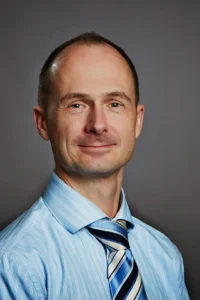
Chris is the chief architect at Companies House. He is mainly responsible for the strategy and architecture of their web and API services, in particular the https://beta.companieshouse.gov.uk and REST API services, which satisfy tens of millions of free data requests a day.
Chris is a writer who is passionate about effective documentation, especially for API design and specification, and this led him to create DapperDox, a documentation tool for seamlessly combining API specifications and authored documentation into a rich browsable experience. You can find him on Twitter @zxchris.
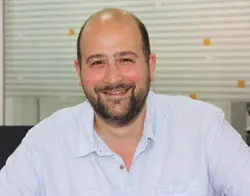
Rob is a Documentation and Knowledge Management consultant who helps companies get the most out of their documentation. He works as a writer, trainer, scrum master and agile coach and is currently helping Companies House roll out SharePoint.
Rob blogs at www.agiledocumentation.co.uk on various techcomm subjects, and spends what little other spare time he has tweeting things about documentation from @agiledoc.
The Future of Mobile Learning – Danielle M. Villegas
About the presentation
This presentation will tie together how early efforts to create and promote literacy are tied to e-learning and how technology helped the evolution of that process, explain the basic concepts behind m-learning practices and instructional design, and provide evidence of efforts now being done to revise how m-learning is conducted on smart devices through current thought in the m-learning industry. While the main concepts here are geared towards instructional designers or help authors, anyone writing help documentation, or those wanting to write for mobile can learn the principles that can form the mindset needed to write mobile content.
About the presenter
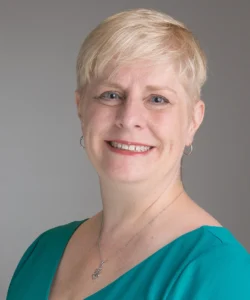
Danielle M. Villegas is a technical communicator who has recently started her own consultancy, Dair Communications. She is best known in the technical communications world for her blog, TechCommGeekMom.com, which has flourished since its debut in 2012. She has presented webinars and seminars for Adobe, the Society for Technical Communication (STC), the IEEE ProComm, and at Drexel University’s eLearning Conference, as well as written articles for the STC Intercom, STC Notebook, the Content Rules blog, the InSyncTraining blog, and The Content Wrangler. You can learn more about Danielle on LinkedIn, on Twitter at @techcommgeekmom, through her blog, or daircomm.com.
The fun side of technical communication – Derek Cooper & Sammi Lauesen – Description only
About the presentation
Derek and Sammi, the presenters of this workshop, have a passion and excitement for technical communication and bring diverse and complementary skills and experiences to it. They want to share some of that excitement with you in this light-hearted workshop in which you’ll have a chance to ‘play’ with some mystery objects, and to write about them as if they were new products from a start-up company.
If you have one, please bring a laptop computer with MS Word installed, which you’ll use to develop a template and to write user information. You’ll also be critiquing each others’ work, and some samples we supply, offering assessments and making changes for a positive user experience (UX).
About the presenters

Derek Cooper is a Fellow of the ISTC and has worked in technical communications since 1992. Although his background is in marine electronic engineering, he has produced user documentation in a range of different forms for subjects as diverse as electron and optical microscopy, marine and seismic survey, environmental monitoring, government and financial services, and veterinary science. He has worked with many UK employers, and has run his own successful business as a freelance and contract technical author. He now works for ARM in Cambridge, where he applies his obsession with quality to improve the user experience for ARM’s customers.

Sammi Lauesen is an Information Developer at ARM. Her background is in software, and she has a strong interest in User Experience (UX).
Documentation as self-service support – Ellis Pratt
About the presentation
In this presentation, we’ll look at the different approaches to self-service support, and the role of the technical communicator within that environment.
We’ll explore:
If an organisation wants to encourage self-service support, where does end-user documentation fit in?
Is it realistic to expect users to write any of the content?
Does Software as a Service change the type of support an organisation needs to provide?
About the presenter

Ellis Pratt is a Director and Help Strategist at Cherryleaf, a technical writing services and training company based near London, in the United Kingdom. He has over 20 years of experience working in the field of documentation, has a BA in Business Studies, and is an Associate of the Institution of Engineering and Technology. Ellis is also on the management council for the Institute of Scientific and Technical Communicators (ISTC).
To Video, Or Not To Be – That is the Question – Eran (Yuri) Kolber
About the presentation
Technical Authors are being requested by clients (both internal and external) for video segments to be incorporated into online documentation. This session will help you get started if the medium of Video is new to you, or if you are looking for hints and tips to improve your video production capabilities.
Topics covered:
- Video capture, editing and production fundamentals for Technical Authors
- Planning & Preparation (audience issues, scripting/storyboarding, preparing your equipment)
- Recording best practices
- To narrate, or not? That is another question… (alternatively, Modality, Temporal, and other principles)
- Editing cheats
- What NOT to do (well… maybe, sometimes)
About the presenter

Eran (Yuri) Kolber is the Director of Training and Professional Services for OnTarget Communications. As part of his duties, he assists customers world-wide with Training Needs Analysis, Training Delivery, Content Creation and Management, Migration Project Planning and Execution, Knowledge Transfers, and extracting the maximum business value from technology, in the age of the Cloud and Mobility.
Yuri served as a Platform Evangelist for Microsoft for many years, and has assisted global consulting organizations, such as Holden International, to plan and roll-out content management and training programs for their customers.
He also leads OnTarget’s Internship program, which helps entrants into the industry obtain the required experience.
Best Practices of Documentation Migration Projects, an OTC Case Study – Eran (Yuri) Kolber
About the presentation
The case study examines the learnings, both positive and negative, from two migration projects (both for customers with global audiences). In both cases the customers were looking to move documentation to a collaborative platform, that would enable value delivery through version control, effective re-use of content, and efficient distribution of documentation. Due to the different requirements and audiences, the solutions selected for the customers were substantially different technically (from a toolset perspective), but both delivered the desired results. The session will provide guidelines for ensuring that migrating documentation to new platforms and toolsets, is as painless as possible.
About the presenter

Eran (Yuri) Kolber is the Director of Training and Professional Services for OnTarget Communications. As part of his duties, he assists customers world-wide with Training Needs Analysis, Training Delivery, Content Creation and Management, Migration Project Planning and Execution, Knowledge Transfers, and extracting the maximum business value from technology, in the age of the Cloud and Mobility.
Yuri served as a Platform Evangelist for Microsoft for many years, and has assisted global consulting organizations, such as Holden International, to plan and roll-out content management and training programs for their customers.
He also leads OnTarget’s Internship program, which helps entrants into the industry obtain the required experience.
Dealing with Jargon and technical terms – Frances Gordon
About the presentation
A lack of clarity about jargon often gets in the way of clear, topic-based writing. This presentation gives a method for how to deal with jargon. Jargon are terms with a specific technical meaning – often problems arise not from the jargon itself, but from users ascribing different meanings to the same jargon term, or using different jargon terms for the same meaning. It’s important to research jargon with users so that you can find out not only whether users understand the jargon, but how well, and how consistently across the organisation.
There are two main methods to test jargon – scenario-based user testing, which draws on the field of UX, and comprehension testing. Each has its purpose, and both methods should be used in jargon explorations.
After identifying jargon problems through research, writers need to make and document decisions on whether to replace jargon or define it. If defining, it’s important to keep the definition as short as possible, and to avoid the temptation of including explanations, examples, or substantive content in the definition. Although often used only by lawyers, a drafting table can be a very useful tool for technical writers too.
About the presenter

Frances’ career started in rural South Africa where she wrote and designed educational materials for low literacy adults.
During her 20-year career, she has held tenures at Datatec/Logical as communications strategist, at London-based Siegel & Gale as Head of Content (EMEA), and at Barclaycard as VP of Content Strategy (UK).
Together with lawyer, Candice Burt, Frances co-founded Simplified, a plain-language and content training and consultancy firm. Its services include communication and content strategy, writing coaching, content audits, Treating Customers Fairly consultancy, and plain-language rewrites. Over 5 000 professionals, from lawyers to technical communicators, have benefited from the Simplified training programme.
Frances has worked on content for blue-chip international companies such as Alexander Forbes, MTN, Liberty Group, NS&I, Old Mutual and Vitality. She also has an active interest in financial inclusion programmes in frontier and emerging markets.
Frances sat on the board of international plain language organisation, PLAIN (Plain Language Association InterNational). She was part of the advisory committee of IC Clear, an EU-funded initiative that developed a post-graduate course in clear communication. She is an active member of Clarity in the UK, which is an organisation devoted to writing legal information clearly.
Why topic-based writing and plain language need each other (Keynote) – Frances Gordon
About the presentation
According to the Center for Plain Language (US), plain language occurs when a person can find the information they need, understand the information they find, and use this information to meet their needs. Plain language practitioners often emphasise that this discipline involves multiple levels of a communication piece (context, content, structure, design, format, flow, readability, tone, and so on).
To be clear is to be consistent and brief, so the idea of topic-based writing is one that is gaining traction among plain-language practitioners. But it also works the other way: plain language can provide a very useful entry point into the mechanics of topic-based writing – how to stitch together groups of words, phrases and paragraphs in a way that makes sense in varied contexts, for varied users, even translated into varied languages.
Over the past 50 years or so, plain language has built up a solid foundation of research into how human beings read and process information. On the level of terminology, corpus studies can help technical writers to both identify complex words and to find simpler alternatives. It’s important to differentiate jargon from complex words and have a method for how to make decisions about both types of words.
Plain language as a discipline also has a lot to say about metaphor – all language has (or even is) metaphor – but we need to be conscious of how we use metaphor, avoiding extended metaphors, or those that can easily become ‘mixed’ when they appear alongside a different topic.
Another point is that pronouns need to have clear reference points within each content module – else they can very easily become lost, without any reference at all.
On a sentential level, we look at classic readability principles, such as the importance of understanding sentence complexity rather than just length, and how to create sensible rules about active and passive language, and nominalisations.
On a higher level still, we look at cohesion – a key issue for topic-based writing, where paragraphs must make sense as a stitched-together whole, and not as isolated units. Often the use of headlines is very valuable in promoting cohesion in this way.
In conclusion, plain language provides a set of ingredients that if combined with the right taxonomies and technologies, are a recipe for successful topic-based writing.
About the presenter

Frances’ career started in rural South Africa where she wrote and designed educational materials for low literacy adults.
During her 20-year career, she has held tenures at Datatec/Logical as communications strategist, at London-based Siegel & Gale as Head of Content (EMEA), and at Barclaycard as VP of Content Strategy (UK).
Together with lawyer, Candice Burt, Frances co-founded Simplified, a plain-language and content training and consultancy firm. Its services include communication and content strategy, writing coaching, content audits, Treating Customers Fairly consultancy, and plain-language rewrites. Over 5 000 professionals, from lawyers to technical communicators, have benefited from the Simplified training programme.
Frances has worked on content for blue-chip international companies such as Alexander Forbes, MTN, Liberty Group, NS&I, Old Mutual and Vitality. She also has an active interest in financial inclusion programmes in frontier and emerging markets.
Frances sat on the board of international plain language organisation, PLAIN (Plain Language Association InterNational). She was part of the advisory committee of IC Clear, an EU-funded initiative that developed a post-graduate course in clear communication. She is an active member of Clarity in the UK, which is an organisation devoted to writing legal information clearly.
Resistance is futile! How automation can improve your docs – and your life – Graeme West – Description Only
About the presentation
Continuous Integration (CI) tools are used by software engineers to test and deploy code on a daily basis – but their benefits for technical writers are less well understood. In this presentation, we will explain the benefits of CI tools in your docs workflow.
We’ll consider how automation can achieve two key goals: improving quality and encouraging innovation.
CI tools can make regular checks of content, such as grammar, broken links, and file validity. More importantly, adopting an automation mentality lets you become a ‘writing engineer’ who takes ownership of implementing continuous improvements to your workflow.
About the presenter
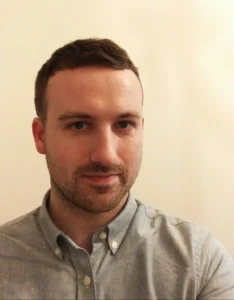
Graeme West is a technical writer from Glasgow, Scotland, who focuses on software documentation and localisation. He has interests in automation, process improvement, and working closely with development teams.
He works for Verint, a global leader in business and public sector intelligence systems. He previously designed and implemented the documentation system for NCR’s Mobile Centre of Excellence. He has also worked as a community manager, developer, and sysadmin.
In his spare time, he writes about himself in the third person, and wonders why you are still reading his boring biography.
The Glossary is Dead, Long Live the Glossary! – Holli Hamilton
About the presentation
In the world of topic-based authoring, when you’re creating a topic pool rather than a page-by-page document, it can sometimes feel hard to identify the work left to be done. How can you identify the gaps in knowledge without a structure to hold the work against?
In the formative stages of a documentation project, Holli proposes the glossary can be the core around which you measure your growing pool of topics.
About the presenter

Holli is currently the sole technical writer for Corero Network Security. She has been a technical writer for over 5 years and came into the field from a Fine Art background. While that may seem odd at first glance, she believes that they share the core values of communication, information absorption, and understanding your audience. She loves nothing more than the unity of these disciplines in a perfectly functional diagram.
Outside of work, she has more hobbies than any sane woman should and enjoys frustrating her husband with the amount of craft supplies you can fit into a one-bed flat.
Driving DITA off the map – Jang Graat – Description only
About the presentation
DITA was designed for topic-based authoring, but DITA maps are basically Tables of Content, which belong to the book paradigm. Even when adding conditional content and keys, the underlying organization is still a hierarchy, whereas the real world is radically decentralized and chaotic. If we want to get out of the old, sequential, content paradigm, we need to rethink the way we connect the dots, or the topics, to each other and to the various groups of users. This presentation outlines a couple of options to design dynamic content delivery.
About the presenter

Jang studied Physics, Psychology and Philosophy. He has 3 decades experience as technical author, trainer, consultant and developer. He has given countless presentations, tutorials and courses to a wide variety of audiences around the globe. His main skill is making complex technology understandable.
What I wish I’d known before doing user research for the first time – Jen Lambourne – Description only
About the presentation
We all want our content to meet the needs of our users, but the practicalities of user research and testing can be daunting, especially if you don’t have a research background.
In this talk, I’ll share some practical advice to get you started. From deciding what and how to research, finding users, handling consent, interview techniques, experience mapping, analysis and more, the talk will focus on the mistakes I’ve made and plenty of advice to get you going. We’ll also cover how to feed those all important findings back into product and content development.
About the presenter

Jen is a technical writer fighting an endless battle against acronyms and jargon. After escaping the worlds of technology PR and marketing, she now works at Government Digital Service (GDS), part of the Cabinet Office. In her latest role, Jen produces technical guidance for people across the UK government, as well as technical documentation for GDS products and services – all with a heavy dose of user research and testing.
Topic-Based Authoring Tools: Adapting to Organisational Evolution – Joanna Kusiak
About the presentation
As with prehistoric human societies, adopting new tools can be a necessary organisational response to new developments, enabling further progression. This presentation explores the decision-making process and factors involved in choosing authoring tools appropriate to organisations’ needs, particularly in circumstances of changing requirements.
The focus is on identifying the factors that have the most bearing on tool planning, investment, and implementation decisions, within complex documentation environments. The talk examines some practical considerations when implementing new tools to facilitate the work of multiple, dispersed documentation teams. Issues such as stability, usability, remote accessibility, and additional features are addressed.
About the presenter
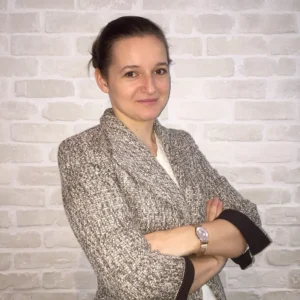
Joanna Kusiak has worked in the technical communication industry for the past nine years. After starting as a student intern at a global corporation in Poland, she expanded her experience in Germany and Ireland. Joanna now works as a senior information developer with TWi, an Irish-based provider of outsourced technical writing, editing, and documentation solutions.
Joanna’s professional interests revolve around authoring tools, information architecture, and single-sourcing. Her role involves teaching SMEs, learning architects, and instructional designers how to use authoring tools and content management systems, and helping them to define documentation processes, design stylesheets, and manage DITA implementation.
Our way is not the only way – a reuse and single sourcing model – John Lee – Description only
About the presentation
ARM design suites of heterogeneous computing cores all baselined on a specific implementation of the ARM architecture model. This provides opportunities for enhanced quality control and process improvement. One such improvement is a multi-layered reuse model that enables content sharing across the suite, with reduced development time and an ability to accurately make fast updates. This presentation describes the mechanics of that reuse model. The model uses both profiling and key-defined content switching and worked extremely well for ARM.
About the presenter
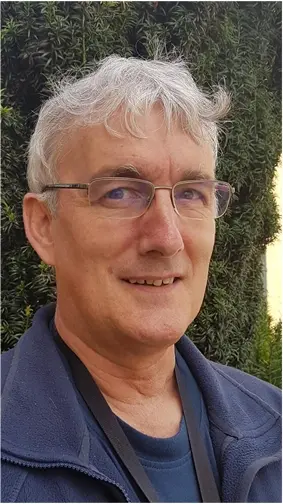
John gained his electronics training in the British Army, rising from apprentice technician through to system engineer in a 23-year career. He used his technical writing experiences within the Army to start a second career as a Technical Author almost 20 years ago. He spent 9 years at Motorola, before branching out as a contractor. John has worked on a variety of projects, from microelectronics, educational software, military hardware and the financial sector. He currently works for ARM as a permanent colleague in a Staff Information Developer role.
Give your content wings – How to improve your documentation skills, a SCHEMA case study – Jörg Plöger – Description only
About the presentation
At the latest when your machine is ready before the accompanying documentation, or when your software is two versions ahead of the software help release, it is time to look into your editing solution. You have probably already noticed that the number of releases and formats is constantly growing, and that publication cycles are becoming shorter. With this case study, we would like to give you a few helpful tips and best practices to improve your way of working with information. In short, it is about the question: “What to consider when creating and managing information to make it future proof?”
About the presenter

Jörg Plöger studied mathematics. He has worked in technical communication in a wide variety of industries for more than 20 years. As consultant and trainer, he has travelled around Europe many times. Since 2000, Jörg Plöger has been working in the software industry (Translation Memory Systems (TMS) and Content Management Systems (CMS)). He is sales representative of SCHEMA and based in Bremen, Northern Germany.
Surviving the agile enterprise: case study from the trenches – Karen Mardahl – Description only
About the presentation
What are the challenges for ten technical communicators in a large company moving from a waterfall development environment to an agile development environment with about 500 developers and testers?
This is a case study about writers learning together to work the agile way in a world that is in flux.
My colleagues and I use our own technical writing community of practice to guide ourselves via our successes and failures, and to teach our developer/tester colleagues about what we do. We are now reaping the benefit of our move to topic-based authoring several years ago. We still have challenges fitting a backlog of non-TBA legacy material into the fast-paced world of SAFe – Scaled Agile Framework for Enterprises.
I will share our plans, our goals, our challenges, and our frustrations using real-life anecdotes from the trenches.
About the presenter
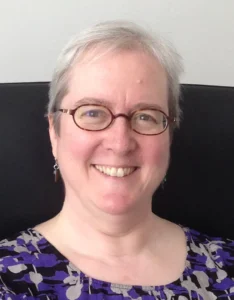
I am a senior technical writer at SimCorp in Denmark where I do my part to document an investment management system for the financial industry. I have long been keen on issues of accessibility and usability for technical communicators. That interest is still very strong and will never disappear. Lately, my daily focus has been on how a technical communicator can get things done in an agile world. I feel privileged to work together with great colleagues on finding answers to all our agile questions. TCUK17 will be my eighth TCUK conference. You can find me on Twitter @kmdk.
Plunging into the waters of UX – Maja Engel
About the presentation
I will talk about what User Experience (UX) is about, its principles and best practices and how to apply them in your work, regardless of whether you are a technical communicator, UI designer or content strategist. I will show that incorporating UX considerations early on in the design process can help you stay focused on goals instead of features and be able to prioritize. Finally, I will give you some tips and advice drawn from my own experience and cooperation with other UX professionals that might help you venture in this broad field and expand your skills.
About the presenter
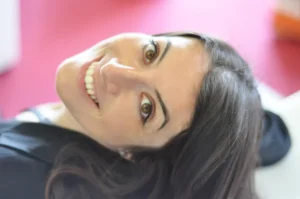
I have a degree in Conference Interpreting and Translation and started translating technical documentation straight out of university. I worked for the EU and the Croatian government prior to my current employment as technical writer in ESTECO, an engineering software company in Trieste, Italy. I am responsible for the technical documentation of two desktop software platforms and for about a year and a half I have also been in charge of UX architecture and UI design. My goal is to get things done and I want my users to be able to do the same.
How to stay on topic when on stage in a world where a 4-minute YouTube video is the standard in attention span – Marie-Laure Blanc – Description only
About the presentation
As a technical communicator, you know how to recognise great speakers. But – let’s face it – back in your office, how often do you end up going back to presentation habits detrimental to you and your audience?
Our General learning outcome for this highly interactive session is: embodying your technical communicator’s soul every time you present.
Specific outcomes are:
- Choosing the right scenario from the very beginning to the very end.
- Designing your own ready to use 4-dimension action plan for your next presentation.
- Bringing rhythm to what you say.
- Crafting crispy sentences.
Participants are expected to come with a presentation in mind. Two participants – willing to – will have the possibility to deliver a ten-minute presentation to start our session. If you are interested, get in touch before 15th September at marie.blanc@wanadoo.fr.
About the presenter
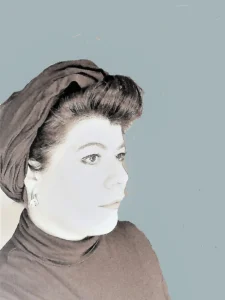
Some people say they want to get out of the box: I did it for real.
After ten years witnessing the daily challenges of the corporate world from my interpreting booth, I got out of it to develop an inclusive approach to leading.
For ten years, I taught translation and communication – with great pleasure – at the University of Marne la Vallée.
During the 20th century, I was lucky to study and work in Spain, the UK (Thames Valley Univ., Westminster Univ.) and France. http://marie-laure-blanc.com/
How to win friends as a technical author, and influence the development of software – Mark Dennett
About the presentation
Drawing on my recent experience as a technical author working in multi-national software environments, I will identify the challenges in producing quality documentation, and discuss some helpful strategies. I will argue that the technical author possesses a range of skills that could make them essential to the software development process, particularly with regard to terminology, and the development of the user interface. By providing guidance and feedback into the development process, I will describe an approach that will allow us to become an essential cog in the development machine, rather than a spare part.
About the presenter
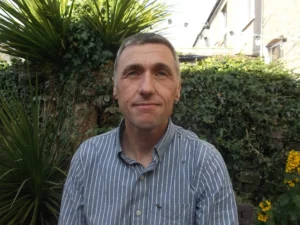
Born in East Yorkshire, I studied English and Philosophy at Staffordshire University before moving to Bristol to work in video production. I then worked in IT and telecoms support, spending ten years at Buro Happold Engineering in Bath. I eventually worked in the IT Infrastructures team, supporting several international offices. In my final years at Bath, I completed a part-time MA in Technical Communication at Portsmouth University. This enabled me to develop a career as a technical author. After briefly working for Sky, I secured my first technical author role at CAE Mining, before moving to Zuken at Bristol, where I currently work as a senior technical author.
Re-use Strategies for Topic-based Authoring – Matthew Ellison
About the presentation
Drawing on my recent experience as a technical author working in multi-national software environments, I will identify the challenges in producing quality documentation, and discuss some helpful strategies. I will argue that the technical author possesses a range of skills that could make them essential to the software development process, particularly with regard to terminology, and the development of the user interface. By providing guidance and feedback into the development process, I will describe an approach that will allow us to become an essential cog in the development machine, rather than a spare part.
About the presenter

Matthew has over 25 years of experience as a user assistance professional in the software industry. He now runs UA Europe, an independent UK-based training and consulting company that specialises in user assistance design and technology. Matthew holds a B.Sc. in Electronic Engineering and a Post-Graduate Certificate of Education from Bristol University. In 2009 he was the winner of the prestigious Horace Hockley award that is presented annually by the ISTC.
Optimizing API documentation: What we can learn from developers (Keynote) – Michael Meng
About the presentation
The talk will outline the main findings from some empirical studies we have done to better understand the information needs of API developers, their expectations regarding content and structure and some criteria they apply to assess documentation quality. I will then propose a set of heuristics and principles that we have derived from these findings, and that we hope can provide evidence-based guidelines for technical writers working on API documentation. Examples showing how the heuristics can be implemented will be drawn from a prototype that we are currently working on.
This work has been co-authored with Stephanie Steinhardt.
About the presenter

Michael studied German linguistics and psycholinguistics at the University of Jena (Germany) and the University of Edinburgh. After completing his PhD on syntactic processing during reading in 1998, he worked as a technical writer and later on as department manager of documentation and localization for an international software company. In 2012, Michael was appointed Professor of Applied Linguistics at Merseburg University of Applied Science, where he now teaches courses on text analysis, text production, research methods and cognitive psychology in the B. Eng. and M. A. programs in Technical Communication. He is member of tekom Germany and presents regularly at conferences such as the European Academic Colloquium on Technical Communication, Write the Docs or the annual tcworld/tekom conference.
Effects of visual signalling in screenshots: an eye tracking study – Michael Meng – Bio only
About the presenter

Michael studied German linguistics and psycholinguistics at the University of Jena (Germany) and the University of Edinburgh. After completing his PhD on syntactic processing during reading in 1998, he worked as a technical writer and later on as department manager of documentation and localization for an international software company. In 2012, Michael was appointed Professor of Applied Linguistics at Merseburg University of Applied Science, where he now teaches courses on text analysis, text production, research methods and cognitive psychology in the B. Eng. and M. A. programs in Technical Communication. He is member of tekom Germany and presents regularly at conferences such as the European Academic Colloquium on Technical Communication, Write the Docs or the annual tcworld/tekom conference.
Topic-based Authoring – Is it for me? (Keynote) – Mike Hamilton – Description only
About the presentation
Sometimes it can feel like everyone in the industry has made the transition to modular content creation, except you. Is this really true? Of course not. How can you decide if it is time to transition from a linear authoring process to a modular or topic-based process? What questions do you need to ask?
If you decide that you could benefit from a topic-based process then where do you begin? Do you start over? Can your existing content be reused? Beyond the content itself, will you need to approach the task of writing differently? Do you have any special content needs that would need to be addressed such as translation/localization requirements or heavy multimedia usage?
What about ongoing maintenance? How will a topic-based process change how you handle edits and content updates? What additional complexity will be introduced into the documentation process and how will it be managed?
These are all questions that Mr. Hamilton will address in this presentation. Transitioning to a modular content workflow can be very powerful or very frustrating. Asking the hard questions up front, and having good answers to those questions can help to ensure a successful transition.
About the presenter

Mike Hamilton is the Vice President of Product Evangelism at MadCap Software. Prior to joining MadCap Software, he served as the Product Manager for Macromedia’s award-winning RoboHelp product line, where he gathered input and feedback from the customer community and guided ongoing development of the various RoboHelp products.
Mr. Hamilton has over twenty years of experience in training, technical communication, multimedia development, and software development at several organizations including MadCap Software, Macromedia, eHelp, Blue Sky Software, Cymer, a leading supplier of laser illumination sources to the semiconductor industry, National Steel & Shipbuilding and the US Navy.
Mr. Hamilton is often a featured speaker at industry events, including the STC (the Society for Technical Communication) Annual Conference, the annual TEKOM/TC World Conference in Germany, the annual SOAP Conference in Poland, the European Online Documentation Conferences, and many more events. Mr. Hamilton has also appeared at the Microsoft Campus and STC regional conferences and events.
Five Cascading Style Sheet Techniques That Every Technical Writer Should Know – Mike Hamilton – Description only
About the presentation
We all know how to style in word processors but too many writers seem reluctant to learn CSS techniques. In this session, Mike Hamilton shares five easily mastered CSS techniques to help build confidence in writers at any skill level. Since the CSS language is the basis for styling modern markup languages, the more you learn about CSS the more it will benefit your career. Learn the basic techniques for the beginner, and some intermediate techniques for those more advanced. In addition, Mike will then finish with a prototype CSS technique allowing for vocabulary control over your content in a Responsive Design situation.
About the presenter

Mike Hamilton is the Vice President of Product Evangelism at MadCap Software. Prior to joining MadCap Software, he served as the Product Manager for Macromedia’s award-winning RoboHelp product line, where he gathered input and feedback from the customer community and guided ongoing development of the various RoboHelp products.
Mr. Hamilton has over twenty years of experience in training, technical communication, multimedia development, and software development at several organizations including MadCap Software, Macromedia, eHelp, Blue Sky Software, Cymer, a leading supplier of laser illumination sources to the semiconductor industry, National Steel & Shipbuilding and the US Navy.
Mr. Hamilton is often a featured speaker at industry events, including the STC (the Society for Technical Communication) Annual Conference, the annual TEKOM/TC World Conference in Germany, the annual SOAP Conference in Poland, the European Online Documentation Conferences, and many more events. Mr. Hamilton has also appeared at the Microsoft Campus and STC regional conferences and events.
Topic-Based and Structured Authoring – Keeping It Simple – Neil Perlin – Description only
About the presentation
Topic-based authoring creates content in small chunks rather than long documents. Structured authoring applies a formal structure to those topics. They’re different processes but most effective when used together. Consistent structure makes content easy for authors to write and readers to absorb. “Bead-sized” content allows single sourcing to multiple formats and devices.
But these methodologies can be time-wasting, expensive, and over-complicated if they don’t fit your company. This workshop looks at various factors to see how to implement these methodologies as quickly, inexpensively, and simply as possible.
- Definitions of topic-based and structured authoring.
- Business factors – support for company strategy, handling legacy material, more.
- Technical factors –trends that affect content development, maintenance, and distribution.
- Implementation factors – information type definition, template creation, cascading style sheets, DITA vs. non-DITA, more.
- Hands-on practice defining an information type and structure.
You won’t leave with all the answers. There’s too much to cover and companies differ. But you will leave with the concepts needed to implement topic-based and structured authoring.
About the presenter
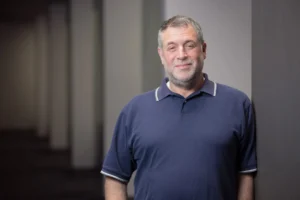
Neil has 38 years experience in technical communication, 31 in development, training, and consulting for online formats and tools ranging from cutting edge to dead. He is certified for Flare, Mimic, RoboHelp, and ViziApps Studio and consults on them, along with single sourcing, structured authoring, and apps.
Neil was a columnist for STC and IEEE and is a popular conference speaker, recently at TCUK15. He ran STC’s Bleeding Edge, and represented STC to the W3C for four years. He has written eight books on computing, including Advanced Features in MadCap Flare 10 and Creating Mobile Apps without Coding.
In his spare time, Neil builds telescopes, flies aircraft carrier simulators, and barbecues meat. Contact him at nperlin@nperlin.cnc.net or on LinkedIn, Facebook and Twitter (@NeilEric).
We’re Going Mobile! Great! Wait. What Does That Mean? – Neil Perlin – Description only
About the presentation
So you’re taking your documentation mobile. Great!
But just saying “mobile” is too vague. Is it an app? Responsive online help? Something else? And how might going mobile affect how you create content? Come to this presentation to find out.
We’ll look at three definitions of “mobile” – responsive design, “mobilized” online help, and apps –pros and cons and tools. We’ll then discuss changes to your documentation practices, such as greater syntactical rigor, eliminating local formatting, modifying or eliminating tables, and more.
You’ll leave this presentation with a solid understanding of your technical and workflow options for going mobile.
About the presenter

Neil has 38 years experience in technical communication, 31 in development, training, and consulting for online formats and tools ranging from cutting edge to dead. He is certified for Flare, Mimic, RoboHelp, and ViziApps Studio and consults on them, along with single sourcing, structured authoring, and apps.
Neil was a columnist for STC and IEEE and is a popular conference speaker, recently at TCUK15. He ran STC’s Bleeding Edge, and represented STC to the W3C for four years. He has written eight books on computing, including Advanced Features in MadCap Flare 10 and Creating Mobile Apps without Coding.
In his spare time, Neil builds telescopes, flies aircraft carrier simulators, and barbecues meat. Contact him at nperlin@nperlin.cnc.net or on LinkedIn, Facebook and Twitter (@NeilEric).
Creating content and output for mobile and embedded devices – Phil Lane
About the presentation
Whilst mobile devices can deliver a fantastically rich user experience, they often share some attributes with embedded devices, such as limited screen size, storage capacity or methods of interaction. We will examine the tools and techniques that allow you to adapt your content to work on both types of device, working around these limitations.
However, even embedded devices can support some dynamic capabilities, so we will explore these features, explaining how they can help your content become more interactive and appealing, and more useable as a result.
About the presenter

Phil Lane is a Content Strategy Specialist at Imprimatur Limited. He combines his experience in XML with his understanding of documentation processes to develop strategies and implementation plans that deliver improved documentation efficiency.
Phil particularly relishes projects in the automotive industry, where finding solutions is often challenging because of the need for simultaneously-available multi-lingual content, the pressures of a strict 12-month product cycle, and the tightly-constrained in-vehicle operating environment.
Phil holds a degree in Engineering and has a strong computer systems background reaching back over 13 years.
Audience Analysis: A smart way to understand our customers – Praveena Sabarish
About the presentation
It is essential to understand customer expectations and to tailor our documents by providing targeted content with concise and precise information for specific tasks. To understand customers, we must analyze the intended audience such as who they are and what they need. The best to way to understand and analyze our customers is by talking to customer-facing people.
Audience analysis is an effective tool to gather information about our target audience. This information can help us understand customer needs and usage patterns, and therefore deliver a better user experience.
This presentation will cover the process, outcome, and findings of the audience analysis and how it helped to deliver better documentation.
About the presenter

I currently work as a Senior Information Developer at ARM Embedded Technologies, India. Over the past 10 years, I have worked with different companies like TCS, Philips, Gilbarco Veeder-Root, and Commit Technologies as a Technical Writer on various domains. I am passionate about building strong relationships with customer-facing people and stakeholders to enhance existing documentation. I have worked with different project teams and learned to continuously adapt to diverse processes and methods followed during the project development.
Topic-based writing in the molecular world – Rahel Anne Bailie – Description only
About the presentation
The demands on content are growing.
There’s Germany’s Industry 4.0 initiative, which assumes that the interoperable exchange of data within manufacturing technologies. They don’t call it content, but content developers know all about content denial. An Information 4.0 consortium has already sprung up to prepare us for what’s to come when the content to be delivered is expected in smaller and smaller chunks.
On another front, artificial intelligence and cognitive computing are shaping the content mix. In some ways, topics become more irrelevant; in other ways, well-formed and semantically rich topics are more important than ever.
In this workshop, we will look at these two emerging practices, and examine ways to deal with the sometimes competing, sometimes complementary demands on our topic-based content. Using some basic examples, participants will explore a range of solutions and outcomes through hands-on exercises.
About the presenter

Rahel Anne Bailie brings a strong understanding of the complexities of managing the editorial and technical aspects of content, throughout the entire content lifecycle, to ensure that content is the driver for existing and emerging channels within the context of a rich customer experience. Chief Knowledge Officer at Scroll, Fellow of the Society of Technical Communication, and organiser of the Content Seriously meetup. She is co-author of Content Strategy: Connecting the dots between business, brand, and benefits and co-editor of The Language of Content Strategy. She is working on her next book on writing for a structured content environment.
Going Modular: Turning Legacy Docs into User-Story-Based Content – Robert Kratky
About the presentation
How to adapt the big guides of yesterday into modularized narratives that are easy to maintain, scale well, and still allow for a ‘guide-like’ experience when it is required? This presentation will describe the work documentation writers at Red Hat are doing to solve this problem: re-purposing the existing body of documentation into modular units that can be combined into user-story-based content. The talk will also outline how to leverage the modular structure of content to present it to users in a dynamic manner — using a metadata-based, hierarchical navigation.
About the presenter

Robert Kratky is a Principal Technical Writer at Red Hat and a long-time contributor to open-source projects. He has published dozens of technical and outreach articles in both print and online media, and presented about documentation topics at open-source events. At Red Hat, Robert specializes on developer docs and improvement of user experience with documentation.
The Convergence of Marketing and Technical Communication, an Adobe case study – Stefan Gentz – Description only
About the presentation
Content consumption patterns have dramatically changed over the last decade. The maximum selective sustained attention span of a human being is about 20 minutes. Latest research shows that the transient attention span of human beings has even gone down from 12 to 8 seconds over the last decade.
To communicate technical content in the future successfully, we need to move from drops to drips, improve findability and searchability and tailor content to the content consumer’s role and context automatically. It’s time to talk about new customer experiences and new customer journeys.
In this session, Stefan Gentz, Worldwide TechComm Evangelist for Adobe, will discuss the communication of technical content and how it’s becoming increasingly important to understand technical communication as marketing communication. The ability to blend marketing content and technical content into a unified customer experience becomes key to success. The foundation for this is dynamic, intelligent content that enables personalization and multichannel content delivery to communicate with customers in all possible ways.
About the presenter
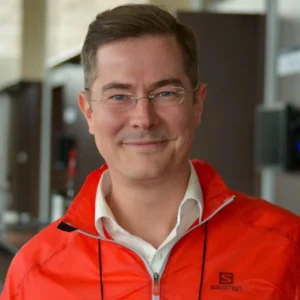
As the Worldwide Evangelist for Technical Communication at Adobe, Stefan’s mission is to inspire enterprises and technical writers around the world and show how to create compelling technical communication content with the Adobe TCS tools.
Stefan is also a certified Quality Management Professional (TÜV), ISO 9001 / EN 15038 auditor, ISO 31000 Risk Management expert and Six Sigma Champion.
Stefan is a popular keynote speaker and moderator at conferences such as tekom, tcworld, Information Energy, Intelligent Content Conference, Congility, LocWorld, TCUK, STC, GALA, ELIA, TTT, Translation Forum Russia and many others. He is also a member of the Conference Advisory Board of the world’s biggest TechComm event, the tekom / tcworld Conferences and member of the iiRDS working group for Intelligent Information. He is also an active social networker on Facebook, Twitter, and LinkedIn.
Mechanical engineering and Industry 4.0 documentation – Thomas Schubert & Angel Peter
About the presenters
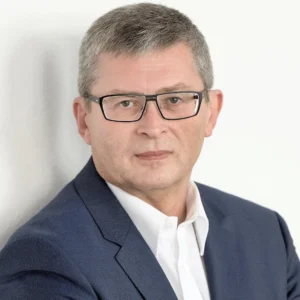
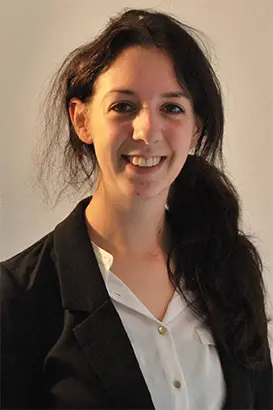
Work Smarter, Not Harder: Reorganizing your team for the new world – Wayne Brissette – Description only
About the presentation
Is it possible to actually ‘work smarter’ and ‘think different’ about today’s tech comm’s concerns? Deadlines are tighter, budgets more constrained, and people resources are more constrained. Learn how one writing team at ARM reorganized itself to put the cliché into action. Learn how we reorganized a global team, measured reuse to help understand how they can tell you about your topic-based project.
Learn how thinking differently about multiple projects allowed us to increase document quality and meet critical deadlines all without increasing headcount.
About the presenter
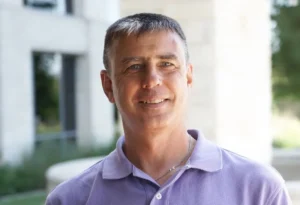
Formal electronics training courtesy of the US Marine Corps, with a degree in Technical Communication, Wayne has over 20 years in the Technical Communications field. He has worked for companies large and small. Currently working as Product Information Architect at ARM, based in Austin, Texas. He has previously worked as a technical author at Apple, ATI (now AMD), and LSI (now Intel). One of the co-leaders of the Central Texas DITA User Group, with over eight years of DITA authoring experience.
TCUK 2016
Recordings are not available. Slides are provided where available, in various formats.
From what was, to what might be: Matching career and practice trajectories – Adrian Warman
About the presentation
Technical communication today is very different to what it was ten years ago. Can we look back briefly at what has changed in technical communication, and identify some common trends that might guide us as aspiring or experienced professionals in the future? What are the skill and experience expectations, and how have they developed?
In particular, this presentation will address: The pendulum of progress, Optimising skills trajectory, and Secret but essential skills.
The presentation will provide the audience with a simple self-evaluation tool to help guide their career path development.
About the presenter

Adrian has been with IBM for fifteen years, and works as an Information Development lead for the Application Platform Services division.
This means he gets to work with all sorts of cool stuff, like applications and mobile tools, and write about them, too.
Before joining IBM, he worked in the telecommunications and retail banking sectors. He began his career as a University Lecturer, researching Information Systems and Computer Security. He maintains active links with universities, and is a Visiting Fellow at Bournemouth University.
How to Write a Case Study (Workshop) – Alison Reeves – Description only
About the presentation
When writing bids, proposals and tenders, writers have to provide case studies to evidence their knowledge and experience. They are also used on websites to demonstrate expertise and in sales situations to evidence benefits. I have created case studies in every business sector from childcare to nuclear submarines!
Your clients’ success stories are a major asset to your business. They describe how you work together, and how your product or service solves a problem. Come along to this very interactive workshop and learn the knack to writing a successful case study. Bring along your laptop and you will go away with a sample case study and a template to use in the future. We will work through the template on the day, and discuss what content, graphics and layout works best. Never feel at a loss again if you are asked to write a case study in the future.
About the presenter
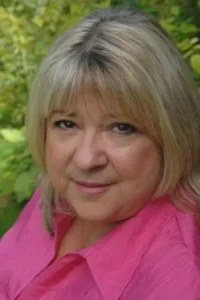
Alison is an experienced freelance technical communicator with a career in documentation spanning over 30 years. She currently specialises in all forms of persuasive writing, helping organisations to write Bids, Tenders and Proposals in addition to writing persuasive copy for websites. Both of these specialisms involve writing case studies to showcase the knowledge and experience of the business. Customers include Microsoft, Fujitsu, Tata, Shell, Siemens, Balfour Beatty Construction, Xerox, Compass Group, Housing Associations and as well as local businesses and charities. Alison is also a creator and trainer of business writing training and a member of the ISTC.
Can’t see it? Augment it! Creating and delivering content for Augmented Reality – Andrew Head – Description only
About the presentation
Industry demand for Augmented Reality (AR) solutions grows by the day, and technical communicators are facing a challenge to provide this new rich media. So, how does an author create content for AR? Is it a new content type, is it a new system, is it new software or is this a whole new science?
Andrew will explore the technology, processes and purpose of creating content for AR distribution. By sharing examples of how content is authored in a Content Management System, and how cloud content distribution platforms are the enabler for AR technical communication solutions.
About the presenter
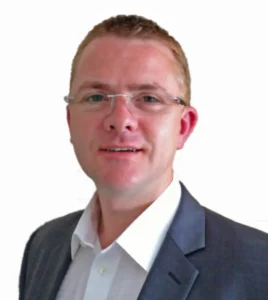
Andrew Head from Semcon leads the development of new business and new solutions in the United Kingdom. Andrew’s co-operation with product manufacturers, systems developers and service providers affords him a unique insight into the needs, ambitions and challenges associated with the creation and distribution of content that resolves problems, drives greater product utilisation and delivers innovative, high quality user experiences.
Becoming an Expert by Always Being a Beginner – Brian Lanigan – Description only
About the presentation
It’s comfortable to develop skills slowly, but you don’t know what you can do until you’re really challenged.
This talk discusses a project in which two technical writers implemented an XML authoring environment for their team. Instead of writing, the job involved configuration, information architecture, graphic design, and technical support. It was difficult—sometimes frustrating—but they succeeded.
This talk is not by an ‘expert’. It will reassure beginners of all levels that the way to get better is to tackle your limitations.
Because it’s okay to say, ‘I don’t know…’ if you follow with, ‘…but let’s figure it out.’
About the presenter
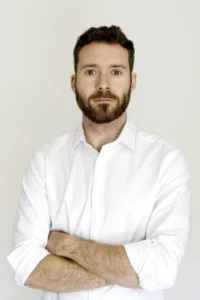
Brian Lanigan is a senior technical writer with TWi, a provider of outsourced technical writing, editing, and documentation solutions based in Cork, Ireland. It suits him just fine: the wide range of clients means there’s always something new to learn.
In the past, he worked as an information developer at SAP Ireland. He also spent some time working in the advertising world, which shares a surprising amount of technique with technical communication.
Be The Captain of Your Career (Workshop) – Chris Hester
About the presentation
Have you ever applied for a job you really wanted, but didn’t get? Or perhaps you landed the job, but feel under compensated?
Chances are you made one (or several) mistakes that are hindering your job and career growth.
In this hands-on workshop you will learn:
- The most common mistakes professionals make when looking for work—and how to avoid them
- How to ace a tech comm interview using a portfolio
- How to hone your workplace negotiation skills
Want a different job, more money, a better standard of living?
Don’t miss this workshop!
About the presenter

As an independent consultant and the founder of Red Desk Studio, Chris has delivered successful content strategy, training, and knowledge management projects to a variety of clients, including those in the advertising, construction management, entertainment, and healthcare industries.
Chris is an STC Fellow and has been actively involved in the technical communication community as a volunteer, academic mentor, and presenter at events such as the STC Summit, LavaCon, and BigDesign.
You’ve got style, darlings – Chris Hester
About the presentation
Whether we’re technical writers or content strategists, freelancers or full-time employees, we (secretly) have our own preferences when it comes to using our words and getting things done. Too easily, we (not so secretly) lose patience with others’ peccadilloes when they don’t abide by the guide.
A good style guide supports a team, whereas a poor style guide is a hindrance. And what if you join a team that has no style guide? Where do you even begin?
Let’s discuss decisions and processes we must consider with respect to style guides, including the decisions to “kill some darlings.”
About the presenter

As an independent consultant and the founder of Red Desk Studio, Chris has delivered successful content strategy, training, and knowledge management projects to a variety of clients, including those in the advertising, construction management, entertainment, and healthcare industries.
Chris is an STC Fellow and has been actively involved in the technical communication community as a volunteer, academic mentor, and presenter at events such as the STC Summit, LavaCon, and BigDesign.
From Paperweight to Conversation Piece: Building a Portfolio You Love (and Love to Talk About) (Workshop) – Chris Hester
About the presentation
There is nothing more awkward in an interview than watching someone glance through your portfolio without comment, other than watching it sit untouched.
This workshop focuses on moving your portfolio off the table and into the conversation, starting with a discussion about why we need portfolios and how to develop them. Then, we will break into small groups for review and “first impression” feedback from your peers. Remember to bring your portfolio!
We will reconvene to share highlights of the review, along with tips and techniques for creating a portfolio you are excited about. You will leave the workshop with feedback from each person in your group, plus a plan for showcasing your work going forward.
Portfolios of all shapes, sizes, and formats are welcome to this workshop, as are attendees who may not have a portfolio or those who hire technical communicators.
About the presenter

As an independent consultant and the founder of Red Desk Studio, Chris has delivered successful content strategy, training, and knowledge management projects to a variety of clients, including those in the advertising, construction management, entertainment, and healthcare industries.
Chris is an STC Fellow and has been actively involved in the technical communication community as a volunteer, academic mentor, and presenter at events such as the STC Summit, LavaCon, and BigDesign.
Life on a Beermat (Keynote) – Chris West – Description only
About the presentation
The Beermat Entrepreneur was one of the bestselling entrepreneurship books of the 2000s. I shall tell the story of how it got written and promoted, and what we did to turn the book into a ‘brand’ – what we got right and what we got wrong!
I shall look at (amongst other things):
- Choosing the right subject
- Choosing the right co-author
- Working with a subject-matter expert
- Choosing a publisher and working with them
- Getting publicity
- Building a brand
- Brand extensions that worked – other Beermat books, speaking
- Brand extensions that didn’t work
- The importance of keeping focus and momentum
About the presenters

Chris West is a professional writer. He writes marketing and PR copy, ghost-writes and publishes works in a range of genres under his own name. His most recent publication is Hello Europe! A History of Modern Europe in Sixty Eurovision Song Contests.
The Beermat Entrepreneur was co-written with Mike Southon, co-founder of 1980s training company The Instruction Set. It was published in 2002 and was one of the first of a new generation of books on entrepreneurship. Previous ones had been rather dry manuals. Beermat told it like it was. The book has been translated into many languages and sold over 60,000 copies in the UK.
Adding strings to your bow: branching out into usability design and content strategy – Cristina Belli & Maja Engel
Note: This presentation is provided as a ‘Prezi’ executable file. While reasonable precautions have been taken, no liability can be accepted for downloading and running this file.
About the presentation
The word on the street is that the future of technical communication as a single focus on writing documentation isn’t so rosy – in this day and age, who reads the documentation, right? If you’re worried this is the case or you’re looking for something new or you simply need to expand your skill set to remain competitive, this presentation shows you there are opportunities to branch out while still doing what you love and know best: writing. We talk about how our personal interests and natural inclinations led us to branch out into usability and content strategy.
About the presenters
Cristina and Maja work at ESTECO, an engineering software company in Trieste, Italy. Together they write documentation for four products and contribute to marketing content.
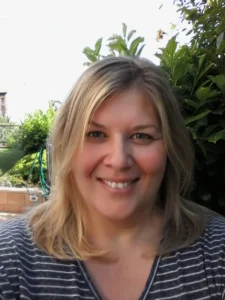
Cristina studied Economics at the University of Sydney. Since moving to Italy 25 years ago, she has specialized in ESL teaching, translation and writing marketing content. She has been writing
technical documentation for over ten years.

Maja has a degree in Conference Interpreting and Translation and started translating technical documentation straight out of university. Prior to becoming a technical writer at ESTECO in 2011 she worked for the EU and the Croatian government.
It all started with BS-4884: the courses, colleagues, and copy that have characterised my 20-year career as a technical communicator – Darren Mitcham
About the presentation
As a failing electronic engineer for Marconi in my first job after university, I jumped at the chance to write a manual for our first ever consumer (rather than military) product. I stumbled rather fortuitously on BS-4884 – the British standard for technical authors – and I knew at that point I had found my true vocation in life. Over the subsequent 20 years, I have benefitted from numerous courses and workshops, and read countless books and papers. I will share my experiences to highlight which ones I recommend for technical communicators and which ones to avoid.
About the presenter
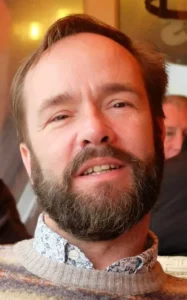
I am a senior technical author at Intel. I used to work for a small American electronics company for 17 years, but our 2,000 employees were very recently subsumed into Intel’s 133,000.
I live and work in High Wycombe. I play Hammond organs, attend many classic car rallies, collect classic car brochures and manuals (mainly to see how the use of technical English has evolved).
How Agile is your Parachute? Or, is there life beyond Concepts, Tasks, and References? – David Farbey – Description only
About the presentation
You’re working for a great company, you’re surrounded by good people, but something isn’t right. How many times can you write another reference topic, attend another scrum stand up, or tweak another page layout?
In this session, David returns to a favourite topic: what is it that makes people in general, and technical communicators in particular, happy or not happy in their jobs? Along with a review of current thinking on job satisfaction and motivation, he offers some suggestions about what you can do if you aren’t satisfied in your job, and how your existing technical communication skills could be applied in other areas.
About the presenter

David worked in technical communication for over twenty years in a variety of roles, mainly related to software documentation. He was also an Associate Lecturer on Sheffield Hallam University’s MA programme in Technical Communication. David has been interested in content strategy, information design, and the management of technical communication, particularly in the context of agile software development, for a very long time, and has served on the ISTC Council since 2010. In 2015 David launched a new phase in his career, becoming a technical consultant for a financial services company.
Asking the right questions for product management – knowledge management for an unstructured world – Deborah Stevens & John Spenceley – Description only
About the presentation
Learning to ask the right questions is the starting point to gather and store data. Analysis interprets data to begin our understanding journey along different routes. We can have very different analysis outcomes and documentation needs from travelling these different routes. Product Management includes customer focus and optimum profit. Product Management is a possible career development step for technical communicators. Technology push and scientific description could just be about ‘what’ and limits ‘why’ to how the science and technology works perhaps a more traditional Project Management role. Different focuses require unique journeys through the data.
We structure each output for our unique journey from the same data sets, so organising unstructured material in a logical framework can be a challenge. How can we achieve that?
We will share some key ideas to help your questioning techniques, data collection, organisation and output focus.
About the presenters
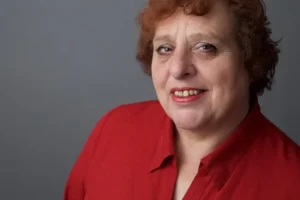
Deborah Stevens is a technical and business communicator and product manager. Deb is a former science advisory teacher who created training rollout material, she has written and illustrated documents for change management and strategy development, manufacturing, operation and maintenance instructions, technical specifications, test scripts and reports. She has worked for large and small companies. Deb is passionate about changing the limiting ‘method, result and conclusion’ often used without exception in science lessons. Where is the content ‘applications where this idea is useful’ and ‘how much does it cost to make x using our equipment?’ A few innovative educators are making a difference. She is also passionate about bringing more innovative ideas to market.
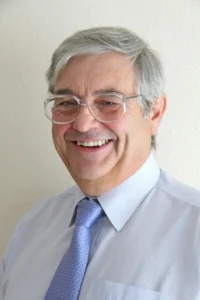
John Spenceley is a business analyst and product manager and has an IT management background. He has worked with senior management in British Rail, Thomsons and in the public sector as well as guiding small businesses and technology spin out companies to bring new products to market.
Moving into API documentation writing – Ellis Pratt
Moving into API documentation writing (Slideshare)
About the presentation
With many software developers now spending their time developing APIs, there’s an increasing demand for API documentation writers. However, Technical Communicators might be uncertain how to migrate to these roles.
In this session, we’ll look at:
- What is an API and what is API documentation?
- The role of an API documentation writer, and how it differs from mainstream Technical Author roles
- The skills you need as a writer of API documentation
- The tools used to create API documentation
- Becoming an API documentation writer
About the presenter

Ellis Pratt is a Director and Help Strategist at Cherryleaf, a technical writing services and training company based near London, in the United Kingdom. He has over 20 years of experience working in the field of documentation, has a BA in Business Studies, and is an Associate of the Institution of Engineering and Technology. Ellis was ranked the most influential blogger on technical communication in Europe, and he is also on the management council for the Institute of Scientific and Technical Communicators (ISTC).
Rockstars, not typists! Expanding your influence in tech organizations – Erin Vang – Description only
About the presentation
It’s an old story: tech writers get mistaken for the typing pool. Engineers aren’t sure why they should have to explain things to writers or review our drafts. When there’s a shortage of writers, people ask us why we can’t just get a couple student interns to help with formatting. But we know better! Let’s discuss how to bring up tech writers’ level of contribution and visibility, so our stakeholders finally start to recognize us as the rockstars who help make products better. We enable customer success, we help our collaborators who see a bigger picture, and we ultimately increase the production capacity of the whole team. We do all these things by using our tech comm superpowers for good. We are the secret, hidden rockstars in tech organizations, and it’s time to get the word out!
The only surprise in my talk is that there are no surprises. Any decent tech comms professional already has all the knowledge necessary to be recognized as a rockstar—but probably isn’t getting that message out. I pull together into one place the basics of knowing your value, delivering your value, and selling your value, challenging tech comms professionals to step outside their (usually shy, humble, introverted) comfort zone and get the attention they richly deserve.
About the presenter
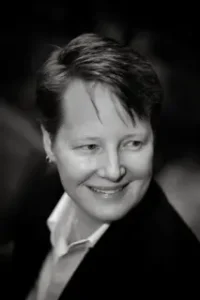
Erin Vang, PMP, has several decades of experience in commercial software documentation, quality assurance, project and program management, localization, content strategy, and people management, most recently as a senior manager of tech comms at Dolby Laboratories, and previously in the JMP division of SAS, at Abacus Concepts, and SYSTAT. In 2008 she formed the consultancy Global Pragmatica LLC®, offering services in facilitative leadership, localization, and custom statistical tool development.
Where do tech comms managers come from? – Erin Vang
About the presentation
Where do technical communications managers come from? The stork doesn’t deliver them. Simply asking a top performing writer to take the job doesn’t usually work out very well, either. So let’s break it down. What does the job actually entail? What skills, talents, and interests do you need? How do you acquire these? How do you know when you’re doing the job well? What does leadership actually mean in concrete terms?
This session will be of interest to technical communications individual contributors interested in considering a management track, to general managers wanting to understand better the particulars of managing a technical communications functional group, and to current tech comms managers interested in widening the lens on a big job.
About the presenter

Erin Vang, PMP, has several decades of experience in commercial software documentation, quality assurance, project and program management, localization, content strategy, and people management, most recently as a senior manager of tech comms at Dolby Laboratories, and previously in the JMP division of SAS, at Abacus Concepts, and SYSTAT. In 2008 she formed the consultancy Global Pragmatica LLC®, offering services in facilitative leadership, localization, and custom statistical tool development.
DevOps documentation: Manage documentation in a shared ownership environment – George Lewis
About the presentation
DevOps encapsulates the collaboration between Development and Operations teams to create, deliver and operate a product or service. But in such a collaborative structure, who is responsible for the documentation?
Technical authors face a challenge when working with collaborative structures: knowledge is created in the team with the right specialty, not necessarily in the team which owns the document.
As organisations seek to deliver products and services to market at an ever quicker pace, collaborative structures such as DevOps are becoming more common. To make the issue more challenging, these teams may be spread across different organisations and countries.
I shall share doc-department’s experience working with DevOps organisation and how we overcame these challenges with an Open DevOps documentation approach that supports collaboration and communications across teams.
About the presenter

George is the Managing Director of doc-department; a company that helps organisations access best in class technical authoring services to support their operations and marketing strategies.
Having started his career in tech comm over 15 years ago in Germany, George has served his time as a writer of documents as well as a consultant helping organisations automate their documentation workflows.
George is passionate about changing the perception of tech comm from a costly burden to a solution for business information issues.
You can follow George and doc-department on @docdepartment or on their blog at blog.doc-department.com.
What’s right for me, permanent or contract? – Glyn Turk
About the presentation
Weighing up the pros and cons of a permanent position or contract work is a dilemma that could apply to many technical communicators during their careers. Each has its own particular attractions, but also potential drawbacks. I have been both an employee and contractor who has faced exactly this decision on several occasions.
As I’ve yet to decide which method of employment I really prefer, I’m happy to share my experiences with others who may be contemplating moving from permanent to contract employment, or vice versa, and hopefully provide some food for thought, if not any concrete answers!
About the presenter
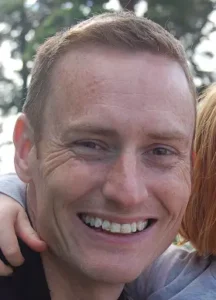
Working as a technical author for the last 16 years, I have experienced both permanent and contract employment for a variety of software companies in diverse industry segments from digital TV to insurance, mobile phone networks to retail and hospitality point of sale. Some have been little more than start-ups, others large multi-national corporations, so I have encountered a wide range of working practices and approaches to the role of the technical communicator.
I’ve recently completed a 12 month contract and have made a return to permanent employment, so the considerations covered in this presentation are fresh in my mind!
System safety and the Technical Author – Graeme Dowdell
About the presentation
Many organisations now have to demonstrate through assessment and documentation that their products are acceptably safe to use. This is known as System (or Product) Safety.
This workshop will look at what skills, knowledge and capabilities the Technical Author can bring to the assessment and documenting of System Safety. We will also examine what a Technical Author cannot do in this field, and when to say no.
This workshop will not deal with specifications. It will focus instead on roles and responsibilities, the concept and assessment of Safety Risk, introduce participants to a few key techniques, and explore the principle documentation issues. The workshop will also briefly consider Risk mitigation, Risk transfer, and how the results of the safety assessment affect the technical publications.
About the presenter

Graeme Dowdell FISTC initially followed the classic career path of becoming a Technical Author, progressing to Senior Technical Author, and then managing a small technical publications department. He then broadened the scope of his work and became a Publications and Integrated Logistic Support Manager. In addition to technical publications, that role included managing the assessment and documentation of system safety; managing reliability, availability and maintainability studies; and other equipment support activities. Since 2008 he has enjoyed being his own one-man company.
Advanced interrogation techniques: Extracting information from engineers – Irit Arkin
About the presentation
As technical writers, the best source of information we have is engineers: friendly, chatty colleagues who possess all the knowledge we need on a particular topic.
Good luck getting that knowledge out of them, of course.
Over the years, as both software tester and technical writer, I’ve had the chance to succeed – and fail – at asking engineers sensible questions and ensuring comprehensible answers. My TCUK talk will highlight some of the best and worst techniques I’ve employed to gently elicit information out of engineers.
About the presenter
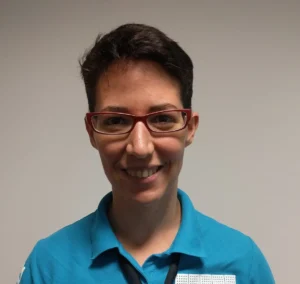
Irit Arkin extracts information from engineers in ARM’s Internet of Things Business Unit. Before that, she moved between writing and software testing for startups, with the occasional foray into spec writing and one (accidental) adventure in project management.
How German Manufacturers Create Technical Documentation with ST4 DocuManager – Jörg Plöger – Description only
About the presentation
To succeed on a global market, manufacturers have to be flexible, offer different variants, be present in many markets, etc. All these challenges have an impact on the way technical documentation needs to be provided.
Whether it is about localization to three dozen languages, handling variants on different granularity levels, publishing efficiently to different output channels, not getting lost in XML details, etc. ST4 DocuManager offers such features as a ready-to-use solution for technical documentation.
See in a live presentation how more than 100 German and Swiss manufacturers use ST4 DocuManager on a daily basis for
- Modularizing documents in a simple and effective way
- Handling variants with different degrees of granularity
- Localizing into multiple languages
- Publishing efficiently without scripting in/(into) different formats
- Integrating MS Word as authoring tool in a 100% XML environment
SCHEMA has gained expertise by having worked for more than 20 years with over 300 industrial customers around the world such as Siemens, Bosch, Philips, Daimler, General Electric, Toyota, MAN, ABB, Lufthansa, Bombardier, Agilent, Sagem, Ericsson, Carl Zeiss, Voith, SEW Eurodrive, Enercon, Senvion, INA Schaeffler, Doppelmayr, etc.
About the presenter

Jörg Plöger studied mathematics. He has worked in technical communication in a wide variety of industries for more than 20 years. As consultant and trainer, he has travelled around Europe many times. Since 2000, Jörg Plöger has been working in the software industry (Translation Memory Systems (TMS) and Content Management Systems (CMS)). He is sales representative of SCHEMA and based in Bremen, Northern Germany.
Making Agile Work for YOU! – John Garison
About the presentation
Agile, scrums, backlogs, user stories, sprints…What’s it all about? What do I need to know? And what’s in it for me?
Regardless of the Agile realities at your organization, you can learn to navigate murky waters, get the information you need, and use the Agile method to iteratively produce better, stronger, more useful documentation to support your customers.
Whether your organization is considering a move to Agile or you’re already up to your elbows in backlogs and user stories, you’ll learn some new perspectives, and leave with a better understanding of how you can make Agile work for you.
About the presenter
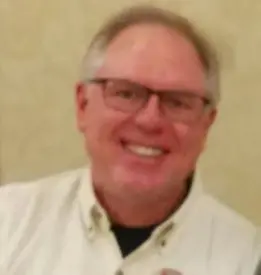
John Garison is Lead Technical Communicator for Medidata Solutions. His experience in writing about operating systems, programming languages, business applications, and electronic health records (among other things) gives him a unique perspective on most things documentation-related. He delights in sharing information and war stories.
John is an STC Associate Fellow and taught technical writing at Harvard University and the University of Massachusetts, Lowell.
Despite living on a dead-end dirt road in rural Vermont, his gigabit fiber optic internet lets him keep up with the real world and telecommute to New York City.
See https://www.linkedin.com/in/johngarison for his complete CV.
Empathic Tech Comms: create better content with practical UX techniques – John Kearney – Description only
About the presentation
Traditionally, we Technical Communicators don’t venture far outside our organisations. We rely too much on the experience and opinions of others, such as Product Managers, or second-hand user feedback in the form of bug reports.
In reality, of course, it’s the user experience that matters.
Perhaps you have several years in the profession under your belt. You’ve done your time writing user guides, online help, configuration instructions, and so on. Or maybe you’re a novice author, unscarred by the experience of wrestling with a quirky version control system or editing a 200+ page Word document. You may or may not have poked around the UX field.
UX is comparatively young when compared with Technical Communication, and it offers a fresh perspective that we can benefit from when answering that most important of questions, “What is the user need?” It has valuable techniques that we can combine with our traditional skills. In light of this, I will look at what I think are the most common problems when creating user assistance content, and the cultural challenges that face us when we try to change what’s delivered.
Using practical examples, I will then show which basic UX techniques can help reduce those problems and improve the value of our content. You can expect to hear such terms as topic-based authoring, personas, usability interviews, practical style guides and more. I believe it is this combination of UX and Technical Communication expertise that can help us create truly clear and effective user assistance.
About the presenter

John became a Technical Author when funding for English Literature postgraduate work dried up. 19 years later, he’s still in the same career, which probably means it was the right decision.
He’s worked for many companies across many sectors, and has now settled back into a permanent role after a couple of years as a contractor. John discovered TCUK in 2009, and has attended every conference since. He is particularly interested in content quality, usability, and accessibility. You can follow him on Twitter if you really want to: @jk1440.
When he’s not doing his job, he can be found with his nose in a book, dancing, or on an archery field.
He is not as tall as some people think.
And… Action! How to get started with creating instructional videos on a budget – Leanne Visser
About the presentation
Is your Online Help wordy and bulky? Is your manager asking for videos, because no one reads manuals? Is it easier to show a workflow instead of documenting it?
Videos are a great tool to reach users: they have a high visual appeal and wow-factor. People like them: over 50% of internet traffic consists of video.
This session is an introduction in making your own instructional videos, focusing on getting started with recording and editing that first video.
Leanne will include lessons learned at Medicore, where they implemented a video curriculum from scratch, so you won’t make the same mistakes!
About the presenter
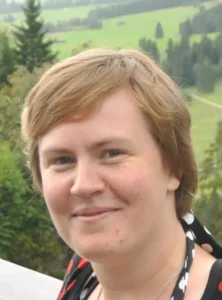
Leanne is the sole technical communicator at Medicore, a Dutch Healthcare IT company. Being passionate about stories, she studied English Language & Literature.
Her career started with editing and writing articles for catalogues at auction house Christie’s. She traded art for Healthcare IT to become a translator/Project Manager at Epic, and hasn’t looked back.
At Medicore she is in the process of changing the traditional written Online Help into a modern and user friendly documentation suite containing a mix of help texts, Quick Reference Guides and instruction videos.
A three-eighths Gripley by any other name (see also: terminology management for technical authors) – Liz Gregory
About the presentation
Technical authors all know the importance of using consistent language for clear communication. We also know that maintaining consistency can get difficult when you have large projects, multiple products and authors, SMEs with opinions, or a project handover. And the difficulties get magnified if you need to think about translation. Terminology management can really help, and is a great tool to add to your authoring box. This talk will describe a technical author’s journey from novice to terminology champion, and explore some ideas and techniques that work for projects of all shapes and sizes. Unleash your inner word herder!
About the presenter

Liz Gregory is a technical author who recently made the leap from authoring in a team to being a sole author. She has a background in chemistry and education and writes about both hardware and software. Since starting as a junior author four years ago, she has progressed to an experienced, confident author, and a champion of terminology management and source control. A self-confessed nerd for words, Liz will talk with anyone about anything, and is a dedicated member of the Thames Valley ISTC group. In her spare time she enjoys knitting, web comics, and ballroom dancing.
Mapping your path in tech comms: Surviving the early years – Louise Fahey
Mapping your path in tech comms: Surviving the early years (Slideshare: slides only)
Mapping your path in tech comms: Surviving the early years (Slideshare: slides with notes)
About the presentation
Mapping your path in tech comms: Surviving the early years
Are you a newbie to tech comms? Or are you a tech comms expert charged with the training and development of a newbie? If so, this presentation is for you!
Using my first two years working in tech comms as a reference, I will share tips and tricks that are key to the development of new starters in the field.
This includes advice for breaking into technical communication, entering the profession from a non-technical background, getting over the steep learning curve at the beginning, the key skills you should focus on developing, as well as much more!
About the presenter
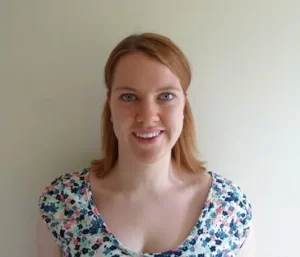
Louise Fahey is a Technical Author at Clearswift, based in Reading, UK. She holds an LLB degree in Law Plus and a first-class honours degree in Technical Writing, both from the University of Limerick, Ireland.
Louise is a member of the ISTC, as well as Copy Editor of InfoPlus+, the monthly online newsletter from the ISTC. She is a big fan of MadCap Flare and all things Agile. Louise is also passionate about end-user experience and usability.
Technical Writing and Instructional Design: A great confluence! – Madhu G
About the presentation
Technical Writing (TW) and Instructional Design (ID) are two professions that have one basic element in common – information design. Both professions aim to provide informative content to the audience. Technical Writers stand to benefit from using the principles of ID.
In this presentation, I will provide pointers on how some of the ID principles can be used in TW to enhance:
- Content planning and authoring.
- Seeking customer feedback.
- Providing alternative learning solutions.
About the presenter
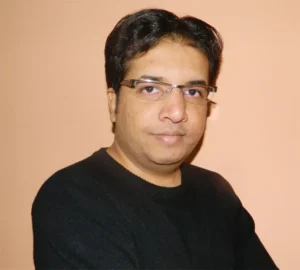
Madhu is working as a Senior Information Developer at ARM Embedded Systems, India. He holds a degree in Information Science & Engineering, and became a technical writer by choice. Over the past ten years, he has worked with various companies such as IBM, Capgemini, Alcatel Lucent, and Cisco on diverse domains. Madhu has played different roles in these companies such as, Software Developer, Instructional Designer, Courseware Developer, Scrum Master and Information Developer.
Pushing Syrup through a Straw: When Content Exceeds Capacity – Rahel Anne Bailie – Description only
About the presentation
What happens when you have thousands of products – or maybe tens or hundreds of thousands – and not enough capacity to deal with them? In a play on “it takes a village to raise a child”, it takes a content ecosystem to produce content with any sort of efficiency. In the brief period of a presentation, we will look at some techniques for dealing with large volumes of product content to a publication-ready state, and how to create the village to raise content.
About the presenter

Rahel Anne Bailie, Chief Knowledge Office for Scroll, runs the content strategy practice and consults for clients with serious content challenges. She blends techniques from multiple disciplines to develop content strategies that have business impact. Rahel also teaches in the Content Strategy Master’s Program at FH-Joanneum, runs the Content, Seriously meetup, and is working on her third industry book: writing content for a structured authoring environment.
Strategist, Consultant, Trusted Advisor: Which Are You and Why Does It Matter? – Rahel Anne Bailie – Description only
About the presentation
It’s been twenty years since the Cluetrain Manifesto changed the dynamic from pushing messages to our audiences into creating conversations. Now we’re more concerned about the type of conversations we have. Do we get the right kind of engagement with our audience? Do we provide a commoditised service, or do we operate as trusted advisors?
Rahel Bailie looks at the various names that we go by, and creates a map that shows the arteries and intersections of professional competencies, talents, skills, and other factors that round out our diverse set of professions.
About the presenter

Rahel Anne Bailie, Chief Knowledge Office for Scroll, runs the content strategy practice and consults for clients with serious content challenges. She blends techniques from multiple disciplines to develop content strategies that have business impact. Rahel also teaches in the Content Strategy Master’s Program at FH-Joanneum, runs the Content, Seriously meetup, and is working on her third industry book: writing content for a structured authoring environment.
Let Us Say ‘Yes’ to Our Presence Together in Chaos (Keynote) – Ray Gallon
About the presentation
Technological change advances at a dizzying rate, we are all inundated with a host of names and acronyms that we can barely manage. We’re urged to “be creative” at the same time that we must follow orders. Information changes in the time it takes to verify it. Welcome to chaos!
You can fight against the tide, trying to make order, or you can accept that we will never know it all, will never master it all, but we can deal with it all.
One of the major currents in the maelstrom is called Industry 4.0, and its combination of Artificial Intelligence and the Internet of Things promises to totally change the way we live. Technical communicators will not be exempt. We’ll still need technical information, but we aren’t going to be producing it “the way we’ve always done it.”
We’re going to glimpse ahead to how our industry is changing, even now, and how we need to adapt ourselves and our skills – for survival, for sanity, and for success in a world without documents.
About the presenter

Ray Gallon is co-founder of The Transformation Society, a research and consulting company, and owner of Culturecom, a company that provides business process improvement through communication. He has over 40 years as a communicator, first as an award-winning radio producer and journalist, then in the technical content industries. His management experience includes a stint as program manager of WNYC-FM, New York City’s public radio station.
Ray has always been interested in the meeting point between technology and culture, and has used his broad experience to advantage with companies such as IBM, General Electric Health Care, Alcatel, 3M, and the OECD, as well as in smaller companies and startup enterprises.
He has been quoted as saying, “Since the beginning, I have been, paradoxically, communicating and shooting myself in the foot. I find that this combination leads to fascinating outcomes that have made me one of the most fortunate people I know.”
Ray is a university lecturer and a speaker at events throughout the world. He has contributed articles and chapters to many books and periodicals and is the editor of the recently published “Language of Technical Communication” (XML Press).
Backspace to the future: plain text in the 21st Century – Raymond Gillespie – Description only
About the presentation
In this presentation, Raymond Gillespie will step through the history of plain text software documentation. He’ll bring us up-to-date with some examples of contemporary documentation written in Markdown, reStructuredText and AsciiDoc—three of the most popular lightweight markup languages. To finish, Raymond will touch on some key questions facing technical communicators today:
- What types of documentation projects lend themselves to lightweight markup approaches and what types don’t?
- Is there a middle ground? Can we integrate lightweight approaches into a more structured approach, for example in conjunction with DITA?
About the presenter
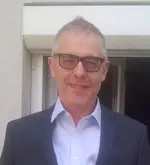
Raymond Gillespie has over 20 years experience in the field of information technology. For the past 15 years, Raymond has lived in Budapest, Hungary, working as both a software engineer and a technical writer, mainly in the fields of telecommunication, medical imaging, and navigation software. He is currently working for Nokia as part of an R&D System Verification and Customer Documentation team. He holds an MSc in information management from Lancaster University Management School (UK).
From bit-of-a-scaredy-cat to banning words for the UK government (Keynote) – Sarah Richards – Description only
About the presentation
Sarah started in a quiet team of editors and ended up banning Whitehall from using their favourite jargon on GOV.UK. Sarah will explain her journey from having to publish whatever lawyers and policy people said to running an agency that will only take on work if the process is agile and user-centred. It’s a tale of tears, sugar, late night pizza, not many kittens and tea*.
* plus how she introduces user-centred content into organisations.
About the presenter
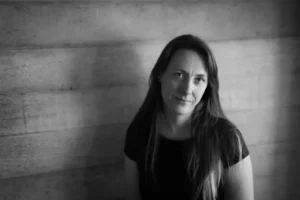
Content strategist, digital consultant, and former Head of Content Design for GDS. Sarah has led high-performing, award winning, agile teams, and has a longer and more varied editorial career than she cares to admit.
Sarah started in a quiet team of editors and ended up banning Whitehall from using their favourite jargon on GOV.UK. Sarah will explain her journey from having to publish whatever lawyers and policy people said to running an agency that will only take on work if the process is agile and user-centred.
Using evidence and data to have tricky conversations
(Workshop) – Sarah Richards – Description only
About the presentation
If you have to go through an approval process for your content and you often have a… difference… of opinion with the approver, you might like Sarah’s workshop. Sarah can show you how to have conversations using data and research to back up your arguments. You’ll also learn how to have these conversations without getting into a ‘them vs us’ situation.
About the presenter

Content strategist, digital consultant, and former Head of Content Design for GDS. Sarah has led high-performing, award winning, agile teams, and has a longer and more varied editorial career than she cares to admit.
Sarah started in a quiet team of editors and ended up banning Whitehall from using their favourite jargon on GOV.UK. Sarah will explain her journey from having to publish whatever lawyers and policy people said to running an agency that will only take on work if the process is agile and user-centred.
From Technical Communicator to Instructional Designer – Sean Marlow & Sally Haywood – Description only
About the presentation
Sally Haywood and Sean Marlow delve into the world of eLearning. See how the landscape could change for you. Communication is at the heart of Instructional Design, but what other qualities would you need to cross that bridge? Are the roles and responsibilities distinct or complementary? Will a new title raise your profile? Understand more about the hot topics in eLearning from social and mobile learning to gamification. Learn about authoring techniques for compliance and branding as well as giving your learners that all-round great user experience.
About the presenters
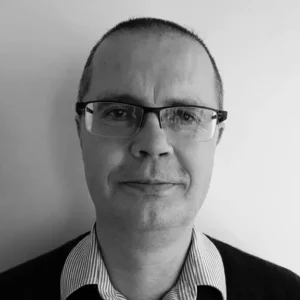
Sean Marlow has over 25 years’ experience in the translation industry, specialising in software and user assistance localisation. Dedicated to the cause, he even married a freelance translator, though training his dogs to be bi-lingual was deemed a step too far.
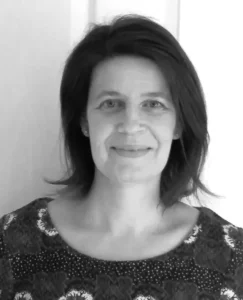
Sally Haywood has over 20 years’ experience in the translation industry and specialises in the localization of software and eLearning. She lives in North Yorkshire with her husband, 3 daughters and very playful young dog.
Eliminating Support Tickets – Simon Anstey
About the presentation
Organizations can be oblivious to the business value of good documentation, and thus overlook its strategic importance. That’s a missed opportunity – and frustrating for us. To change things, we need to show what the value added is. But that’s not easy to quantify.
Our team looked for – and found – a way to improve things. We began collaborating with customer support to improve the documentation for some critical products. This stemmed the flow of support tickets. We estimated the resultant cost savings – and started gaining management’s interest.
This presentation is for writers and managers who would like to evince similar changes.
About the presenter
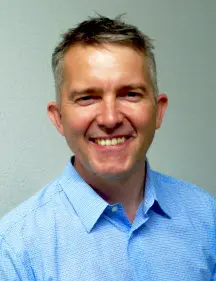
Simon Anstey leads a team of 25 tech writers at SAP, the world’s largest provider of enterprise application software. The team provides user assistance for 60 country versions of the software.
Simon believes that a collaborative approach to software and user-assistance development benefits customers, employees and profitability, and is currently working with SAP’s support teams to eliminate support tickets through better user assistance.
Simon studied German at Manchester. He has been working in user assistance at SAP in Germany for 22 years, the last 12 in management. In his spare time, he’s an oboist and loves gardening.
How intelligent information is going to change the world – Stefan Gentz – Description only
About the presentation
The future of technical communication is all about intelligent information. And it’s a hot topic at conferences around the world and the German tekom is even creating an international standard around it. But what does that mean, “intelligent information”?
In this presentation, Adobe Worldwide TechComm Evangelist Stefan Gentz will introduce you to the concept of intelligent information and why we need to change to create technical content that opens up all doors to the future, and what Adobe offers to make it possible. He will explain what we can do to deliver multi-layered, technical content to all communication channels for a mobile and connected world and the Internet of Things, and discuss how to successfully make the shift from technical documentation to technical communication as a marketing tool. He will explain Adobe’s vision for the future and guide you through the Adobe’s new end-to-end Technical Communication ecosystem.
About the presenter

As the Global Evangelist for Technical Communication at Adobe, Stefan’s mission is to inspire enterprises and technical writers around the world and show how to create compelling technical communication content with the Adobe TCS tools.
Stefan is also a certified Quality Management Professional (TÜV), ISO 9001 / EN 15038 auditor, ISO 31000 Risk Management expert and Six Sigma Champion.
Stefan is a popular speaker and moderator on conferences such as tekom, tcworld, Intelligent Content Conference, Congility, LocWorld, TCUK, STC, GALA, ELIA, and many others. He is also a member of the Conference Advisory Board of the world’s biggest TechComm event, the tekom / tcworld Conferences and an Ambassador for the Globalization and Localization Association (GALA). He is also an active social networker on Facebook, Twitter and LinkedIn.
What’s at Stake? – An introduction to stakeholder management and creating positive working relationships – Tina Hoffmann – Description only
About the presentation
You will have heard of ‘stakeholder management’ but why should you care? And what does it mean? Is it only me or does the advice offered by those who tell us ‘to engage with our internal and external stakeholders’ often have a Machiavellian ring to it?
This presentation aims to show how you can use the basic principles of stakeholder management to build trust, resolve conflict and create more positive working relationships.
Learn how to draw and code your own map (templates provided) and strengthen the interpersonal skills required to enhance your relationships, to benefit you and others.
About the presenter
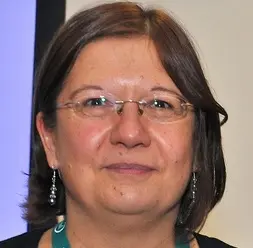
Tina’s career path has meandered from literature and art history via localisation to technical communication. As a supporter of William Morris, Tina believes you should have no document that you do not know to be useful or believe to be beautiful. With most documentation containing everything the user needs but cannot find Tina spends a lot of time ‘tidying’.
As Documentation Lead, Tina looks after the technical authors responsible for all IT operational documentation for a leading payment processing organisation. She is accountable for end-to-end delivery of documentation to the company’s “Command Centre” and setting the direction for operational documentation.
Mobilize Your Content: Create EPUBs and Kindle Books – Toni Ressaire – Description only
About the presentation
eBooks are not just for reading sci-fi. Why not publish your tech docs for tablets, iPad, and mobile phones?
eBooks are designed for responsive reading devices. It makes sense to publish in formats that offer a pleasant mobile reading experience.
In this hands-on workshop, you will go from Microsoft Word doc to ebook. We’ll start by looking at issues related to creating ebooks, such as file types and device rendering. Then we’ll create an ePUB and Kindle ebook. Finally, you’ll test your ebook. We’ll explore ebook creation software, such as MadCap Flare, Oxygen, Adobe InDesign, FrameMaker and others.
Attendees should bring a laptop computer loaded with a fully-licensed or trial version of Adobe FrameMaker (2015 Release), and the KindleGen plugin, which can be downloaded for free at Amazon.
Optional:
About the presenter

Toni is a technical communicator/trainer and indie publisher. After working primarily in the software development industry, she now has some rather non-traditional uses for traditional tech comm tools. She provides training for tech writers and technically-challenged writers who want to create traditional pubs and digital content. Toni blogs about digital publishing at pub.ink and tweets at @Route11eBooks. She has a masters level degree in Technical and Scientific communication from a U.S. university. Toni is an American living in the South of France.
What do viewers want from videos? Updated Research and Findings – Troy Stein
About the presentation
In 2013, 1900 participants told us what makes an effective video.
In 2016, we followed up to see how these video viewing preferences had changed.
We will present the research results. We’ll cover practical tips to improve videos and engagement. We’ll discuss the role of humor, visuals, audio, story telling and more.
This is a sales-free, marketing-free presentation. No product promotions whatsoever.
About the presenter
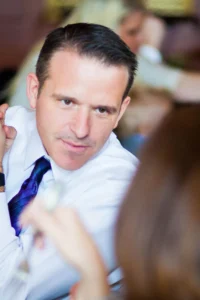
Troy Stein has 20 years corporate video experience. Troy has worked for Cisco Systems, Netscape, his own video company and currently works at TechSmith Corporations. He’s an avid story teller, football (soccer) player, father of five and recently returned from a motorcycle trip across the Arizona desert.
TCUK 2015
Recordings are not available. Slides are provided in PDF format where available.
Changing Role of Tech Comm Professional – Abhishek Jain
About the presentation
The field of technical communication is evolving rapidly and these developments are changing the very manner in which
content is created, managed, published and distributed. Over the past few years, trends such as structured authoring and mobile publishing have become mainstream, whereas other shifts are taking root such as a desire among writers to understand how content is getting consumed by end users and to engage them. These shifts are in turn causing the role of the tech comm professional to change as well.
In this presentation, Abhishek Jain, Product Manager, Adobe Systems, will discuss how the role of the content professional has changed and will change in the future, and share insights from a
recent worldwide survey done with the technical communicator community.
He will also show how the new 2015 release of Adobe Technical
Communication products can help you deal with these changes head on.
About the presenter
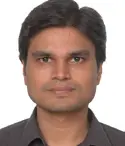
Abhishek Jain is a Product Manager at Adobe Systems, India where he manages the Technical Communication line of products (RoboHelp and Technical Communication Suite). He is responsible for product strategy and roadmap, partner ecosystem management and customer relationship. Prior to Adobe, he worked as a Product Manager at Winshuttle, where he managed the Enterprise suite of products. Earlier he worked as a Software
Engineer with Adobe, Freescale Semiconductors and Wipro Technologies. He’s did his MBA from Vlerick Business School, Belgium and Bachelors in Technology from National Institute of Technology.
Content Experience Leadership: Transforming Your Organization for Content Excellence (Workshop) – Andrea Ames – Description only
About the presentation
High-value content is a critical business asset, but our clients and employing organizations often don’t realize the impact content can have on the overall customer experience — in particular, on purchase decisions and revenue, customer loyalty, and customer advocacy (the new business nirvana). And those who do recognize the impact typically have little or no skill and experience as content professionals. What to do?
Join Andrea for an exploration of the content ecosystem (content, experience, culture, process, and technology), and the critical factors across the ecosystem that can enable teams to design and deliver high-value content, communicate that to the business or client, and measure the impact.
In this workshop you will learn about:
- A framework for practicing content experience strategy, design, development, and delivery
- A set of principles, methods, and models for creating, curating, and presenting content
- The factors that are most likely to enable your success — such as metrics and stakeholder communication — and strategies for planning and implementing these
About the presenter
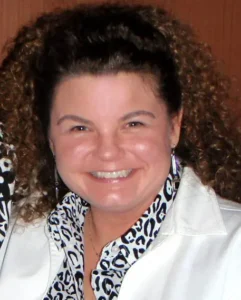
Boundaries? We Don’t Need No Stinking Boundaries! or: How I Learned to Stop Worrying and Love Change (Keynote) – Andrea Ames – Description only
About the presentation
It’s no surprise to those of us working in technical and scientific fields — in fact, just about ANY field — that technical communication is (and always has been) changing. In our industry more than any, the only constant is change. And that change makes boundaries a very ambiguous concept. Sadly, human brains are wired to be habitual, and change makes us uncomfortable. But to move beyond survival in our industry to thrive and find great success, you must become comfortable with ambiguity and learn to love change.
This keynote will help you to get started or to progress along your already change-embracing path. Expanding on the style of David Letterman and the Late Show Top Ten List, Andrea will describe her top 10 ways technical communicators should drive change and break boundaries.
About the presenter

Taking technical writing to the next level at SAP – Anja Kellerman & Kelly White
About the presentation
As the cloud company, user experience is essential for SAP in attracting and retaining customers. User assistance is a key element of this and addresses how we help people to deploy, administer, use, and develop software. Key features include help directly in the interface, more multimedia content, the co-creation of content, and a presence in communities and social media.
This evolution of the technical writer to the user assistance professional leads us to ask:
- How does this impact our tasks and responsibilities?
- What training will we need?
- With shorter release cycles and pushed upgrades, how will our internal processes change?
About the presenters
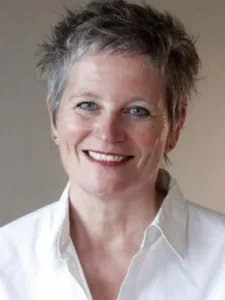
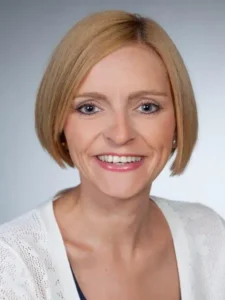
Visual Search and Augmented Reality as part of your content strategy – Berry Braster
About the presentation
For many businesses, aftermarket service and parts operations are very profitable; the service business is growing twice the rate of the average business unit. However, the service business is also very costly if we cannot provide our end users with the content they actually need, wherever and wherever they are. A good content strategy enhances the service information process, but when you combine it with developments like augmented reality and visual search you will truly see the improvements.
About the presenter
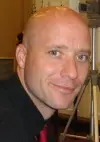
Developing (unsupported) support – Bridget Khursheed – Description only
About the presentation
As the KAL RTM, a new concept cashless cash machine, moves from prototype to production – we need to create a complete support package for its technical teams. But can online training and documentation solutions cut it when our partners deploy in remote destinations including Australian outback service stations, Filipino diveshops, and local stores in developing countries? Technicians will have no reliable internet connection and at times not even a phone signal.
Any support delivered has to stand up for itself.
Join Bridget Khursheed on a real life journey into extreme support documentation.
About the presenter

Does your gender really make you a better communicator? – Carol Leahy – Description only
About the presentation
Historically, women are seen as better communicators compared to men yet the field of technical communication is pre-dominantly male. Why is this? Are males really better at communicating technical information?
This presentation will discuss gender within the technical communications field and if it really plays a role in making you a good or bad communicator. It will delve into the wider question of the need for more women in science and technology and how technical communicators, regardless of gender, can address this question and potentially build awareness of technical communications to the next generation.
About the presenter
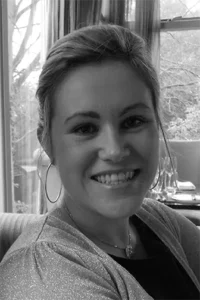
Validating Your Dreams (Keynote) – Chris Atherton
About the presentation
We’re all professionals, with professional opinions about the content and layout we create. So when we hear ideas like “telling someone your design opinion is like telling them about your dreams”, it can be tempting to push back: we’ve spent a long time acquiring and honing those opinions, thank you very much.
But when we espouse the professional opinion that a thing should be this way or that way, maybe we’re missing something. Being fundamentally stuck in ourselves, as ourselves, we cannot know
what it’s like to be a first-time user of our software, or a customer searching our documentation. We know too much.
The only yardstick that matters is whether real people can use our stuff. And the only way we’re going to find that out is by talking to them.
No budget? No user experience colleague? No problem. Chris will
demonstrate some simple ways of getting started, persuading people to join you, and then scaling things up. She’ll give examples from redesigning the UK Visa application service on GOV.UK and iterative testing with non-native speakers
of English. It can feel like a big challenge to sit down with someone and expose every part of your work to scrutiny — but
it’s essential for building the right things.
Chris, who is secretly a raging introvert, will discuss why it’s so important to make being uncomfortable a regular part of
your job, and why doing so will reward you personally and professionally.
You already know (nearly) everything you need to know. Your users know everything else. Go talk to them.
About the presenter
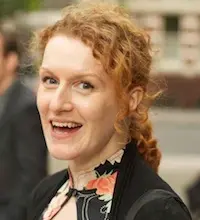
Chris Atherton is a Partner at Equal Experts, where she engages in user research and user-centred design to help clients transform their software delivery processes. Originally from an academic psychology background, Chris got interested in how people process visual information on screens, and subsequently ran off to join the software industry. Since then, she has worked with a variety of clients and organisations including Skype, the BBC, and GOV.UK. Chris tweets (some would say too much) at @finiteattention.
Stop trying to paint your hallway through the letterbox – Chris Atherton
About the presentation
About managing your, your colleagues’ and your users’ cognitive resources better, by avoiding the cognitive equivalent of keyhole surgery (something I see people doing at work all the time).
I would give some examples of where I see this occurring and offer some suggestions of how to deal with it.
About the presenter

Chris Atherton is a Partner at Equal Experts, where she engages in user research and user-centred design to help clients transform their software delivery processes. Originally from an academic psychology background, Chris got interested in how people process visual information on screens, and subsequently ran off to join the software industry. Since then, she has worked with a variety of clients and organisations including Skype, the BBC, and GOV.UK. Chris tweets (some would say too much) at @finiteattention.
The Downsides to DITA – Darren Mitcham
About the presentation
Most of us hear over and over again all the positive aspects of a DITA-based publishing system: resuing content is good because it reduces overheads and in a global economy our localization costs will plummet.
How many of you have braved implementing one and what is the reality of such an implementation? I am a senior technical communicator at an American electronics company, Altera. We have travelled down this this bumpy road during the last three years. I’ll let you feel my pain and more importantly share ways to make your transition smoother.
About the presenter

Promote, Innovate, Repeat: maintaining documentation quality throughout organisational change – Doug Dennis
About the presentation
Many technical writers experience sudden, sometimes unsettling organisational change which affects their work and that of their associated teams. You might find yourself as part of a larger documentation team having to adapt to unfamiliar processes and tools, or placed under the spotlight as the sole technical writer in your organisation.
As technical writer or documentation manager, how do we make ourselves and our teams resilient and flexible in the face of organisational change?
How can we cope when our company is acquired, merged or expanded?
In this presentation we’ll discuss how promoting your team correctly, aligning them within the organisation and finding engineering pain points are some of the key factors to ensure success.
We’ll also explore some of the challenges and opportunities of moving through multiple incarnations of a company, coping with change and how to keep your documentation set coherent throughout this time.
About the presenter
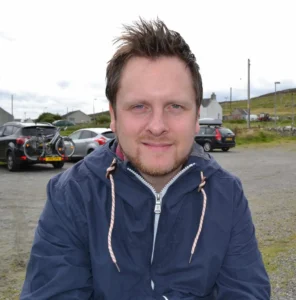
Help in the User Interface – a case study in first user interaction and embedded Help formats – Ellis Pratt – Description only
About the presentation
One of the problems with online Help is users have to stop what they’re doing and go to the online Help. In this session, we’ll look at two ways you can stop breaking the user’s flow – by providing “first user interaction Help” and “embedded Help”. We’ll look at some of the different ways they are applied in software. We’ll also look at a project we worked on that involved implementing these forms of Help into a Web-based SaaS application.
About the presenter

Creating an academic course in technical communication – Ellis Pratt – Description only
About the presentation
We’ll look at the issues around developing an academic course in technical communication. We’ll look at what should be taught, the issues around academic rigour, how the course content can be delivered, and whether there’s the demand for courses such as these. We’ll also look at the courses currently offered by universities and professional bodies overseas.
About the presenter

Dynamic Content Publishing – Farha Patel – Description only
About the presentation
In today’s culture of instant gratification our customers prefer receiving small pieces of information, exactly what they need, when they need it. In order to keep up with customer expectations the Huawei documentation team planned and implemented a dynamic publishing solution to allow our customers to quickly locate, assemble and save personalized content. This session will cover important aspects of the information development process such as audience task analysis, user personas, use cases, reuse strategy, taxonomy and metadata strategy. The session will also demonstrate Huawei’s Dynamic Content Publishing solution showing its key features and functionality.
About the presenter
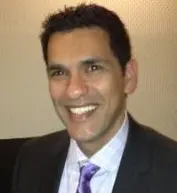
US regulations on instructions for use – Ferry Vermeulen
About the presentation
In today’s culture of instant gratification our customers prefer receiving small pieces of information, exactly what they need, when they need it. In order to keep up with customer expectations the Huawei documentation team planned and implemented a dynamic publishing solution to allow our customers to quickly locate, assemble and save personalized content. This session will cover important aspects of the information development process such as audience task analysis, user personas, use cases, reuse strategy, taxonomy and metadata strategy. The session will also demonstrate Huawei’s Dynamic Content Publishing solution showing its key features and functionality.
About the presenter

The Bid Manager and the Technical Communicator: Whose line is it anyway? (Workshop) – Fi Parker & Martin Clark
About the presentation
The relationship between the Bid Manager and the Bid Writer is critical to the success of most bids. To explore this relationship, Fi and Martin will lead delegates on a tour of the bid life cycle, stopping at strategic points to discuss the position of these two professionals, their goals, needs and wants. As the tour progresses, delegates will develop a strategy for bid content development that will help them stand out amongst the crowd. They will also evaluate and adapt some of the tools bid managers and technical communicators use to help them maintain accuracy, speed and quality of work under pressure.
This workshop will benefit technical communicators interested in establishing themselves in the relatively lucrative world of bid writing. It will be of particular interest to those who would like to know what it’s like to work in a team on large and complex bids.
About the presenter
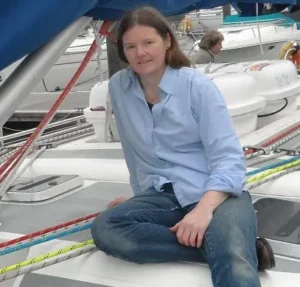
Five Content Controversies – Frazer Bain
About the presentation
Join Acrolinx’s Country Manager UK, Frazer Bain as he discusses five of the biggest, ugliest, and complex challenges facing content professionals today.
This high-engaging session will go deep on the most controversial topics facing every content professional including:
- Does everyone work for marketing now?
- How to expand content marketing to your entire organization?
- Does the customer journey have a finish line?
- Mythbusting and the role of content throughout the sales funnel.
- Does tone matter? How to lighten up without losing control.
About the presenter
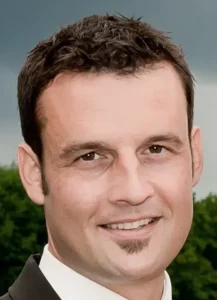
Liberating Tech Comm: How moving to agile empowers technical authors (case study) – George Lewis
About the presentation
We hear those doubters all the time: “Quality documentation can’t be written in agile”, “We technical writers are not appreciated”, “We don’t have the budget to do that”.
I’d like to share how at doc-department we’ve dispelled these myths by using the information and advice we learned at the TCUK, through the ISTC and from the progressive tech comm community, willing to share their knowledge.
I shall share how we applied the lessons we learned in areas such as content strategy, agile writing, and DITA to address common issues; and in the process create a complete product information platform that enables us to deliver content to many areas of a business within the constraints of an agile development cycle.
And all of this for a fraction of the cost commonly quoted.
About the presenter

Unpacking and applying the Tech Comms Toolbox – John Kearney
About the presentation
Content is not the sole domain of the Technical Communicator. Subject Matter Experts, Marketing Execs, Project Managers, Business Analysts, Admin Personnel… all these and more can and will create technical content to be consumed by others.
However, as these professionals often lack the specific skills to be found in the Technical Communication Toolbox, they often face massive content quality and management challenges. This is why we can and should be seen as more than writers of manuals.
During my career I’ve been lucky enough to work extensively outside the traditional parameters of Technical Communication. Among other activities, I’ve written functional design specifications, researched new technologies, created marketing collateral, run RFIs, edited bid documentation, designed project management methodologies. All these things and more are possible once we can understand and apply our specific set of skills.
I’d like to discuss what I think are the critical components of our toolbox, and how we can all apply these to break out of our traditional boundaries. In doing so, I’ll share with you some of my successes, my failures, and the lessons I’ve learned; beginning with my time in the Civil Service, and right the way through to my present career as a Tech Comms consultant in Cambridge.
As an added bonus, I’ll be drawing on examples of effective and ineffective user assistance from my hobbies, specifically archery and live-action roleplaying!
About the presenter

Keeping up with life! Or, how to put ‘Getting Things Done’ into practice (Workshop) – Karen Mardahl & John Kearney
About the presentation
Perhaps you have the perfect method to manage your work and obligations, but can it cope with the unexpected or help you plan for the future? New boss, clients or management practices. Illness. Job loss. Stress. Changing career or job advancement. Learning new skills in addition to doing your current job.
Karen and John will introduce the concept of getting things done (GTD) as it applies to today’s technical communicator. Then, participants will have hands-on activities (also pre-conference!) to start making some getting-things-done tweaks to their routines, both at work and at home. Takeaways include
- Testing your need for GTD
- Exercises to understand the most important concept of “Next Action” and the concept of “Closing the Loop”
- Demo of tools that support GTD
- GTD Tips and tricks
- The assurance that “your way” is still the best, especially after it’s GTD-charged!
About the presenters


Building a DITA pilot project (Workshop) – Magda Caloian
About the presentation
You are considering migrating to DITA and would like to see a proof of concept, but don’t know where to start? Bring your laptop to the DITA Pilot workshop and you’ll see how quickly you can get started. We’ll just follow a few steps:
- Design phase:
- Identify use cases and task analysis
- Outline the information model and its modules
- Set up the project structure
- Production phase:
- Writing the topics and the map
- Publishing PDF and HTML
- Reviewing
It does not take long to be productive in DITA and to prove its value to your team. Take a running project back to the office with you and turn the DITA business case into reality with a demo for your colleagues.
Requirements:
Knowledge of authoring DITA topics is an advantage, but not a must.
Please bring your laptop.
About the presenter
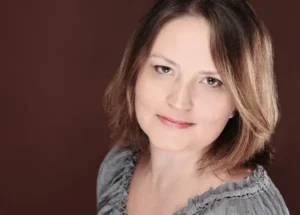
Source Control for Technical Communicators – Marjorie Jones
About the presentation
Software engineers have long used source control to manage the complexity of their source files. Do technical communicators need it? What advantages does it bring?
This session describes the features of source control and the benefits for technical communicators. You will learn how it can help manage your documentation files and how to use it effectively. You will also learn about some common source control tools.
This session will be useful if you already use source control and want a better understanding, or if you are thinking about using it and want to know more before deciding.
About the presenter

Keep It Lean: manage projects using Kanban TOCs – Mattias Sander
About the presentation
Do you ever feel like you’re spending too much time on administration? Do you want to work smarter to achieve “mind like water”? Do you want to achieve flow by reducing waste? In this session you will learn how to apply some practical methods from Lean Manufacturing in the world of Technical Communication. Specifically you will learn how to use the Kanban TOC method, and how it helps you enable growth, reduce cost, and mitigate risk.
In the short term, the Kanban TOC method reduces your administration effort, and in the long term, it helps you identify process improvements to maximize value for both your organization and your customers.
You will learn:
- Practical tips & tricks from the world of Lean Manufacturing
- How to use the Kanban TOC method
- How to set up and use a Kanban TOC in MadCap Flare
About the presenter

Patterns in language for part-of-speech disambiguation – Mike Unwalla
About the presentation
In the ASD-STE100 specification, some words are approved for only one part of speech. For example, the word ‘oil’ is approved as a noun, but it is not approved as a verb.
An effective term checker gives a warning only if ‘oil’ is a verb:
Correct, no warning: The oil was dirty.
Incorrect, warning: When you oil the bearing, you must…
How can software ‘know’ whether ‘oil’ is a noun or a verb?
Short answer: In the structure ARTICLE+X+BE, X is a noun.
Mike shows how software can use sets of simple patterns to identify the part of speech that a word has.
About the presenter

Breaking Our Own Boundaries (Keynote) – Neil Perlin
About the presentation
“Technical writers don’t use computers.”
“Content is key. Tools aren’t important.”
“Social media? Over my dead body.”
It’s human nature to stick with what we know and are good at. But in a profession whose bow wave is steadily moving forward and opening new areas for technical communicators, that attitude can stunt a career. Every job has to have boundaries based on the nature of the work, but many of the boundaries that I hear about are self-imposed, like the quotes above (only a fraction of the quotes that I’ve heard, all real, some from people I know). In this presentation, Neil will discuss three ways to break out of self-imposed boundaries – expand, extend, and avoid pigeonholes – to help us move in challenging, well-paying, and fun directions.
About the presenter

Neil Perlin is an internationally-known online content consultant for companies from F100 to startups.
He helps clients create efficient, flexible content for delivery in forms from paper to online to mobile. Neil is a columnist for STC Intercom, a popular speaker for STC, MadWorld, Lavacon, and other conferences, the creator of the Beyond the Bleeding Edge sessions at the STC summits from 1999 to 2014, and a 2010 STC Fellow.
Neil is MadCap-certified in Flare and Mimic, Adobe-certified in RoboHelp, and Viziapps-certified for the Viziapps app development platform. He provides training, consulting, troubleshooting, and development for online help, mobile, apps, and related areas through Hyper/Word Services of Tewksbury, MA. You can contact him at his web site at www.hyperword.com or nperlin@nperlin.cnc.net.
Creating Mobile Apps without Programming – A New Opportunity for Technical Communicators? (Workshop) – Neil Perlin – Description only
About the presentation
Help and web authoring once required programming knowledge until WYSIWYG tools emerged and let technical communicators create help and web sites. App development is now following the same path. WYSIWYG app tools now let technical communicators create apps. Is this a new opportunity for us?
This workshop introduces the mobile app space. We’ll look at types of apps that technical communicators might create. We’ll then create a simple app with no programming, using a tool called ViziApps. You’ll see how to add pages, navigation, email, and other features. You’ll be able to run the finished app on your phone in preview mode, without the app’s being published. You’ll leave with a sense of the app market, tools, design concepts, and a working app to demo.
Note – This workshop is a demonstration, but Neil will provide instructions for attendees who want to follow along and create the app on their laptops.
About the presenter

Preparing Legacy Help Projects for Responsive Design – Neil Perlin
About the presentation
Do you want to make legacy projects responsive, only to find that legacy writing and coding makes it difficult to convert to responsive design. What’s the solution? This session looks at:
- Responsive design’s technologies – relative sizing, fluid grids, and media queries.
- Legacy issues – local formatting, image styles, hand-formatted tables, and more.
- New issues – selecting images for different resolutions, srcset, and “movie” issues.
- The effect on writing and the “mobile first” philosophy.
The session is tool-independent but touches on how Flare and RoboHelp handle many tasks through the GUI. You’ll leave better prepared to convert legacy projects to responsive design.
About the presenter

DocOps – Agile Content Development in Practice – Nils Bier – Description only
About the presentation
The way technical communicators work and collaborate with stakeholders is changing. Software industries – and more and more other organizations – are finally breaking up their knowledge silos. Their goal is to work in a more collaborative way of creating, updating and extending technical content. The interdisciplinary DocOps approach affects culture, processes, and content platforms. It’s putting everyone who’s involved literally ‘on the same page’.
In this presentation, you’ll learn how DocOps can be implemented successfully, by bringing technical communicators, service, support, and developers together. Let’s embrace DocOps to manage technical content more efficiently, to continuously improve content quality and to increase customer value.
About the presenter
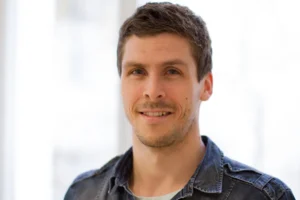
Redirecting the “Help” to a Product Networking Site – Pallabi Roy – Description only
About the presentation
Traditional technical communication settings tend to provide the customer with large volumes of documentation for a product. But with product interfaces becoming increasingly easy and user-friendly, isn’t comprehensive documentation a waste of time and resources, and moreover, isn’t it an outmoded concept in an Agile setting? To tackle these issues, I will present a talk on how we can replace the traditional “Help/Manual” approach with a networking site built around the product.
In my presentation, I will explain the scope, challenges, and solutions of building a product networking site. Technical communicators can post the product updates directly on this site rather than updating a guide or a help file. It will be a cost- and time-effective approach as it will bolster “minimalism,” eliminate the need of “authoring tools,” and improve “time to market.” It will also be an interactive approach as the customer can share his feedback and raise a query directly on this site. With growing popularity of networking sites among the users, it will prove to be a trending approach to technical communication in the coming years.
In a recent project, I implemented this approach for two customers, and the response that I got was overwhelming. In my presentation, I will talk about these two use cases, challenges that I faced while putting this approach in place, and how I got over these challenges. I anticipate this approach can do more to expand the boundaries of traditional technical communication.
About the presenter
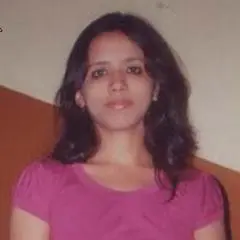
Find out how SDL helped to develop the car of the future – Paulo Newman
About the presentation
SDL and Knowledge Center is helping the world’s most revolutionary automotive company break down boundaries to get their cars to market quicker, scale their operations, decrease costs and delight their customers.
Some of the Topics that Paulo will cover:
- How to do more with less by achieving efficiencies of between 30-70% in creating content
- How to realise savings of between 20-70% in translation costs
- Elimination of desk top publishing
- Back Office system integration to create personalised digital documentation
- Publishing of technical documentation to the web
- Updating owner product and technical information OTA (over the air) 24/7
About the presenter
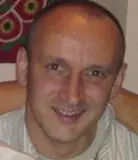
Paulo Newman is a Director of Customer Experience Solutions. He has 10 years in publishing, 15 years in IT solutions with the last 10 years in structured content management.
His goal is to assist global businesses to formulate an effective CXM Customer experience management strategy based on content management, then implement and grow that strategy to meet their business goals and grow market share.
Business Case, Budget and Beyond – Kicking off a Successful Project – Rachel Johnston
About the presentation
You have an idea for a content project. What happens next?
A content-related business case is an exercise in education more than anything else:
- Self-education: is your idea feasible? Are the benefits as clear as you think?
- Peer education: what change can colleagues expect and how will it affect them?
- Management education: what is the cost of change, versus maintaining the status quo?
This presentation explains why a business case is about more than pie charts and projections, and goes to the heart of the matter — helping decision makers realise the value of content.
About the presenter
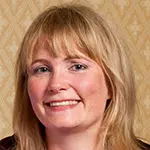
Putting experience to the test: moving from Tech Comm to Software Testing – Raymond Gillespie
About the presentation
Can you—a technical communicator—become an effective software tester? What skills will you need to develop? What necessary skills do you already have? What added value can you bring to the testing team? And as a newly-qualified tester, what useful lessons can you share with your Tech Comm colleagues?
In November 2014, Raymond Gillespie decided to find the answers to these questions by leaving the world of Tech Comm to become a software tester at Nokia. Ten months into the experiment, Raymond is ready to try to answer these questions and share some illuminating anecdotes about his experience.
About the presenter

Get Out of Your Office: Conducting Effective Site Visits (Workshop) – Rhyne Armstrong
About the presentation
The day has come when we are no longer bound a desk when it comes to learning about our customers and clients. Whether you work for yourself or an organization, getting out of the office and meeting with customers offers valuable insight to learning how solutions are deployed, how user-assistance is used, and how your customers work.
In this session, we will discuss:
- Building a business case for conducting visits.
- Planning for a successful visit.
- Tips you can use to make sure you get the most out of the time you spend with your clients.
How your visit can turn into much more than info to help you improve your content.
About the presenter

Achieving the Right Colo(u)r – Ron Blicq – Description only
About the presentation
Preparing a document that will be published separately in the US, UK, Canada or Australasia means tackling many more differences than just changing the spelling and general terminology. Factors involve punctuation, word choice, tone, use of ‘local’ expressions, interpretation of meaning, culture of the country, subjectivity and objectivity, page size, and numerous minor yet not insignificant items. Readers who encounter expressions that can be misinterpreted or simply not understood may downplay the importance of the information or comment disparagingly on the writer’s capability as a communicator.
About the presenter
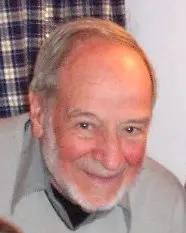
Beyond instructions: reference-heavy documentation – Zsuzsa Nagy – Description only
About the presentation
This talk discusses some challenges of working in DITA with only few or no task topics.
- Planning: Is it useful to use a short, task-heavy but generic document as the backbone of a document set if 90+% of the topics are reference topics?
- Structure of the deliverable: You have 100+ reference topics at the same level. Do you show all of them in the table of content?
- Workflow: We can reuse engineering content. It is in XML but not in DITA. How do we single-source and track version history for such content in our content base?
About the presenter

TCUK 2014
Not all presentations are listed. Slides are provided in PDF format, where available.
Management tools from big business for the sole author – Alison Turner
About the presenter

Writing in Agile environments – Andrew Westfold
How does our profession attract more talent? – Bryan Lade
User Assistance and Social Media: A passionate relationship or a loveless marriage? – Colum McAndrew
About the presenter
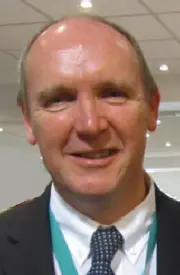
Hypergraphics for help documents – David Gardiner
No. More. Robot. Speak. – Our journey to a (way) better Microsoft Voice and why it matters (Keynote & Workshop) – Doug Kim – Description only
About the presentation
In this hands-on workshop, Doug will recap the principles of good editorial voice and some of the mechanics that can help you achieve it. Participants will do one rewrite exercise as a group, then split into teams of 2-3 people. There, you’ll revise a real piece of content that someone else brought, using the principles and writing techniques in play. Doug will share out as many of the revisions as possible in the time available, then allow some socializing and discussion, centred around your revisions.
About the presenter
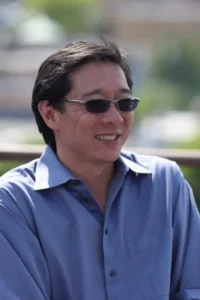
Doug Kim is Senior Managing Editor for Office.com, and leads guidelines and best practices for Voice in Office. He was Arts and Entertainment editor of The Seattle Times for 10 years, and actually finds that editing ballet and restaurant reviews was excellent practice for the tech industry. Although that’s probably a different talk…
Creating videos for technical communication and e-learning: tips and tricks from the field – Ellis Pratt
About the presenter

Gamification is The New Black – Galyna Key
Compliance is no simple matter – Gordon Dennis
About the presenter

Gordon Dennis has spent his working life in the computer industry. He is acknowledged as an expert in XML and the Darwin Information Typing Architecture (DITA). He is co-founder of Koala, a British software development company specialising in managing technical information for the aerospace and aviation industries.
Gordon’s personal commitment to aviation goes even further: he holds a Flight Instructor rating on sailplanes and is also Chief Ground Instructor for Black Mountains Gliding Club.
Structured content: the key to meeting targets and raising quality (Keynote) – Gordon Dennis
About the presenter

Gordon Dennis has spent his working life in the computer industry. He is acknowledged as an expert in XML and the Darwin Information Typing Architecture (DITA). He is co-founder of Koala, a British software development company specialising in managing technical information for the aerospace and aviation industries.
Gordon’s personal commitment to aviation goes even further: he holds a Flight Instructor rating on sailplanes and is also Chief Ground Instructor for Black Mountains Gliding Club.
Minimalism – to the max – Jang Graat
Training in verbal skills for technical writers – Jean-Paul Bardez
Getting Things Done for Technical Communicators – Karen Mardahl
Unifying the Documentation Process – Malcolm Wallace & Thomas Bardel
Smart Ways to Re-use Content – Matthew Ellison
Tools and Techniques for Creating Responsive Web Content – Matthew Ellison
About the presenter

What you’re missing about mobile – Rachel Johnson
Do You Trust Me Now? – Technical Content in the age of social media (Keynote) – Rahel Bailie
About the presenter

Rahel has over twenty-five years of professional content experience, and combines substantial business, communication, and usability skills with a strong understanding of content and how to manage it. She is a recognized thought leader and sought-after speaker and workshop leader, and in 2012 she co-authored (with Noz Urbina) Content Strategy: Connecting the dots between business, brands and benefits. Rahel’s latest book, co-authored with Scott Abel, The Language of Content Strategy, was published in February 2014.
User Assistance and Cognitive Science: Practical Applications – Ray Gallon
About the presenter

Collateral damage: Do Tech Comms and Marketing have to fight when users get informed? – Roger Hart
How German Manufacturers Create Technical Documentation with ST4 DocuManager – Sebastian Göttel
About the presenter
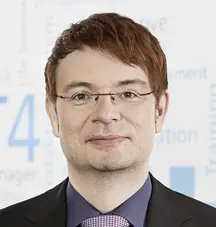
Looking backwards to look forward: Mark Twain and
best practice for developing clear and effective content – Stephen Crabbe
The reluctant user’s guide to social media – Theresa Cameron
Riding the mobile publishing bandwagon using Adobe RoboHelp 11 – Vikram Verma
About the presenter
